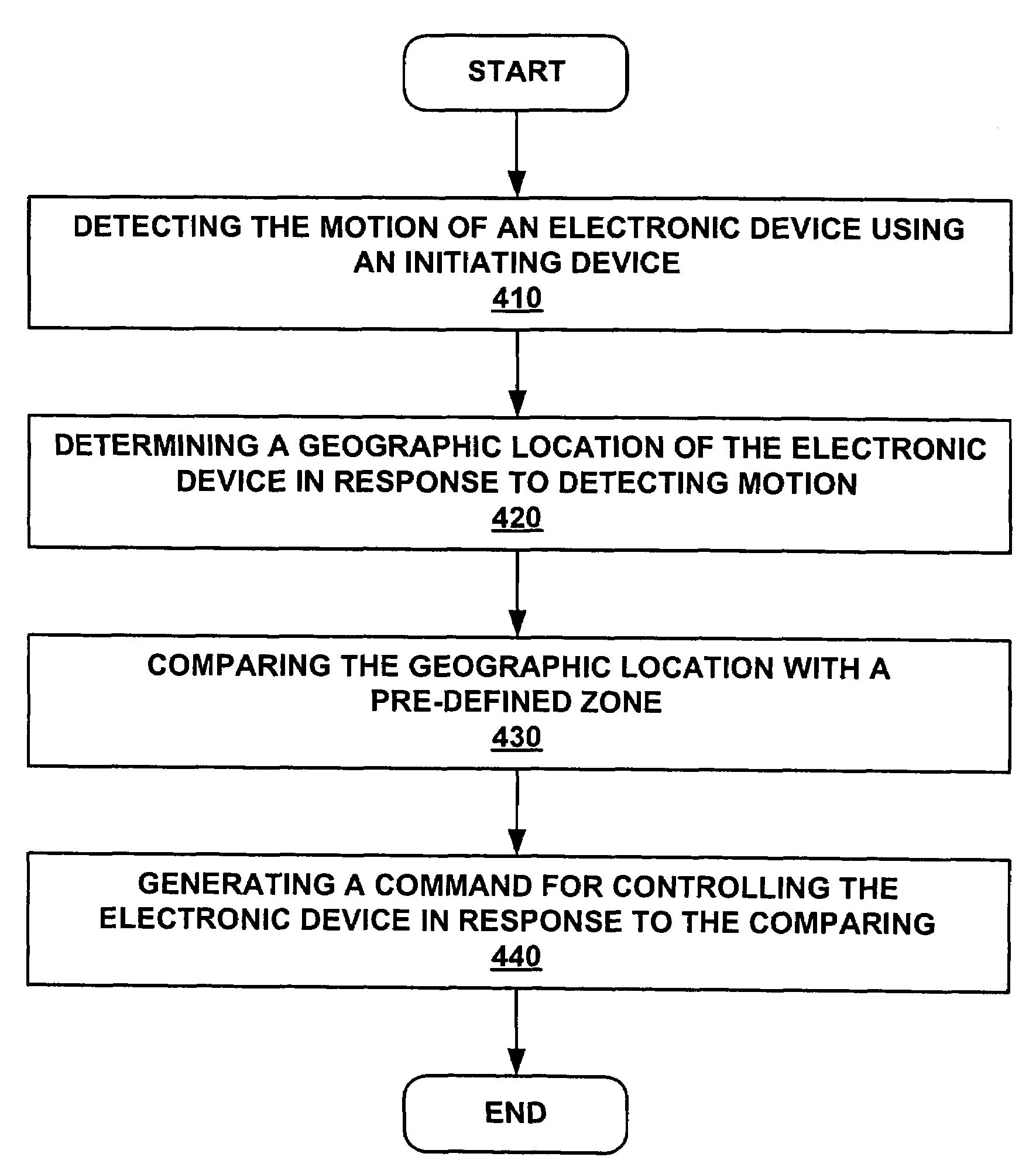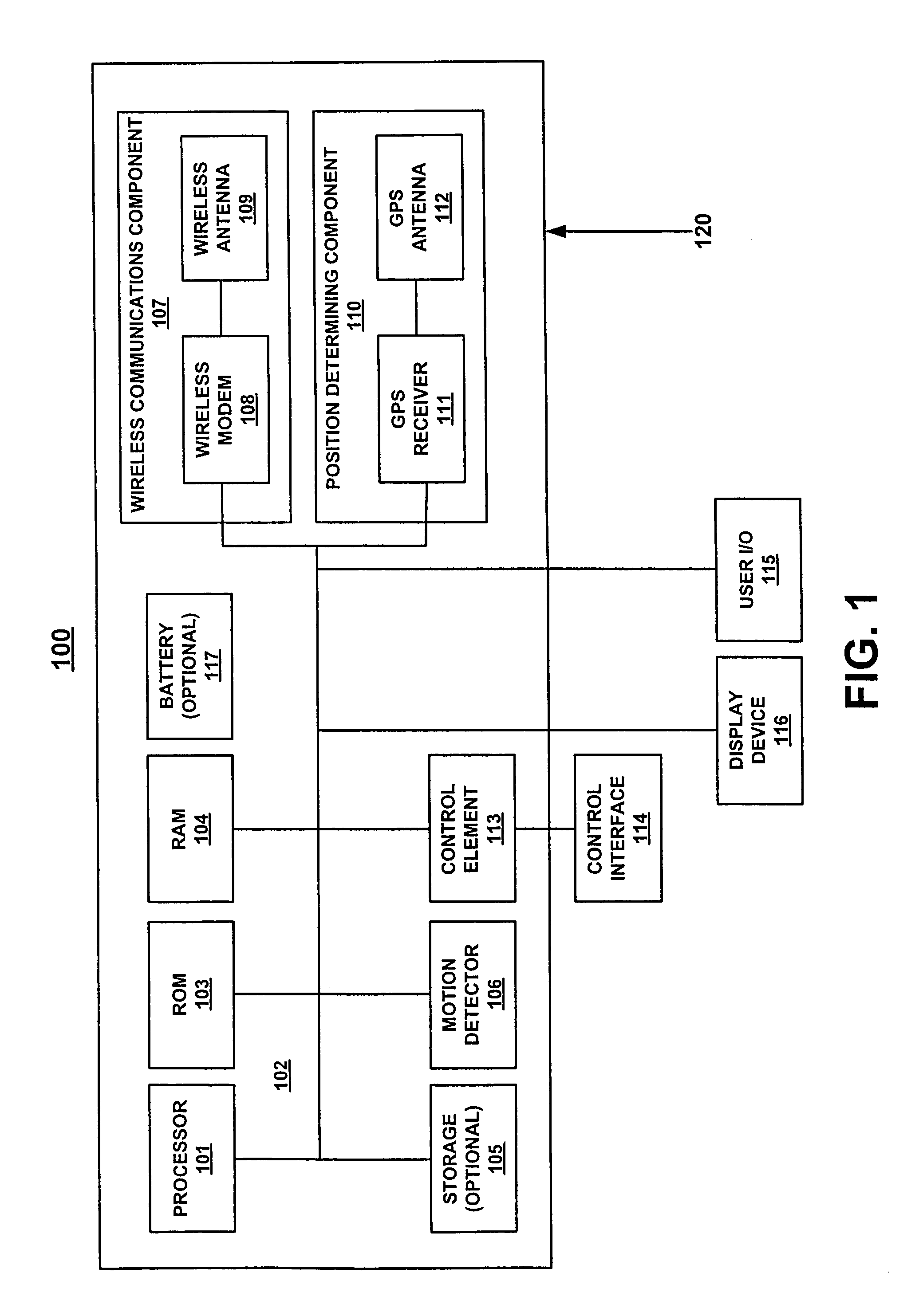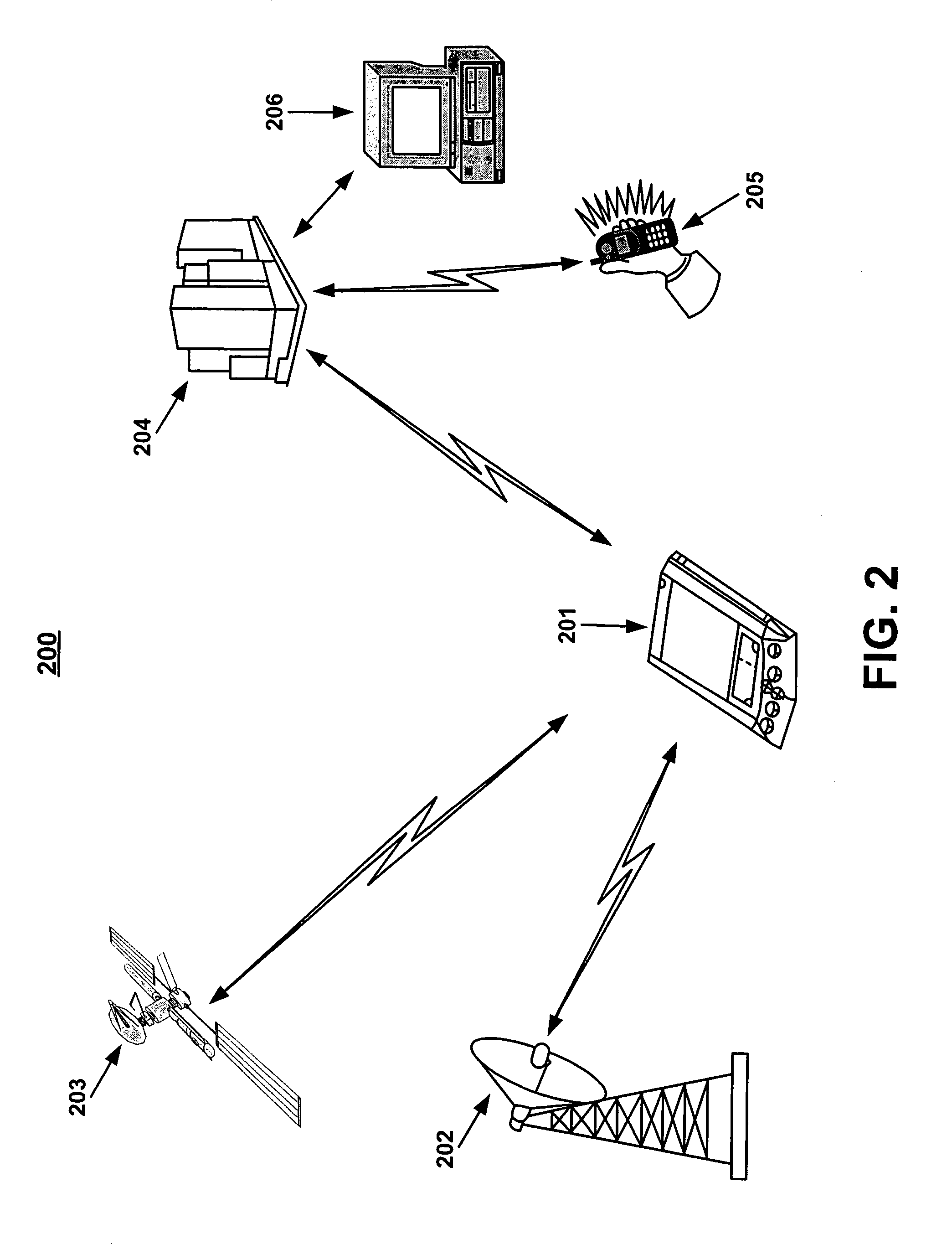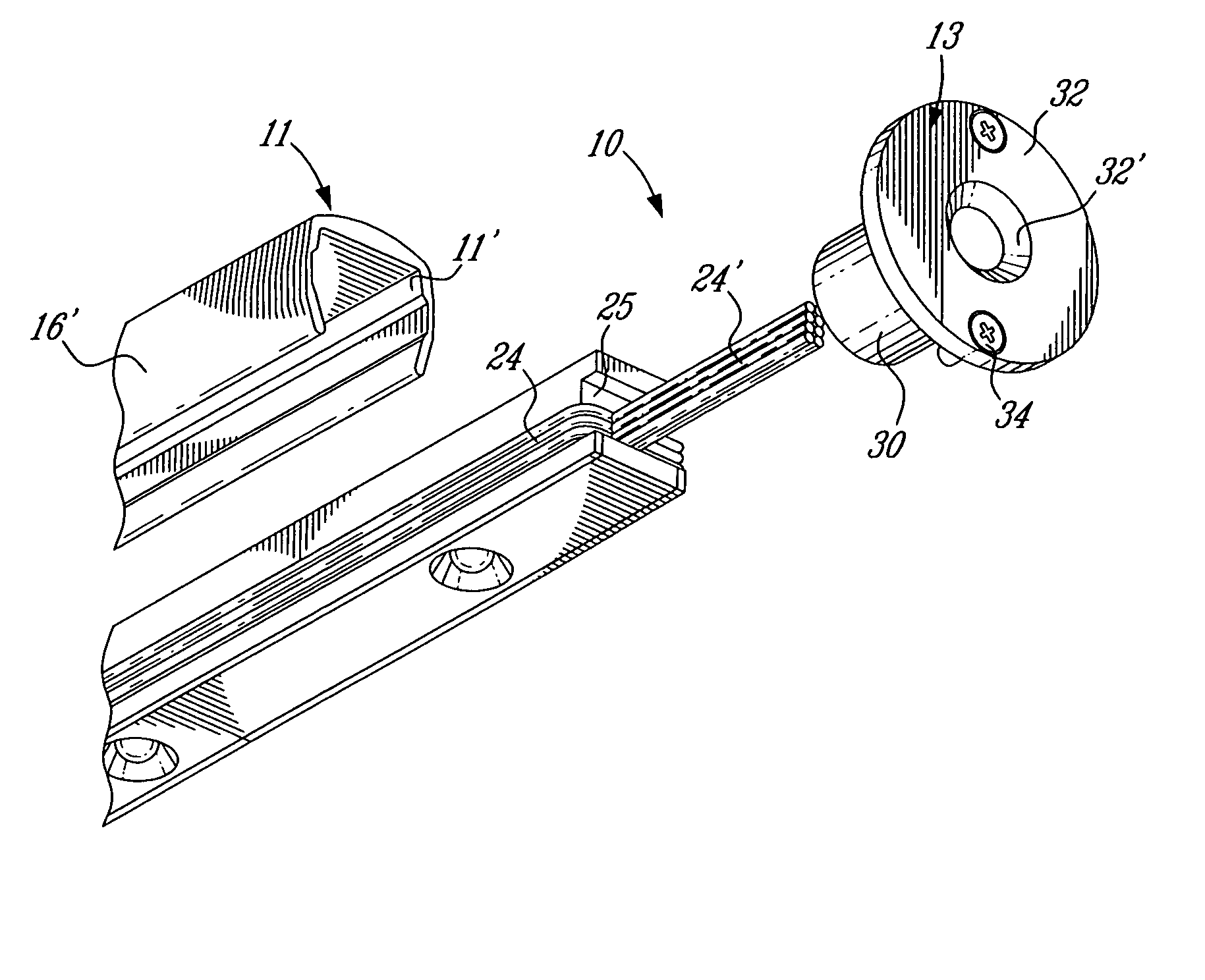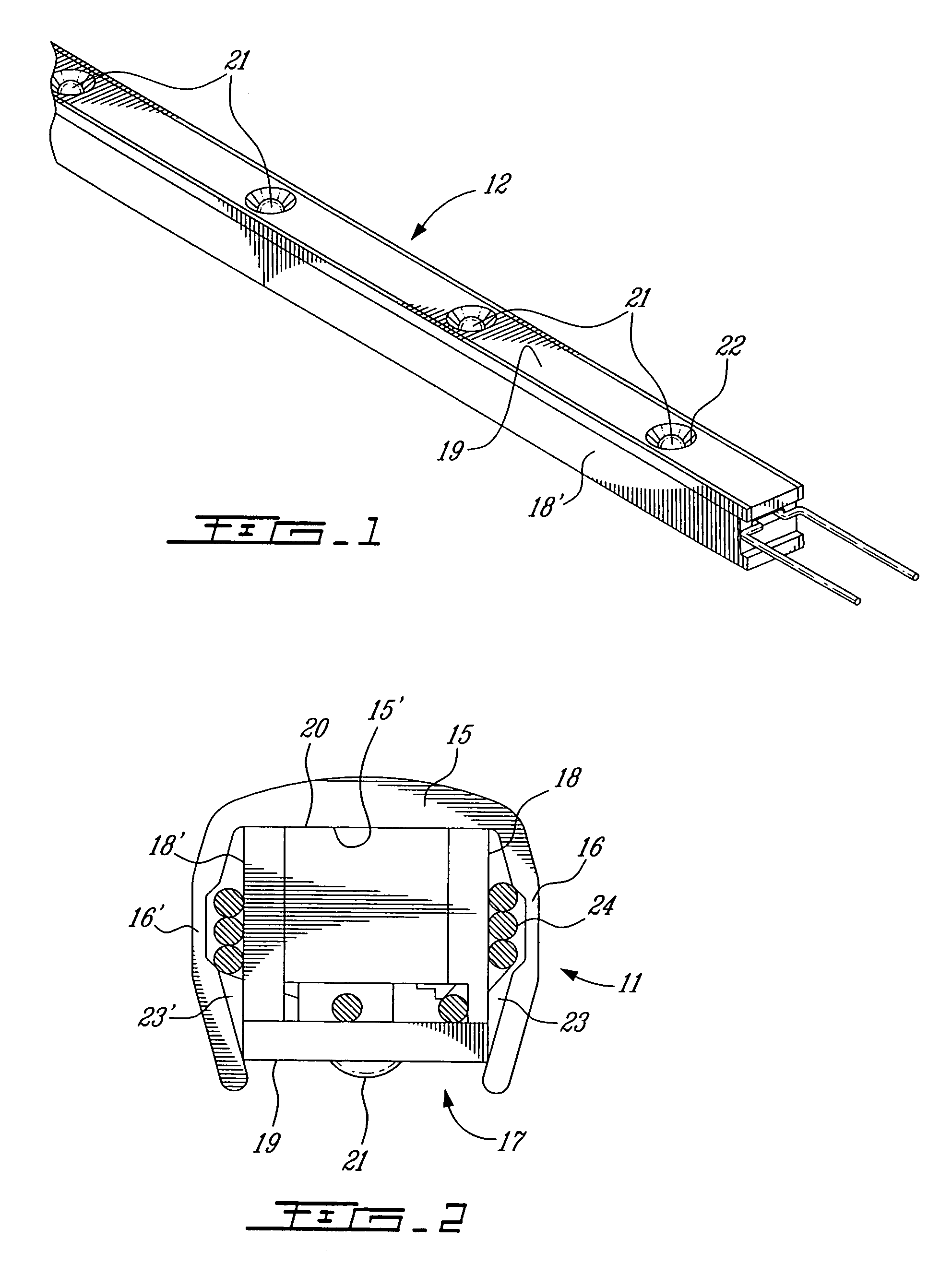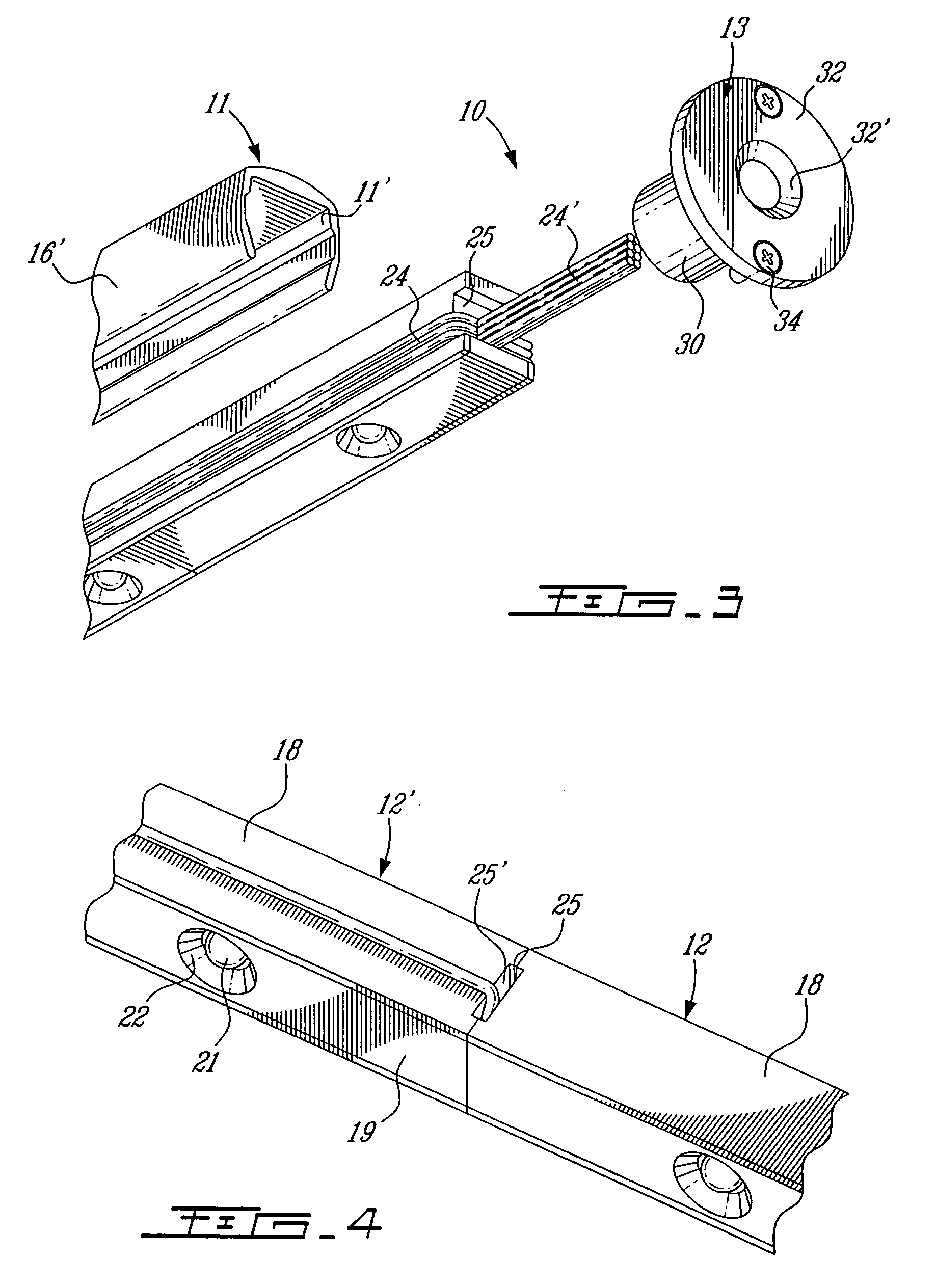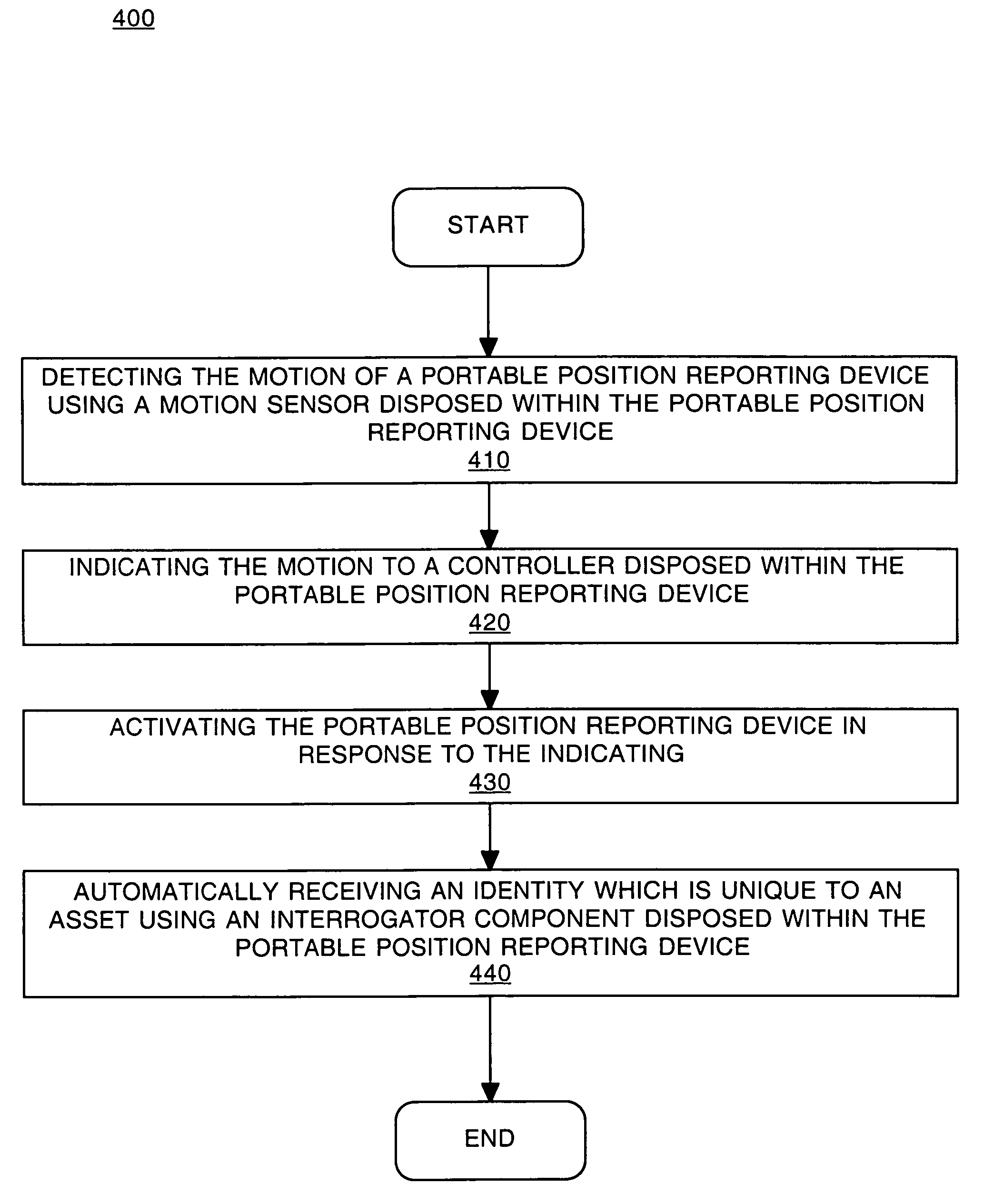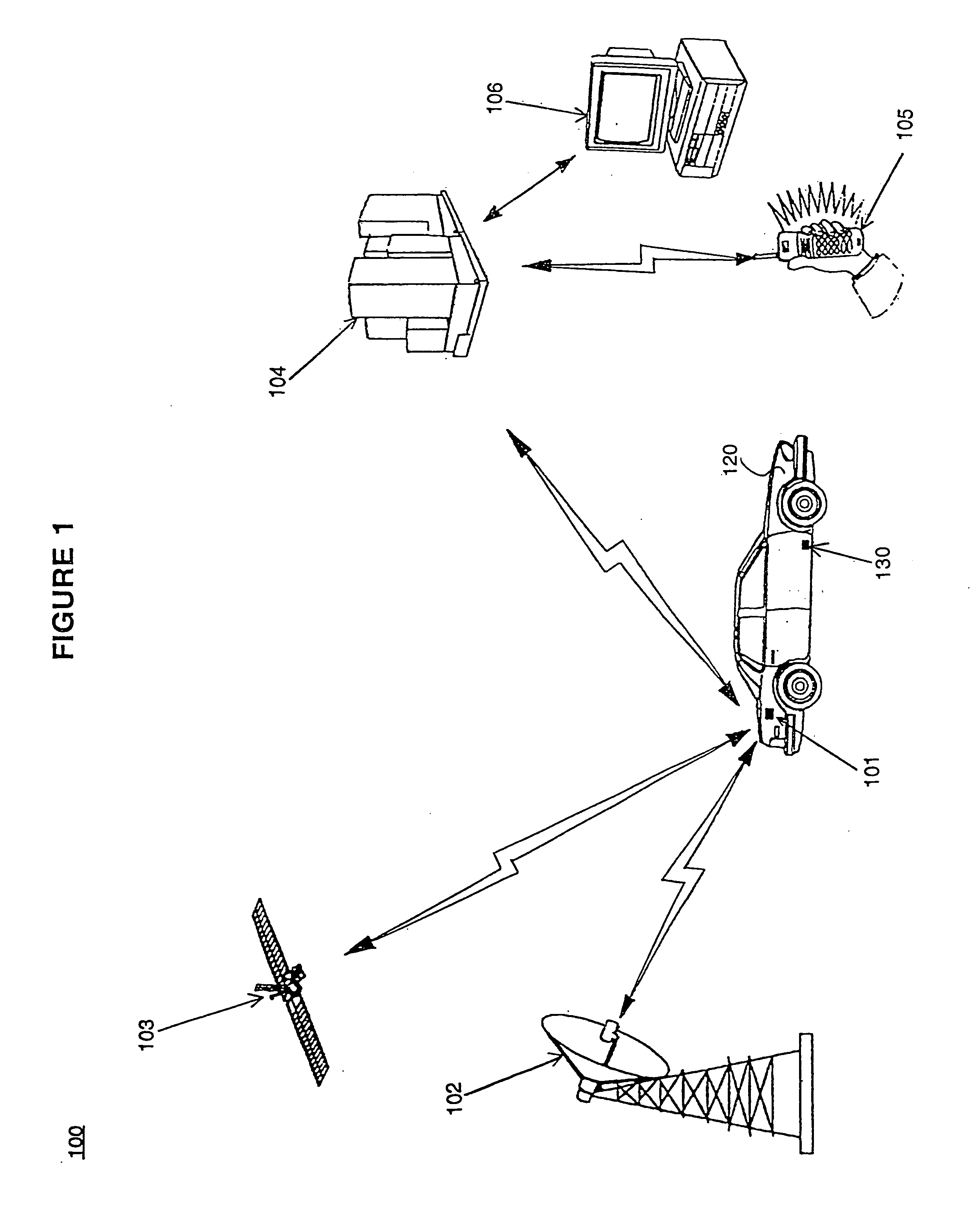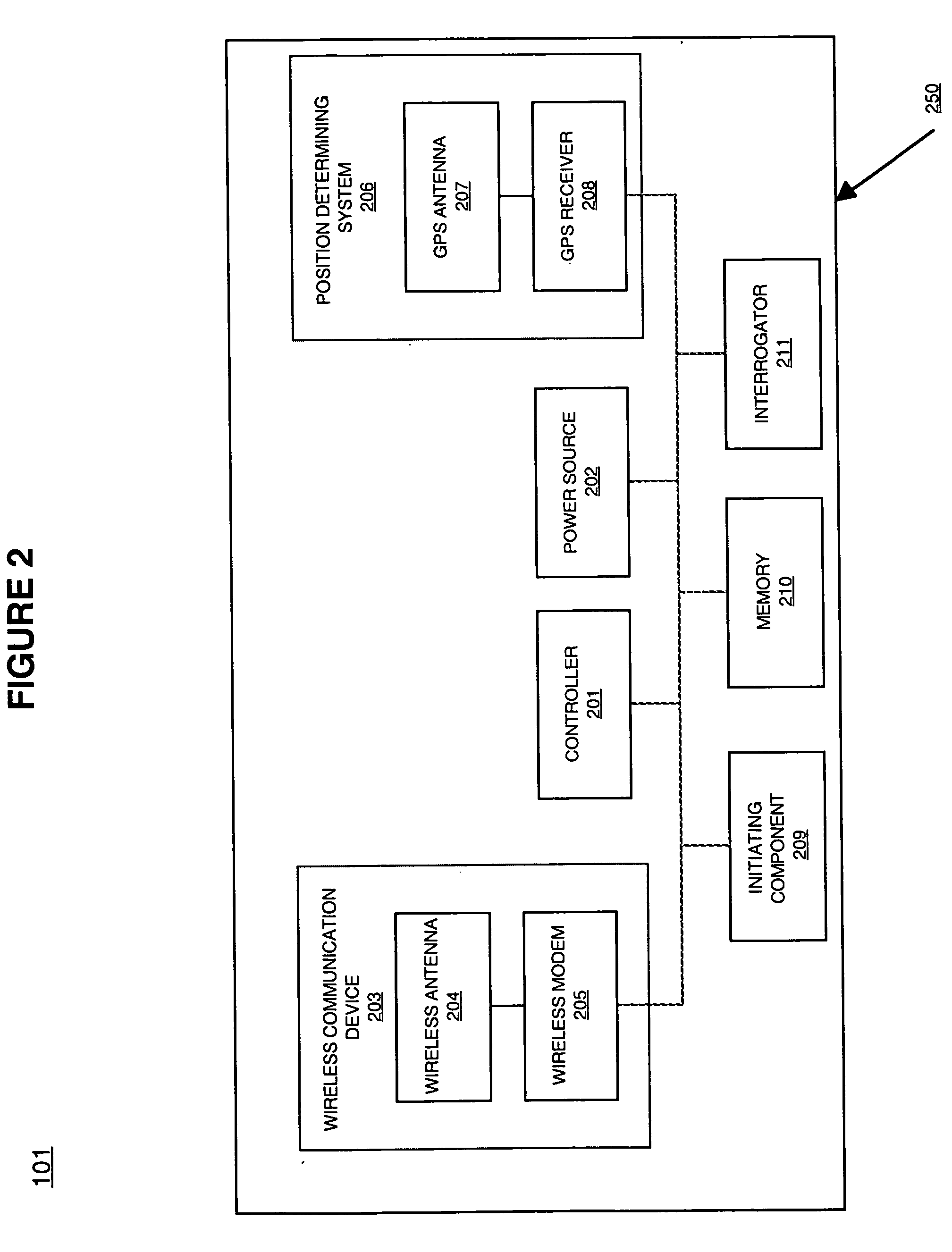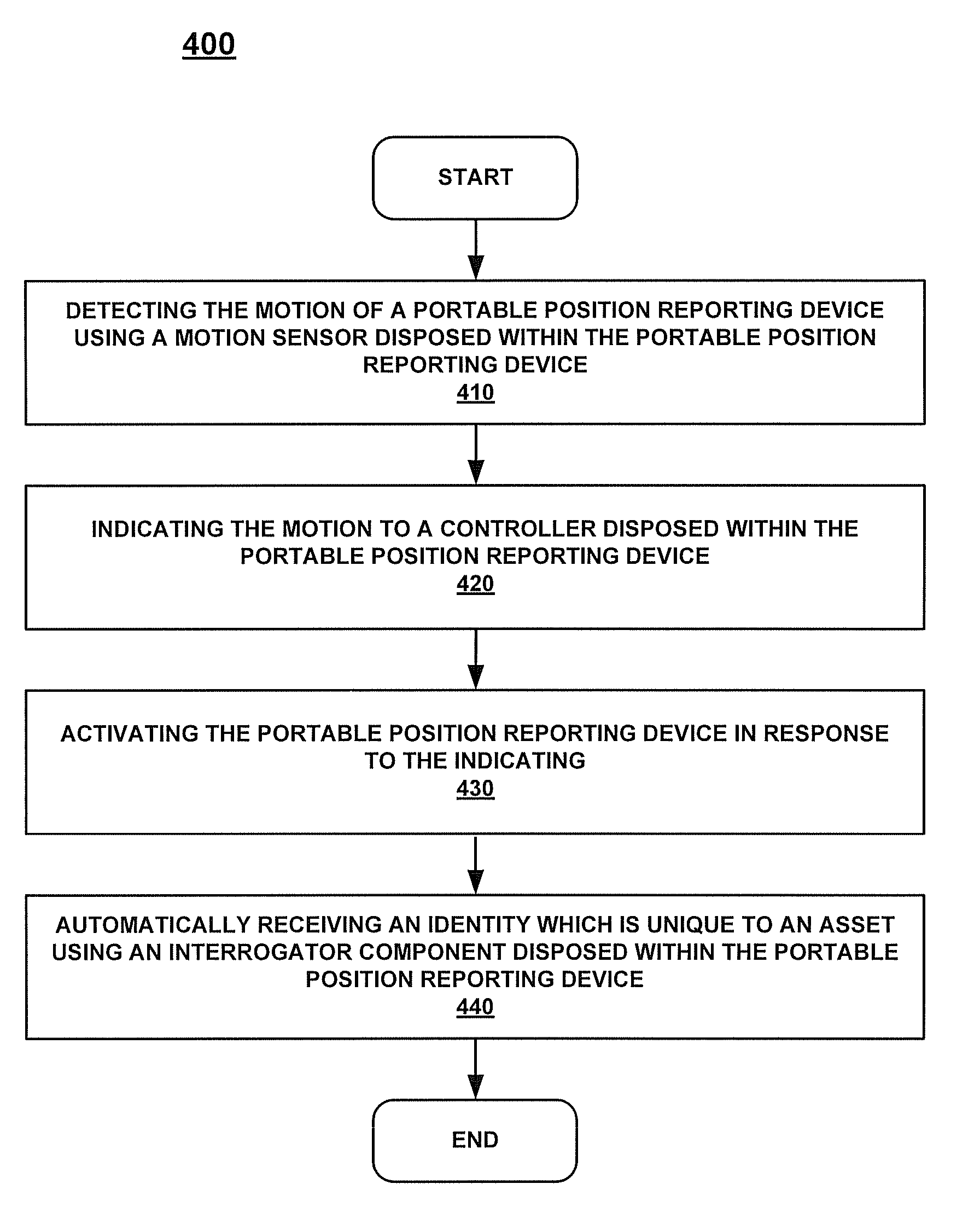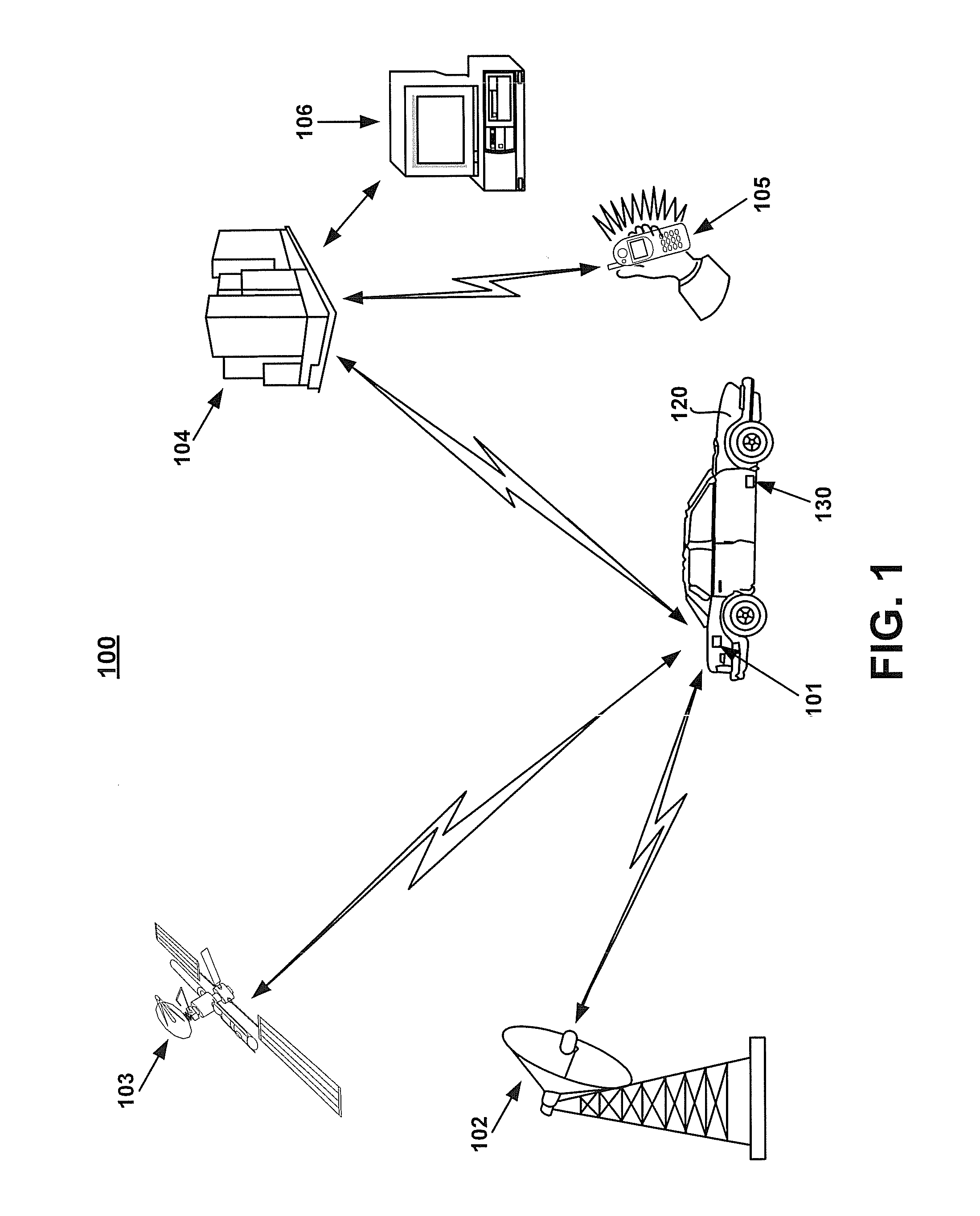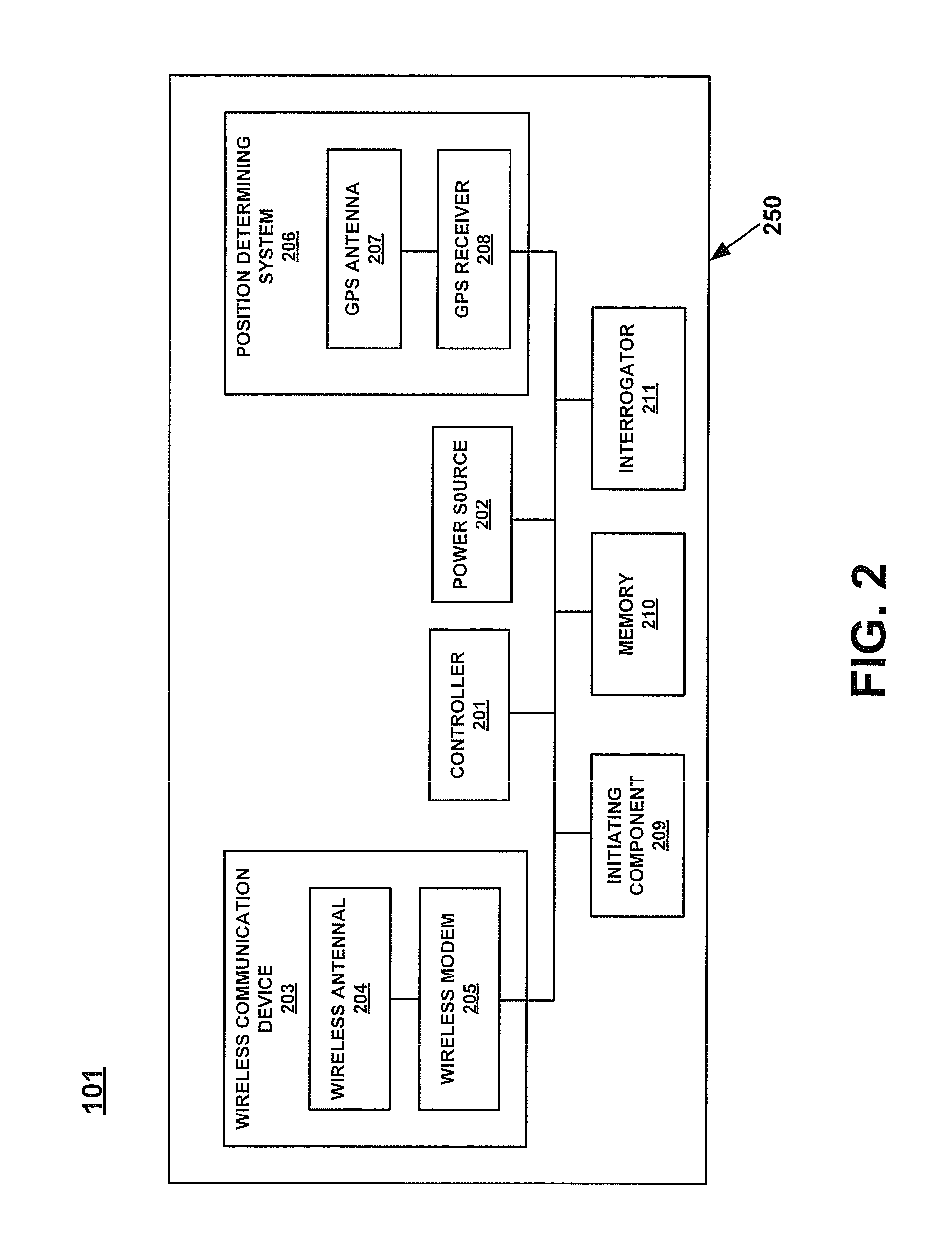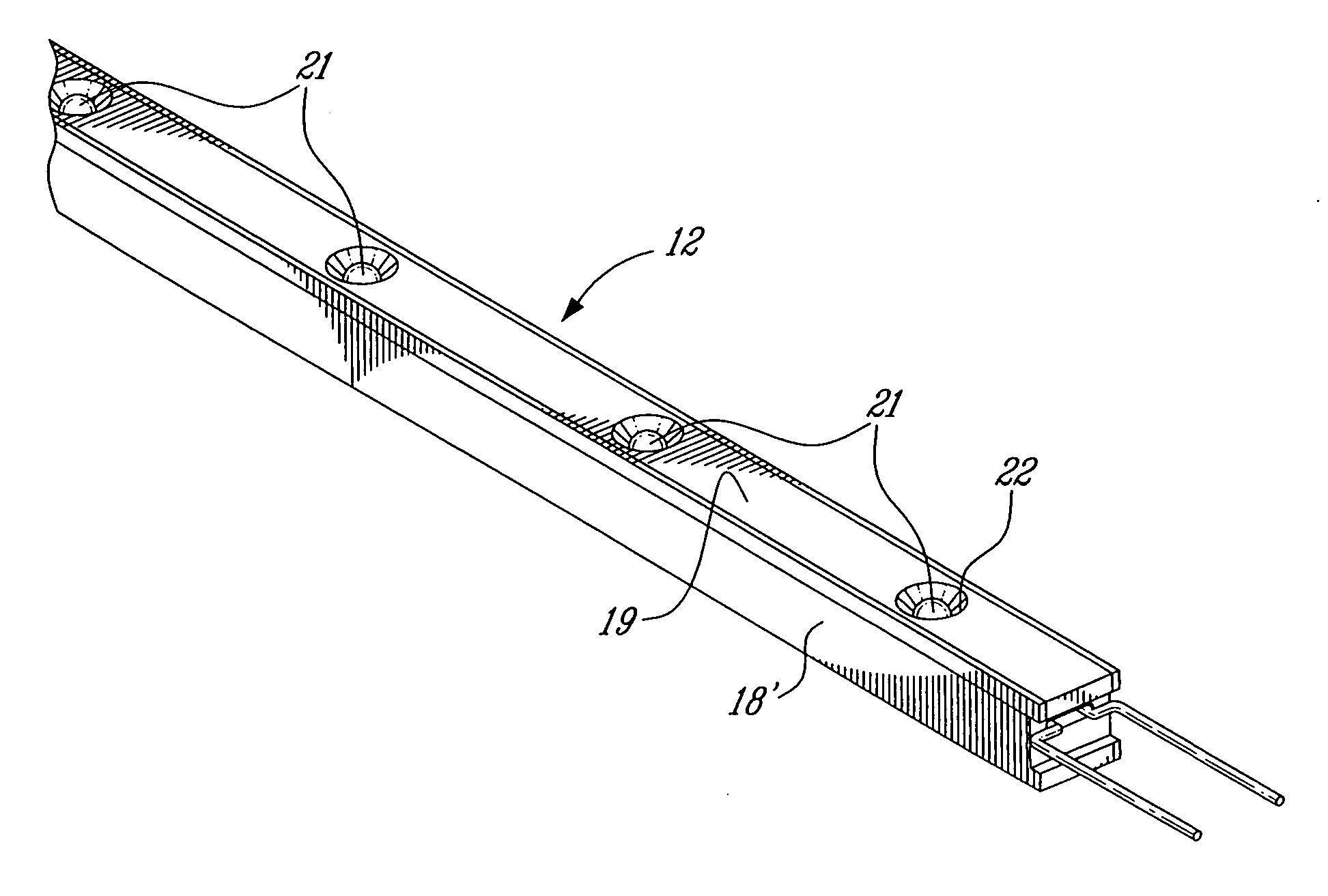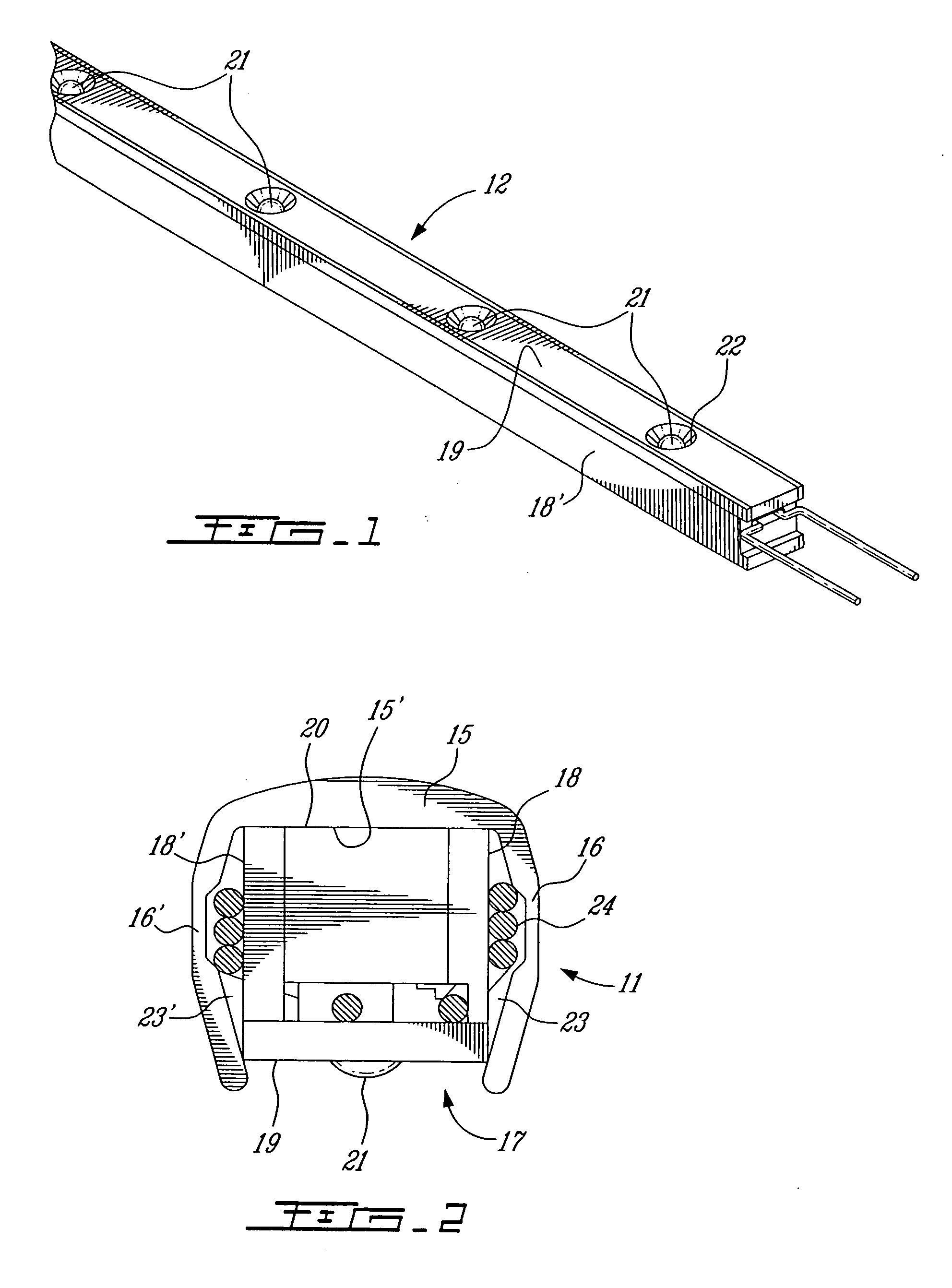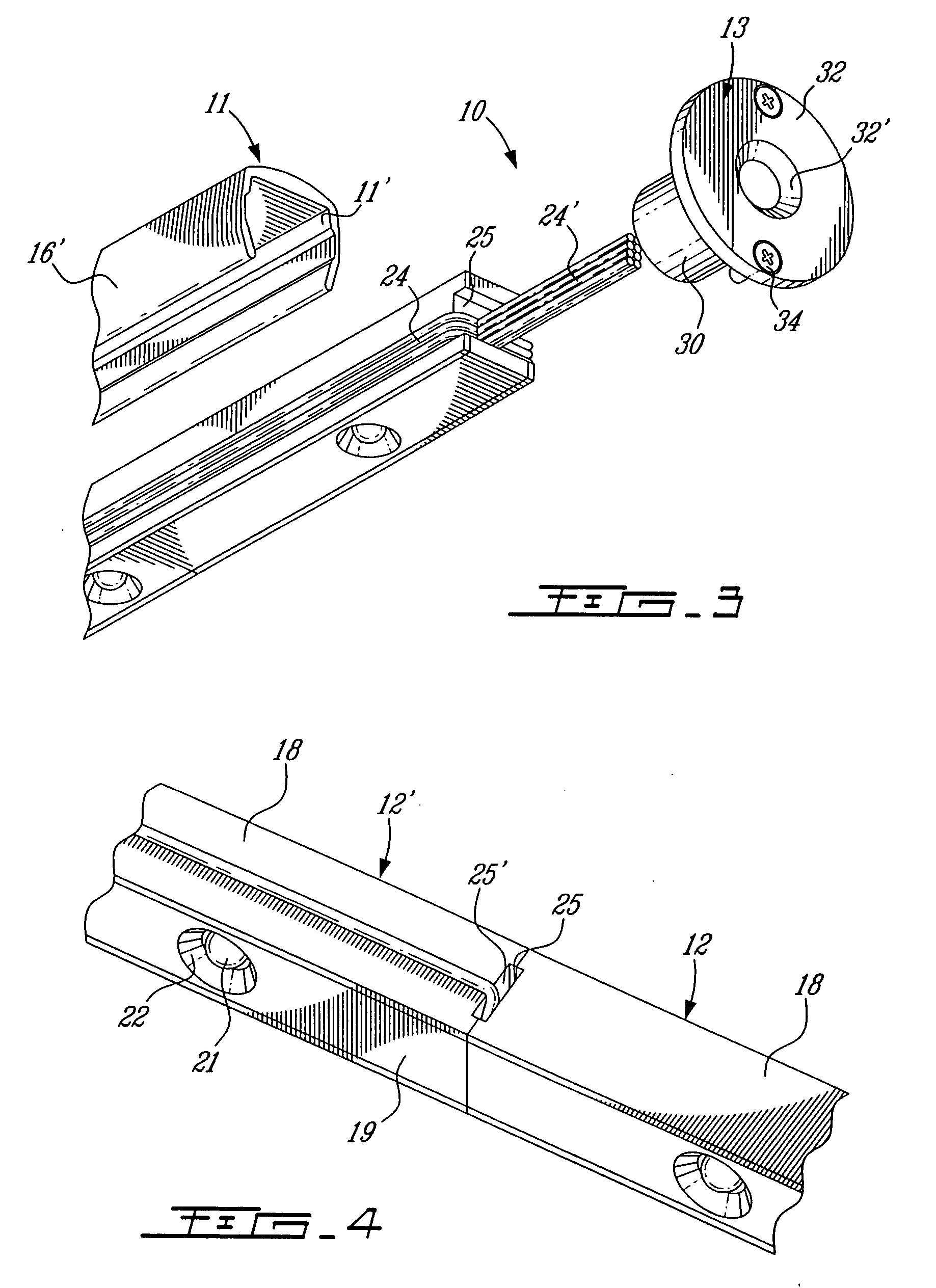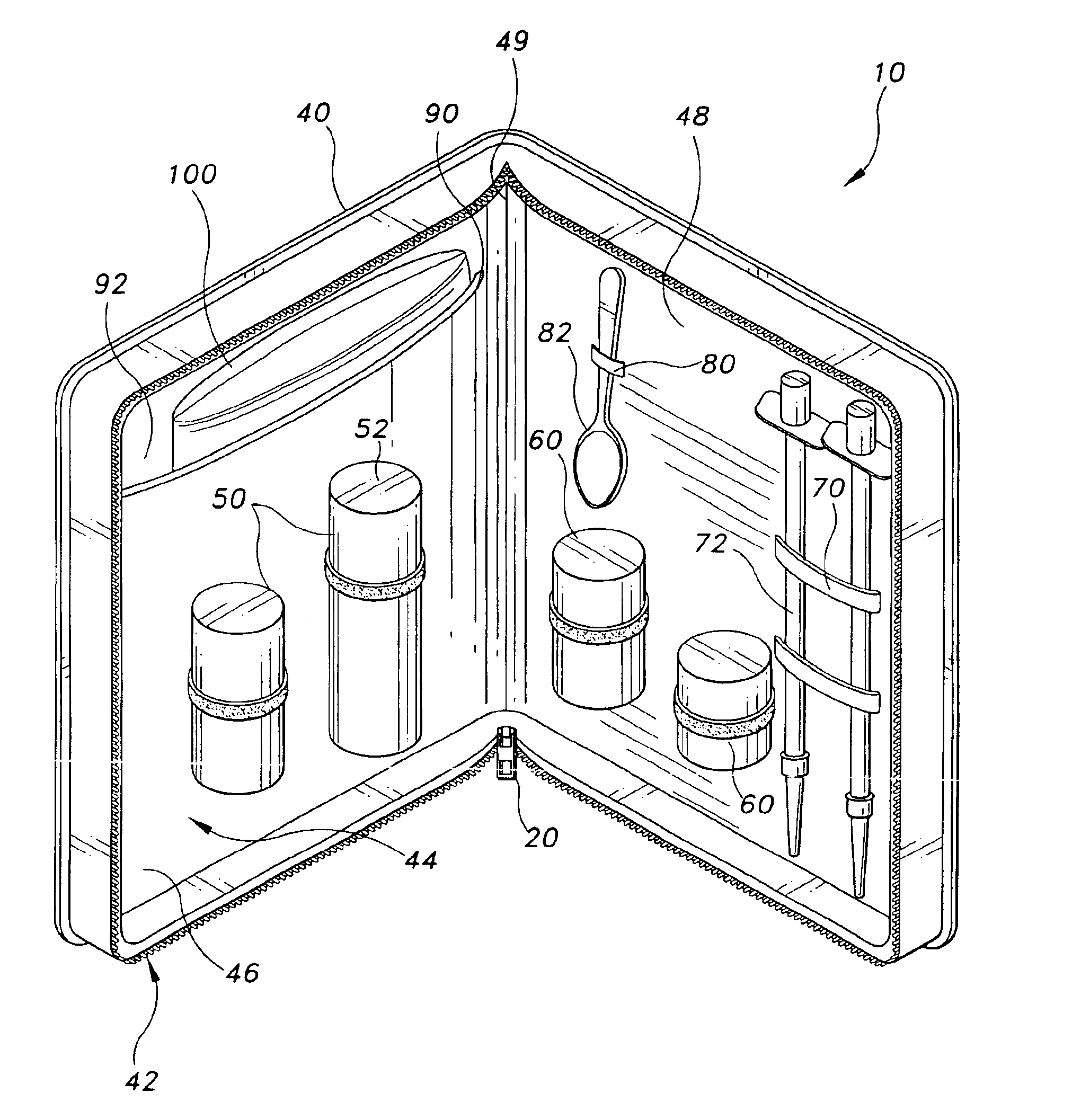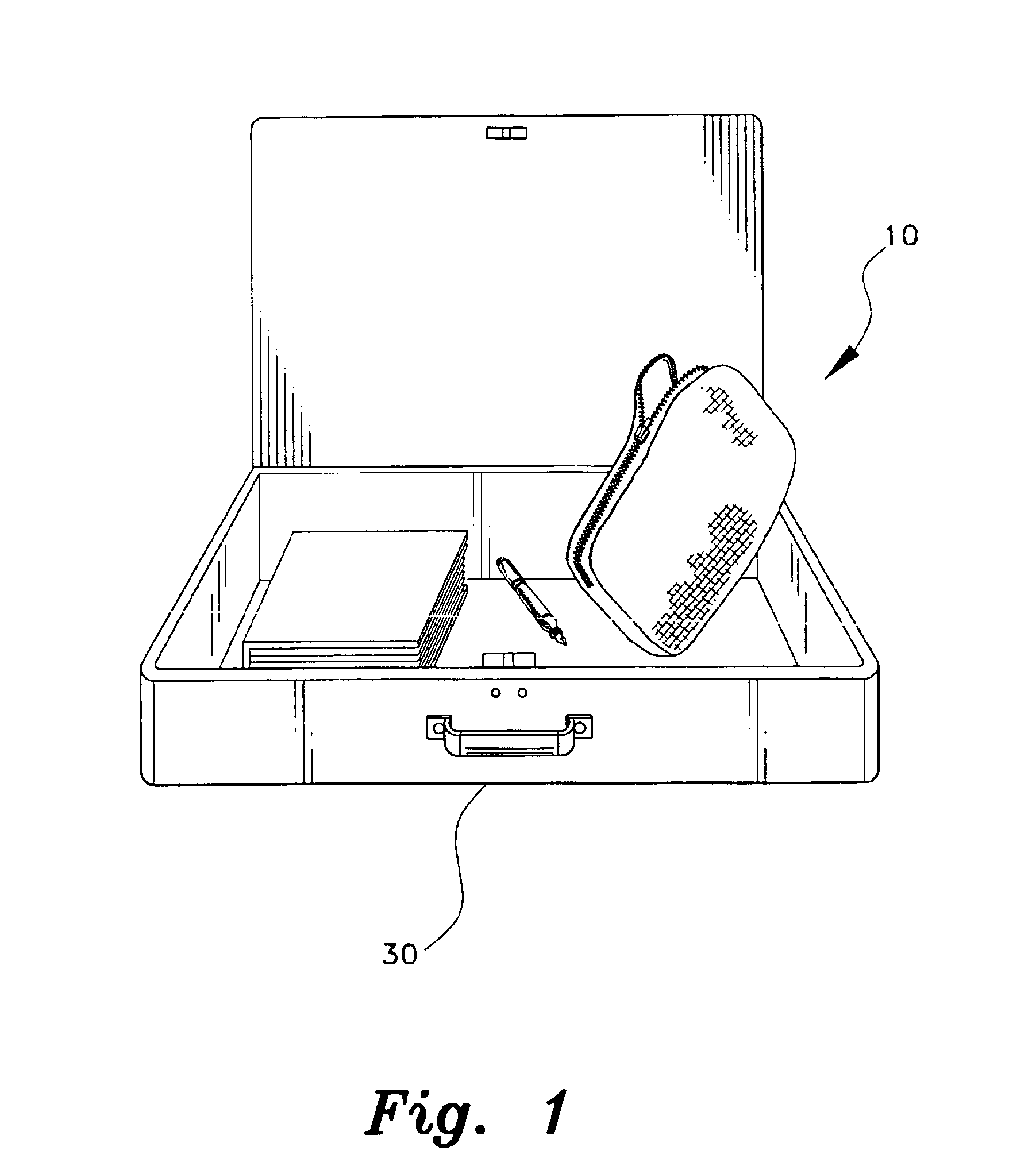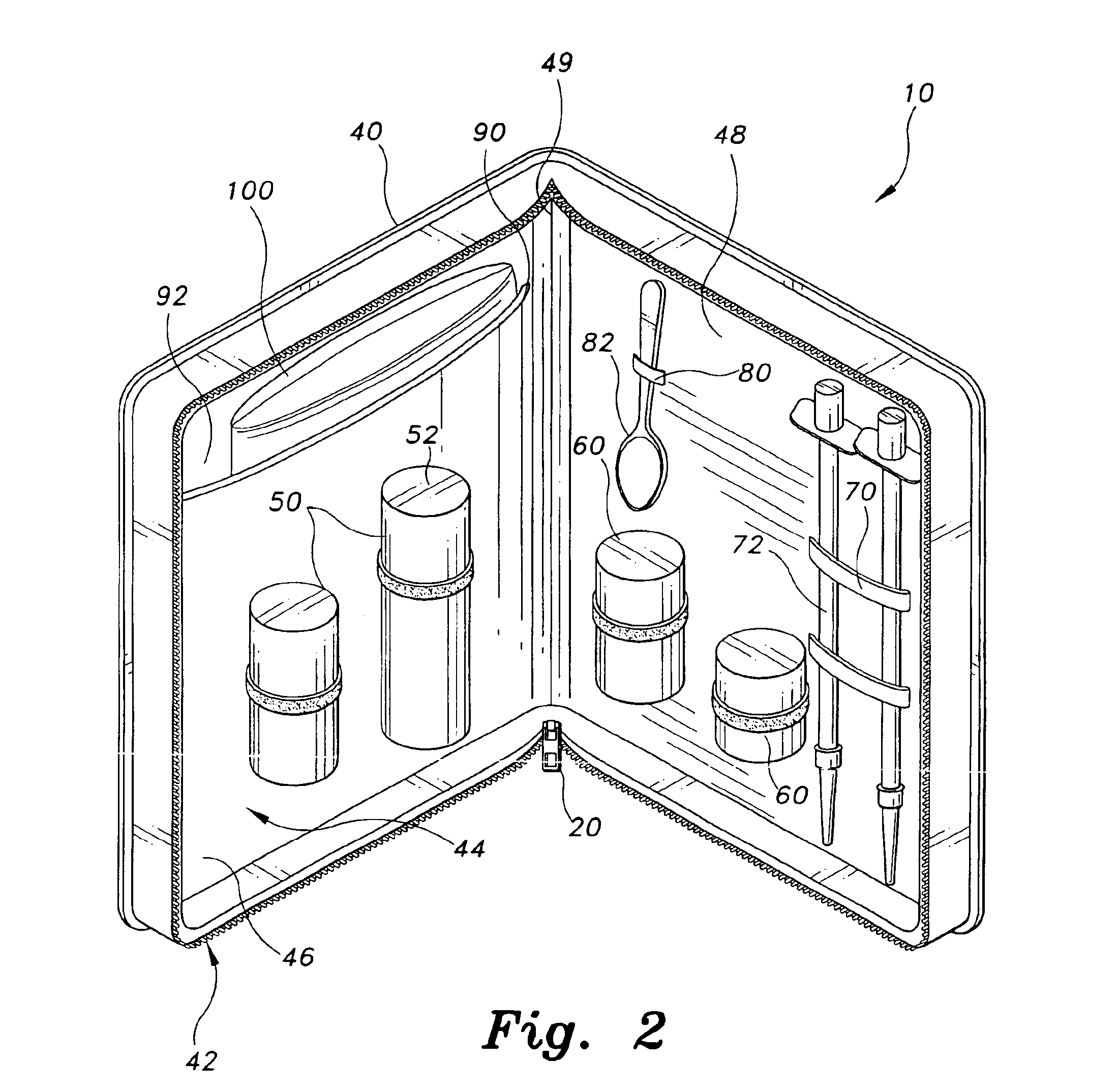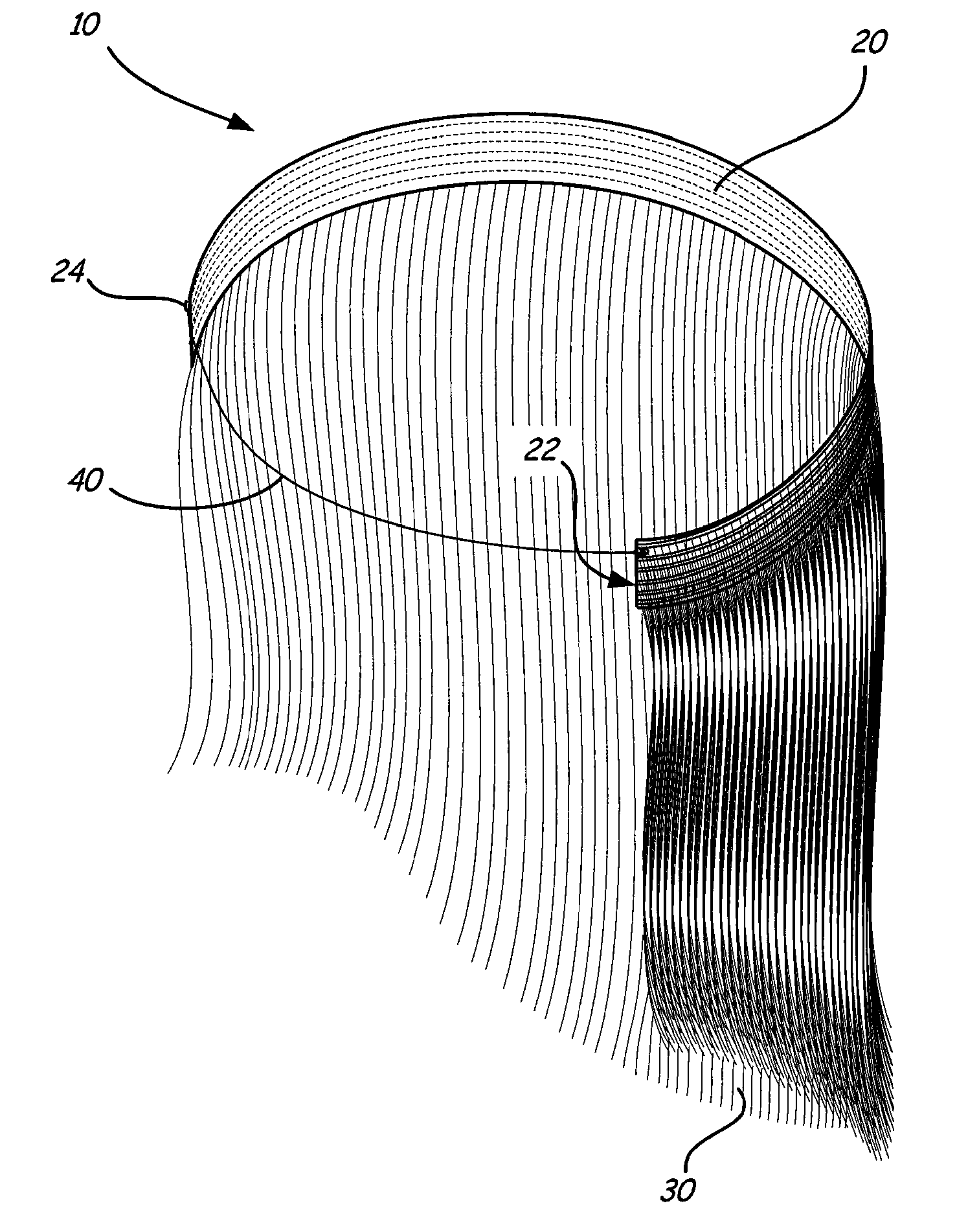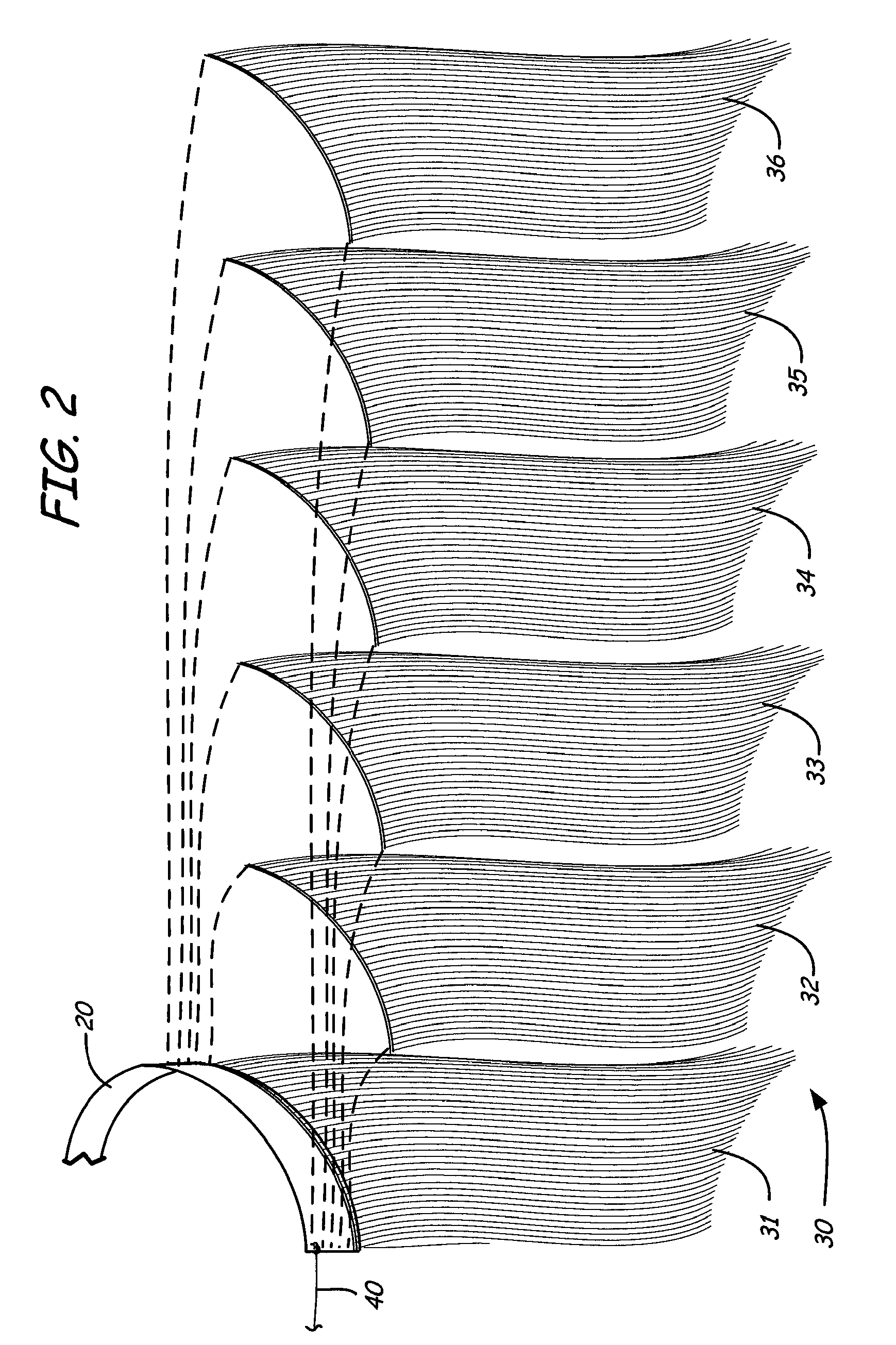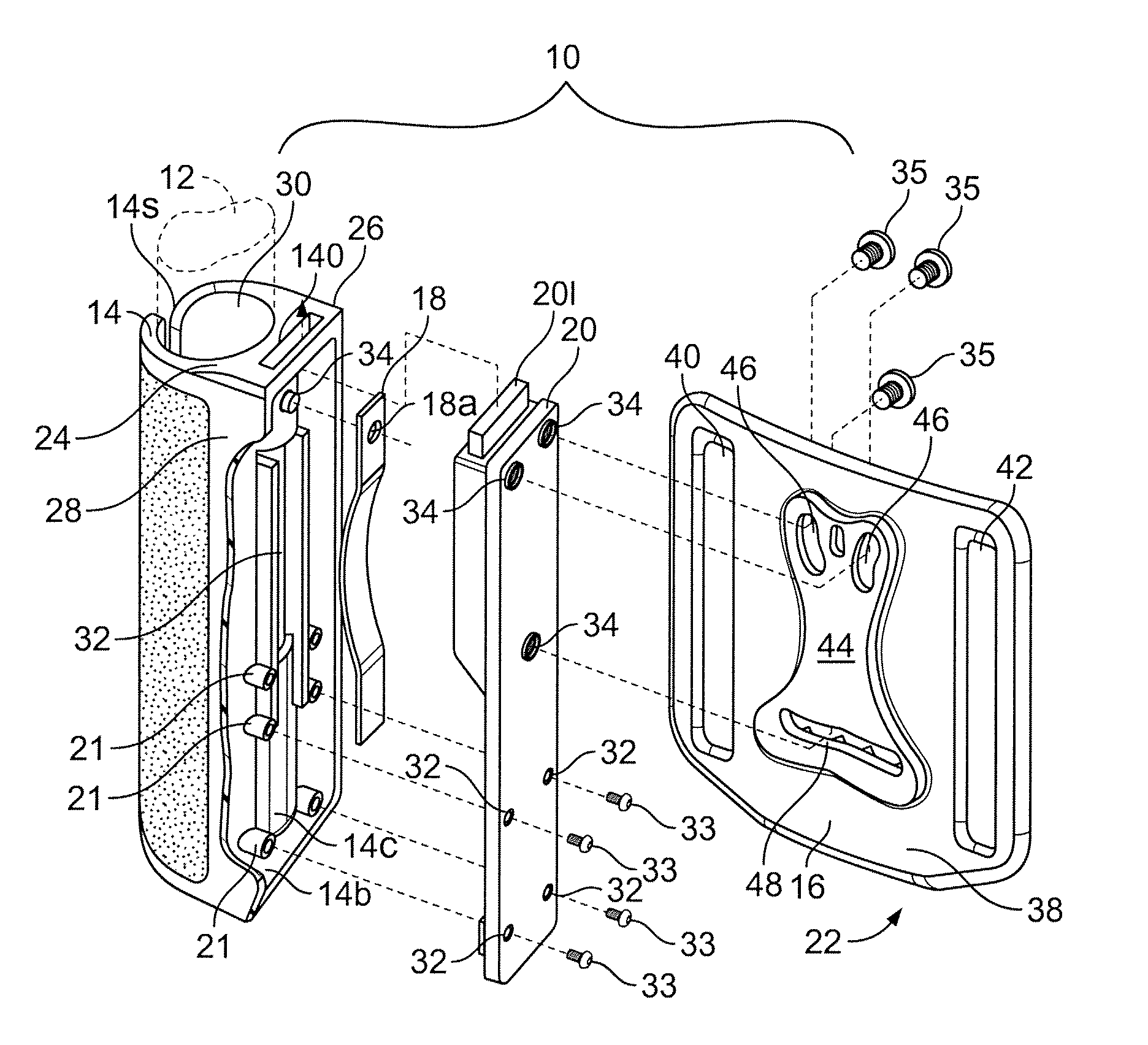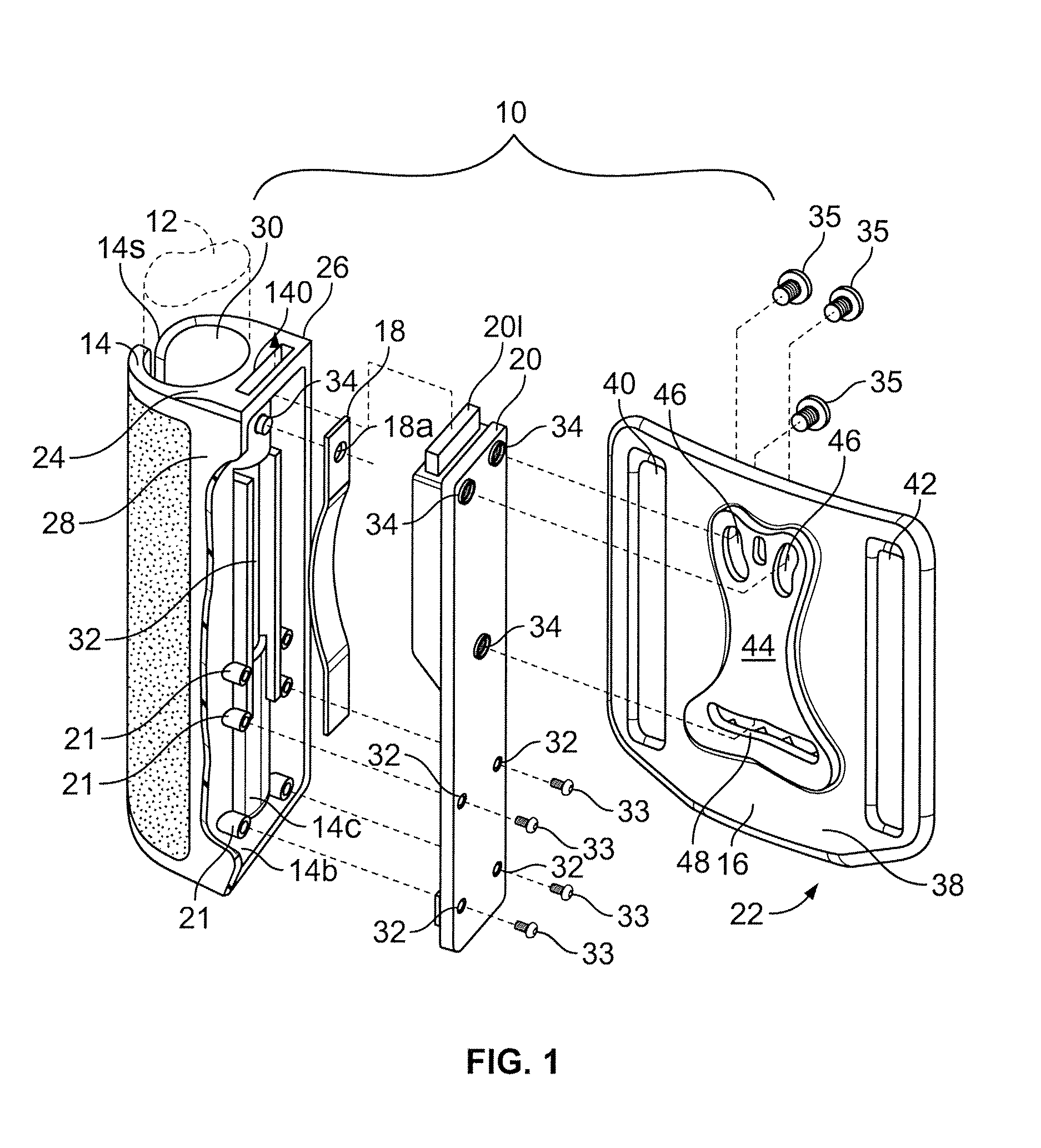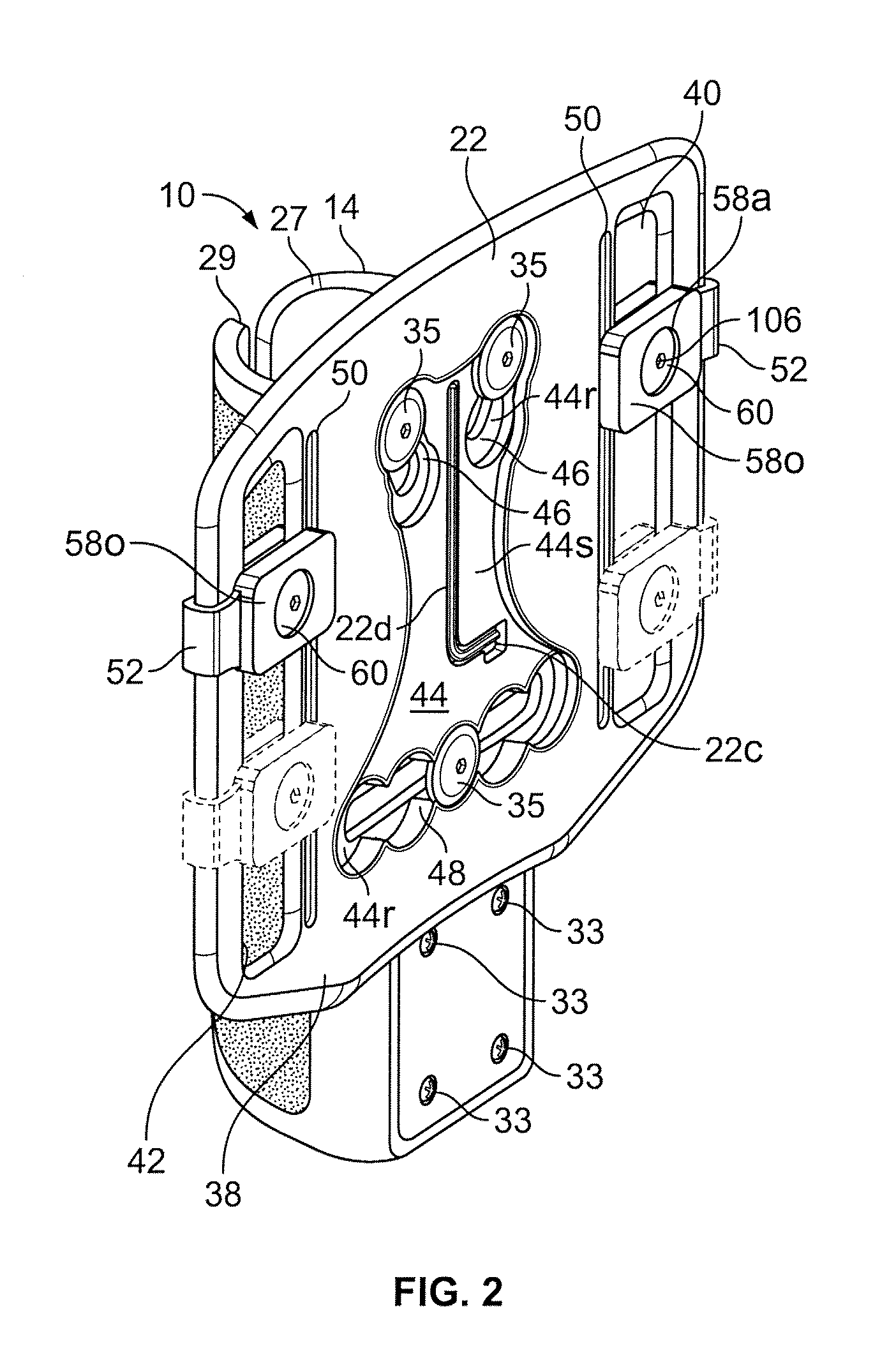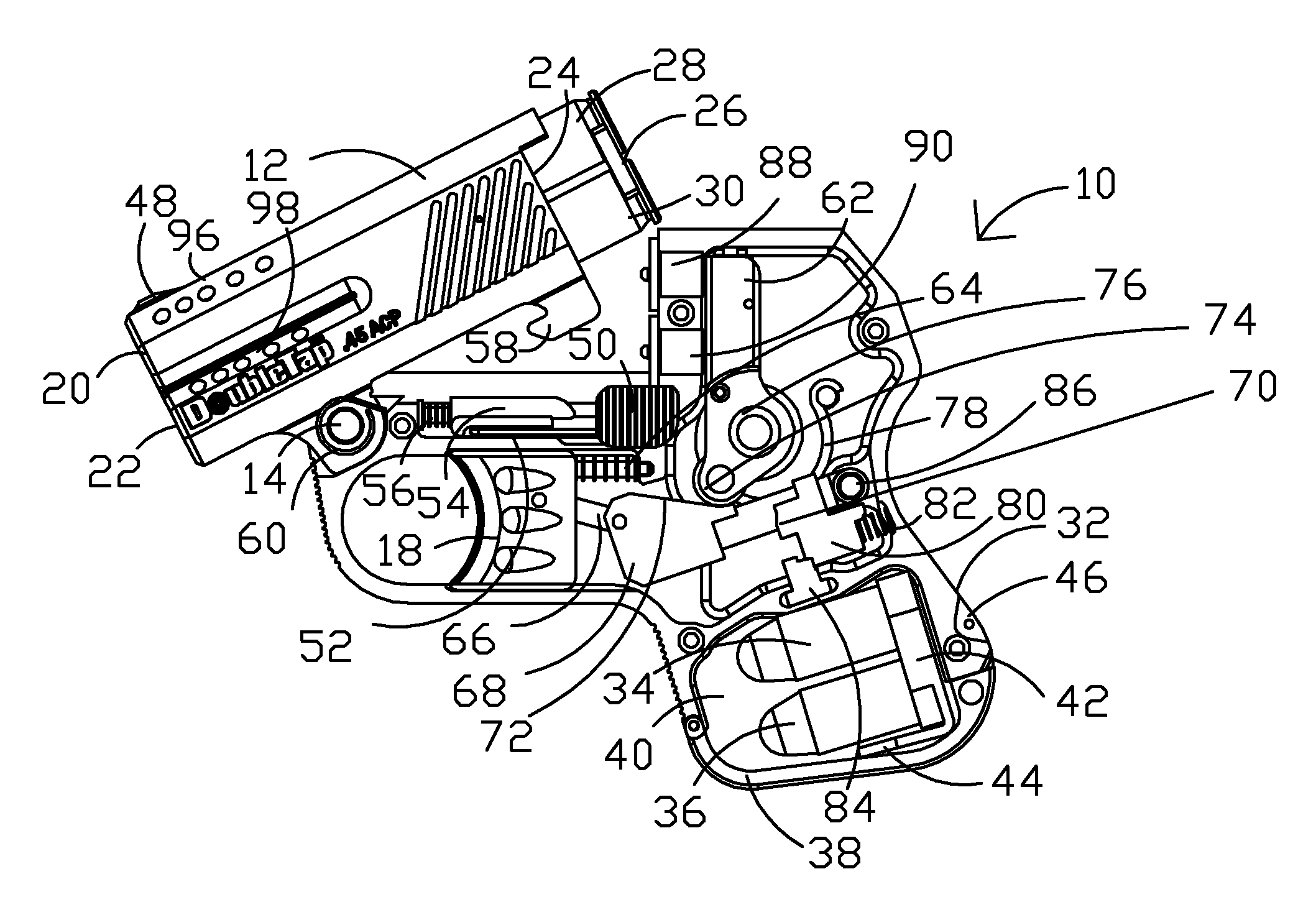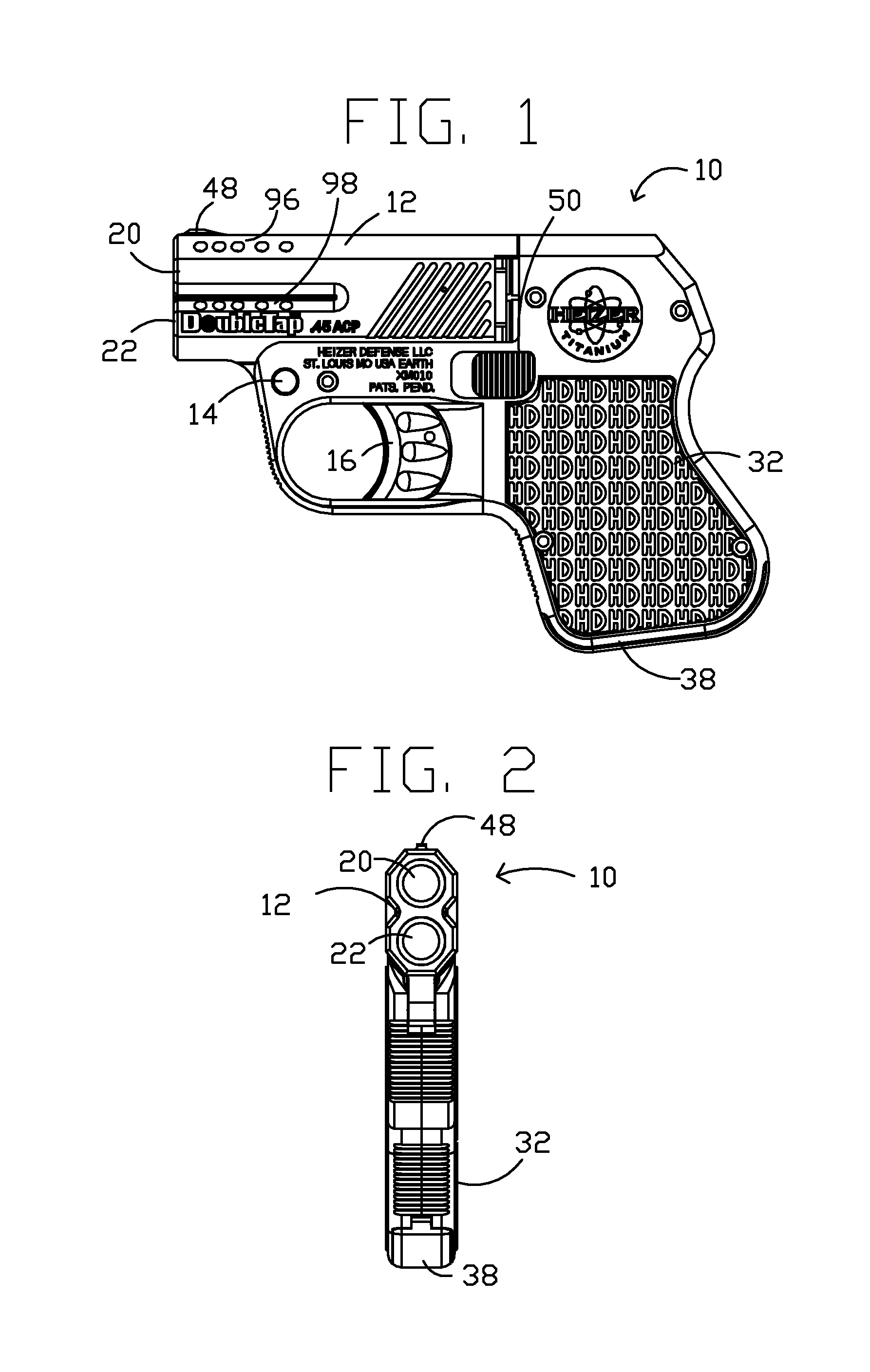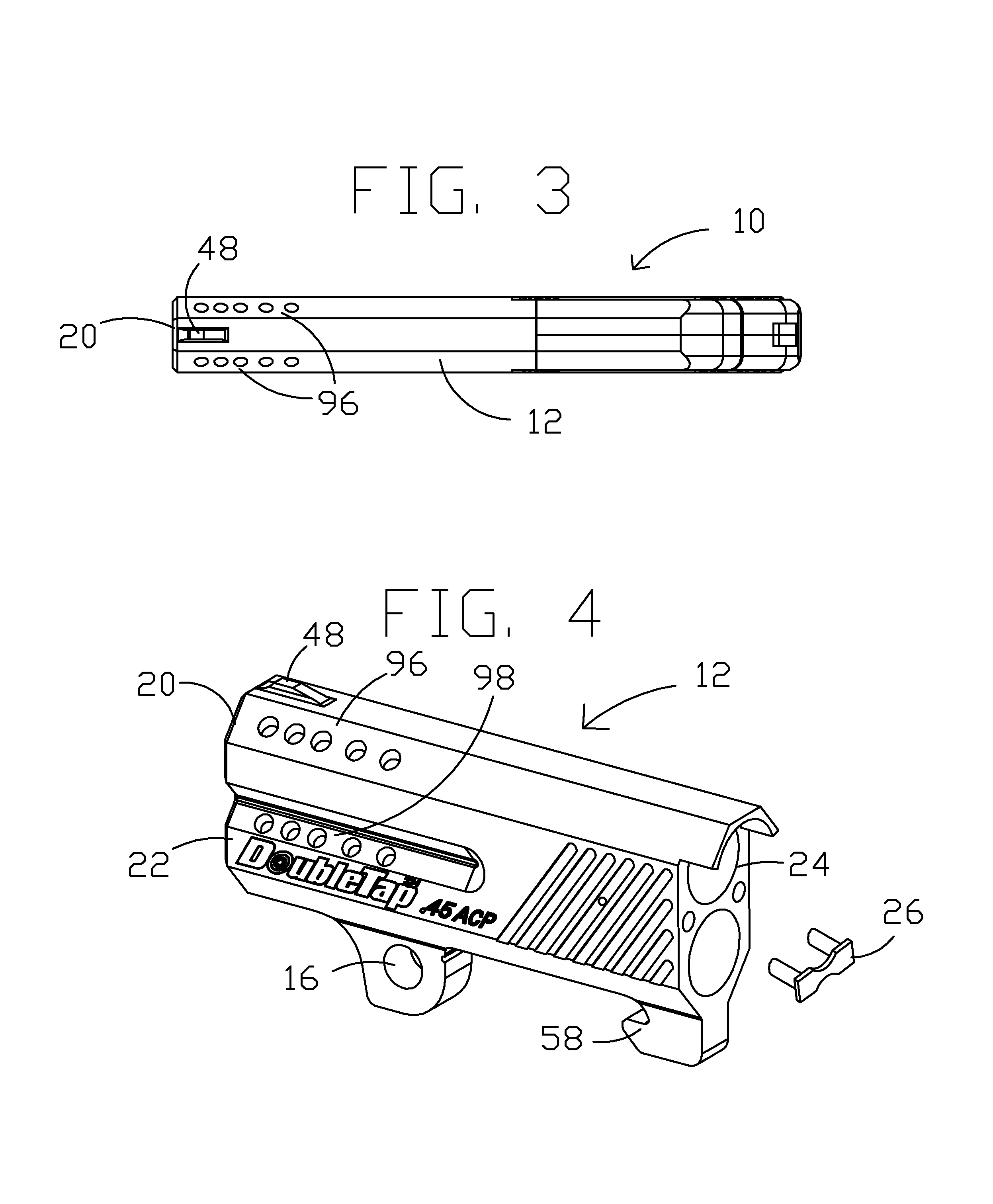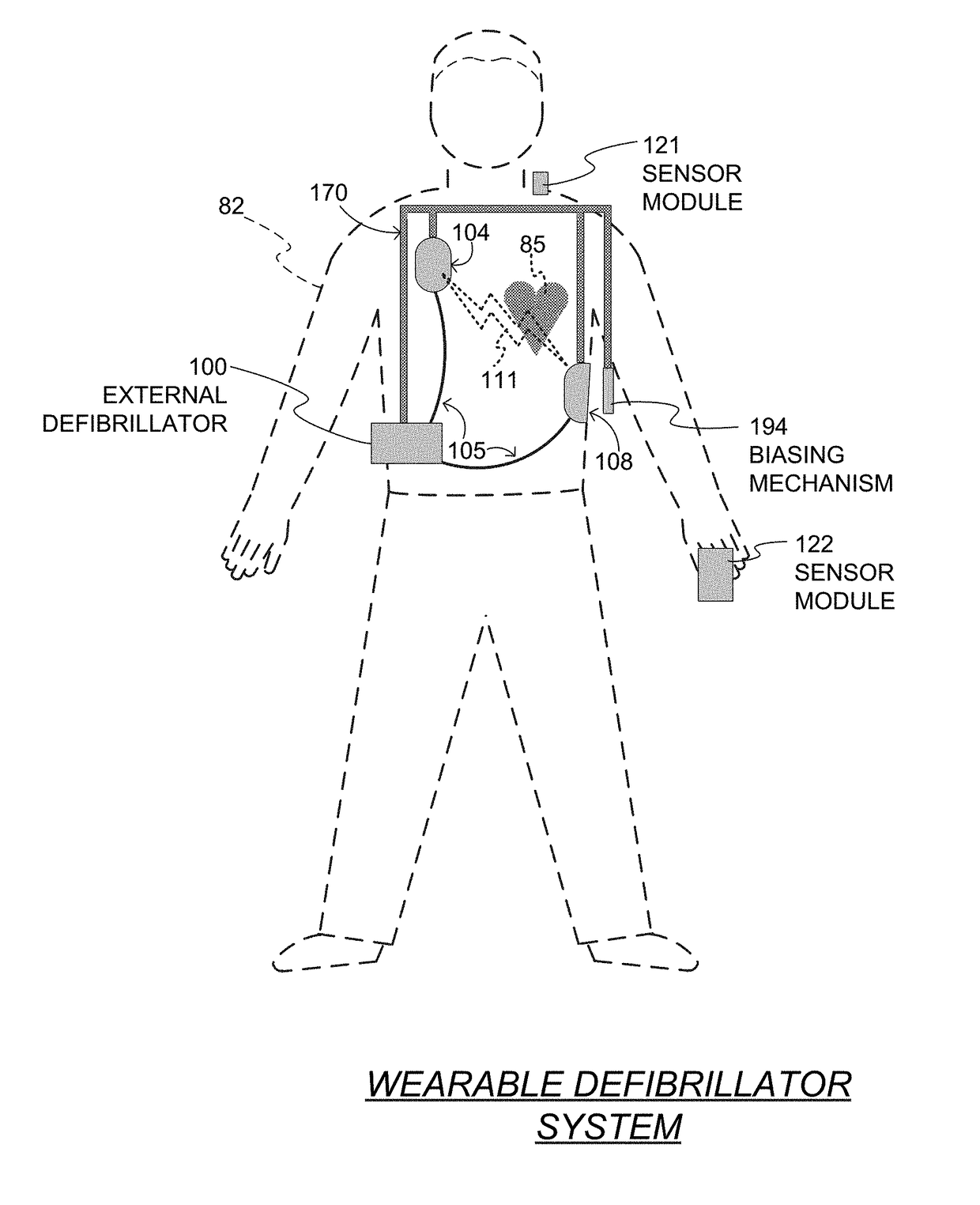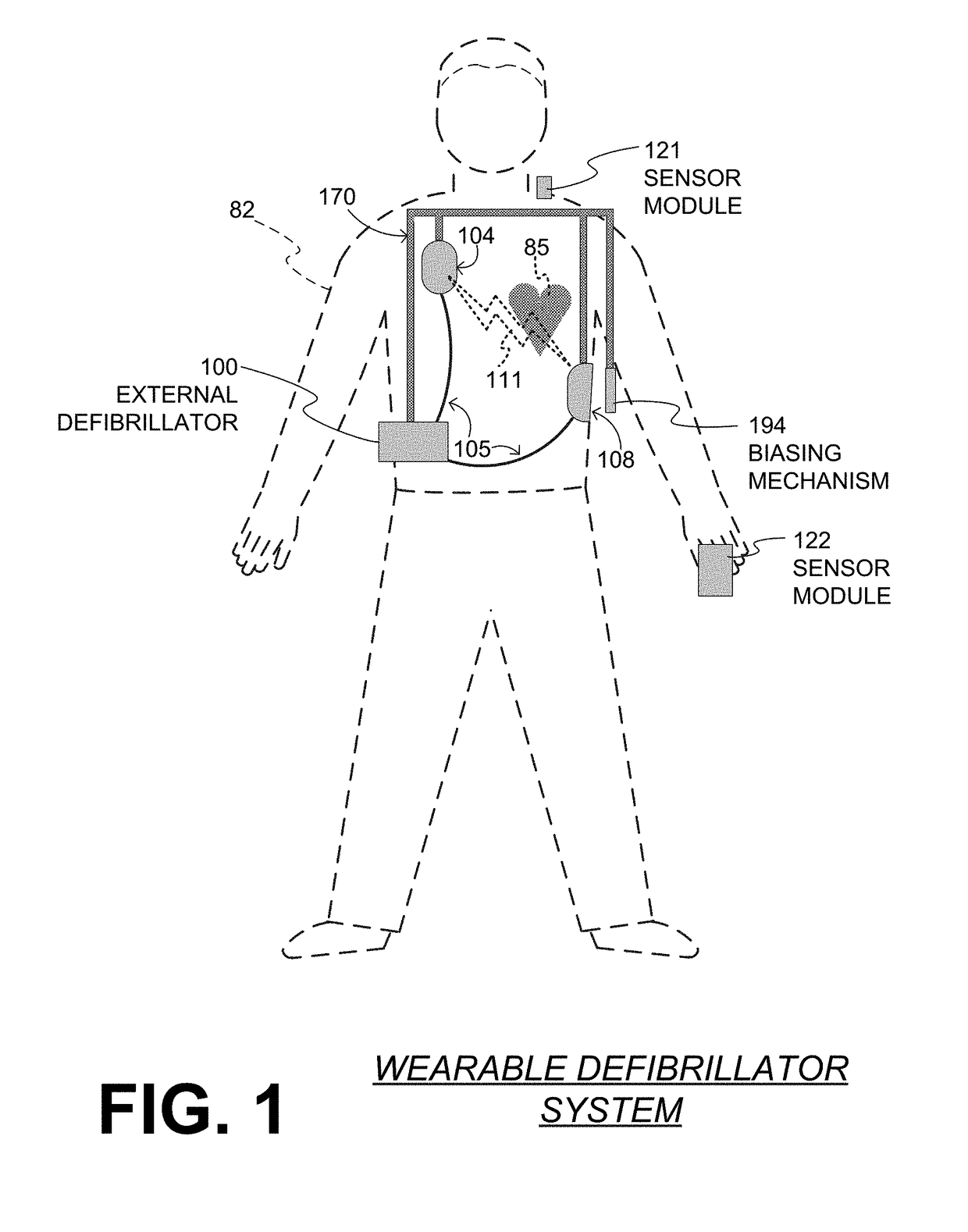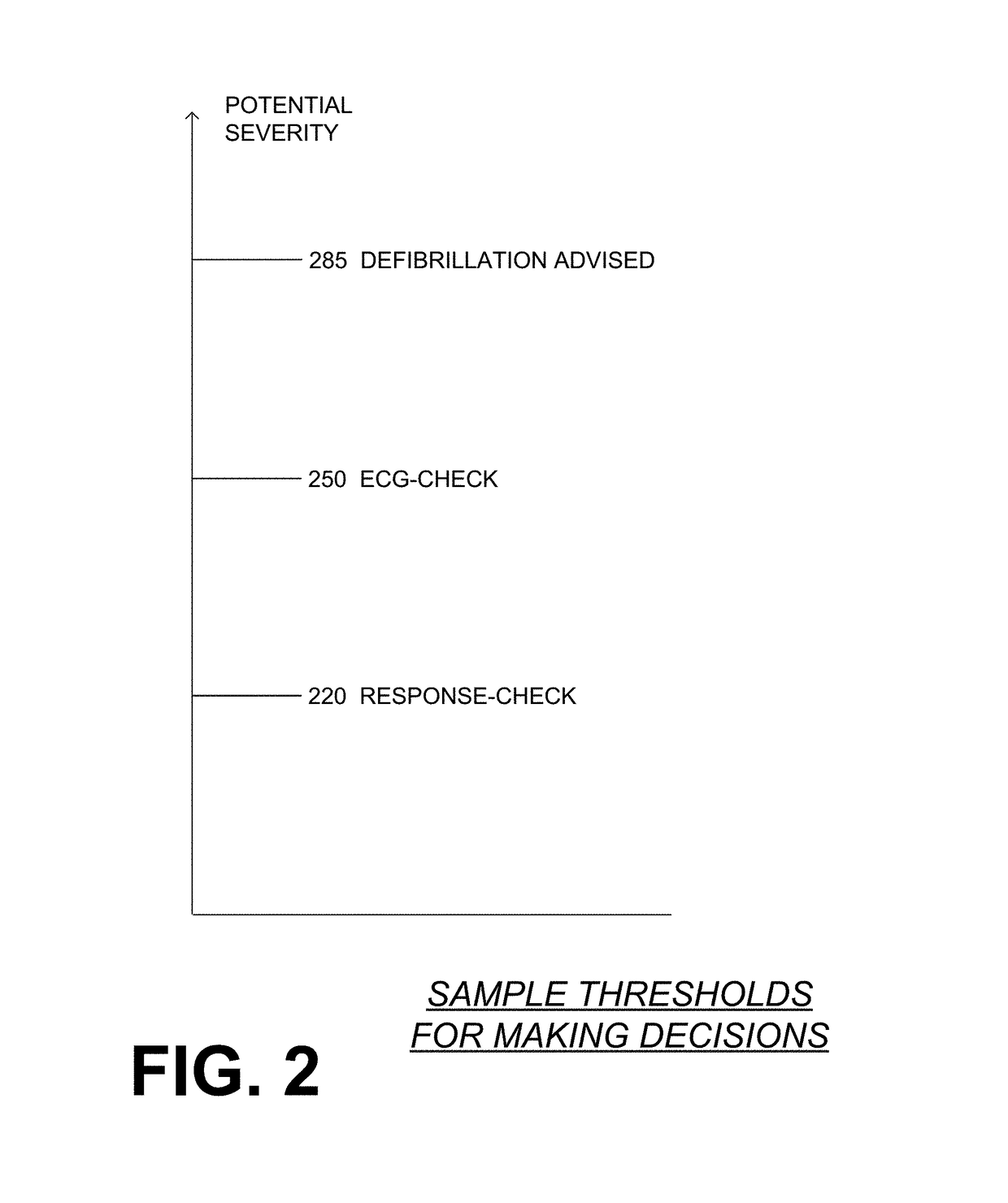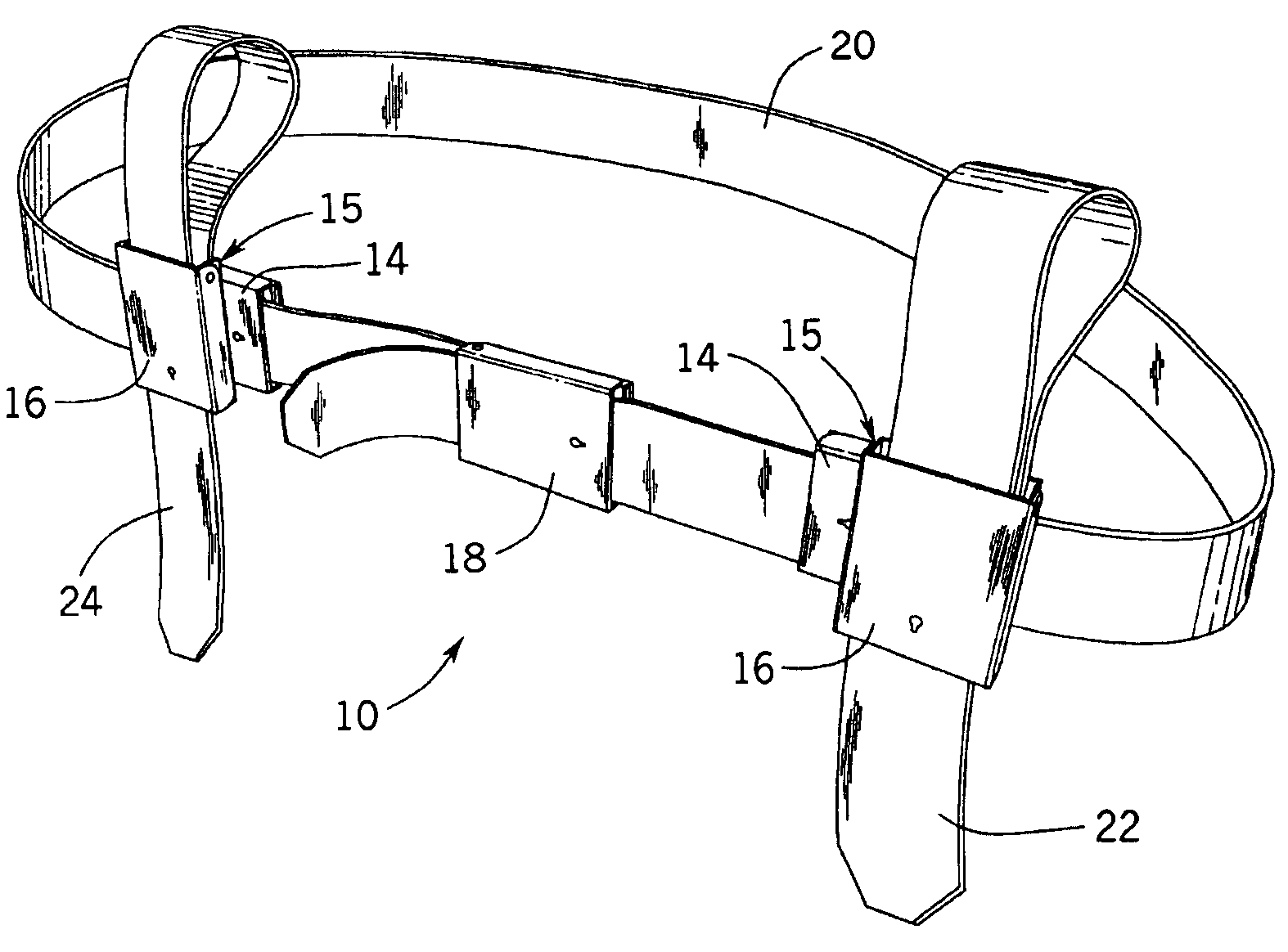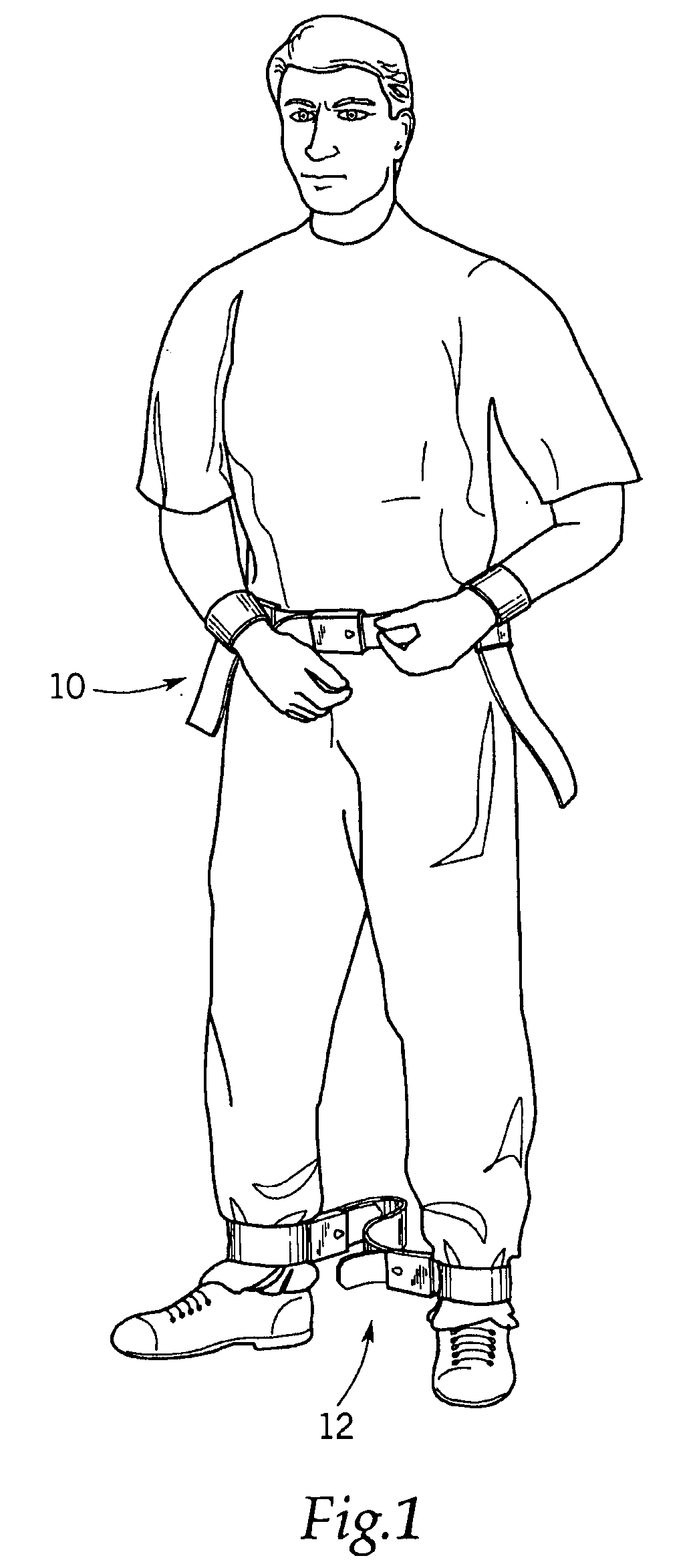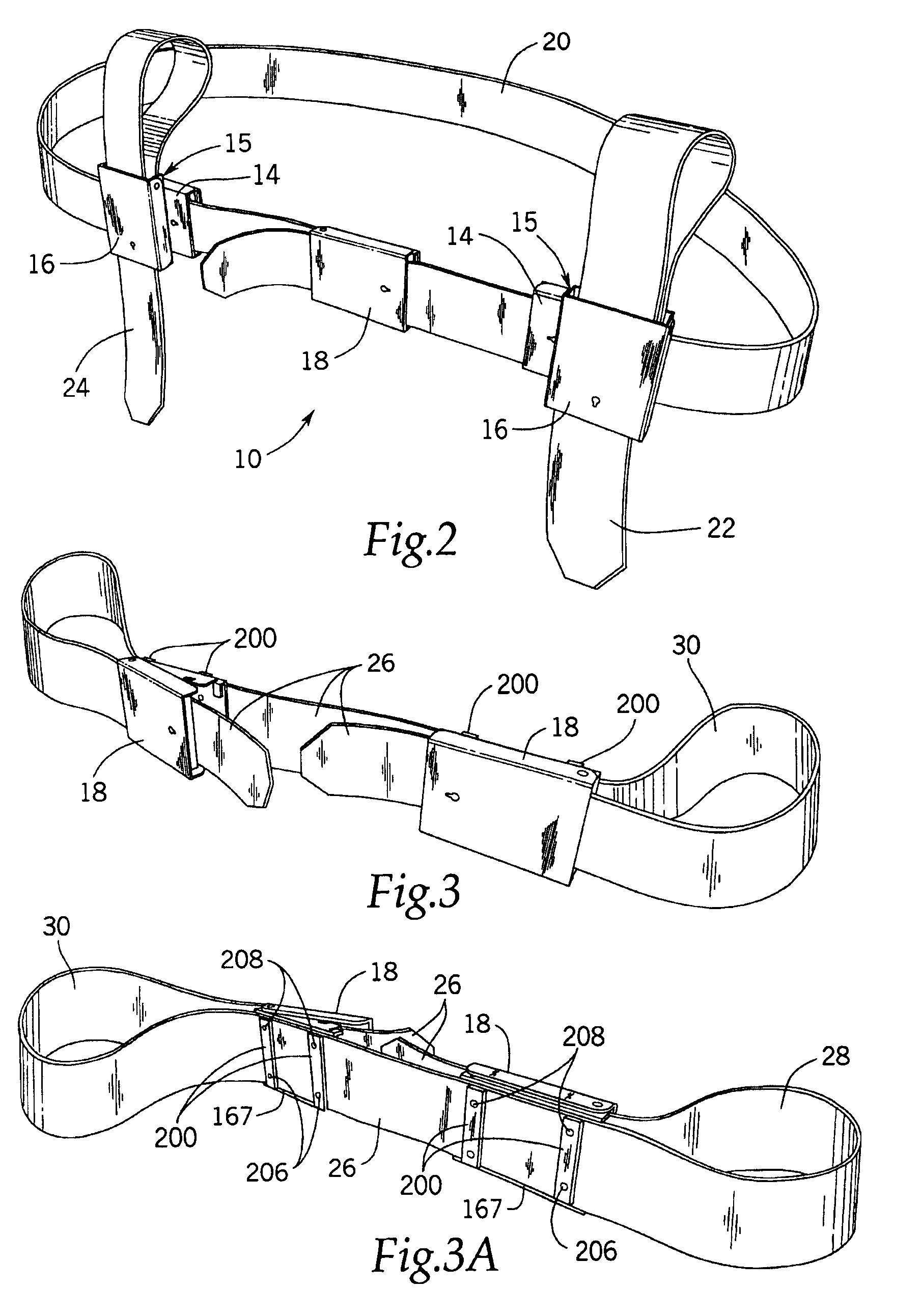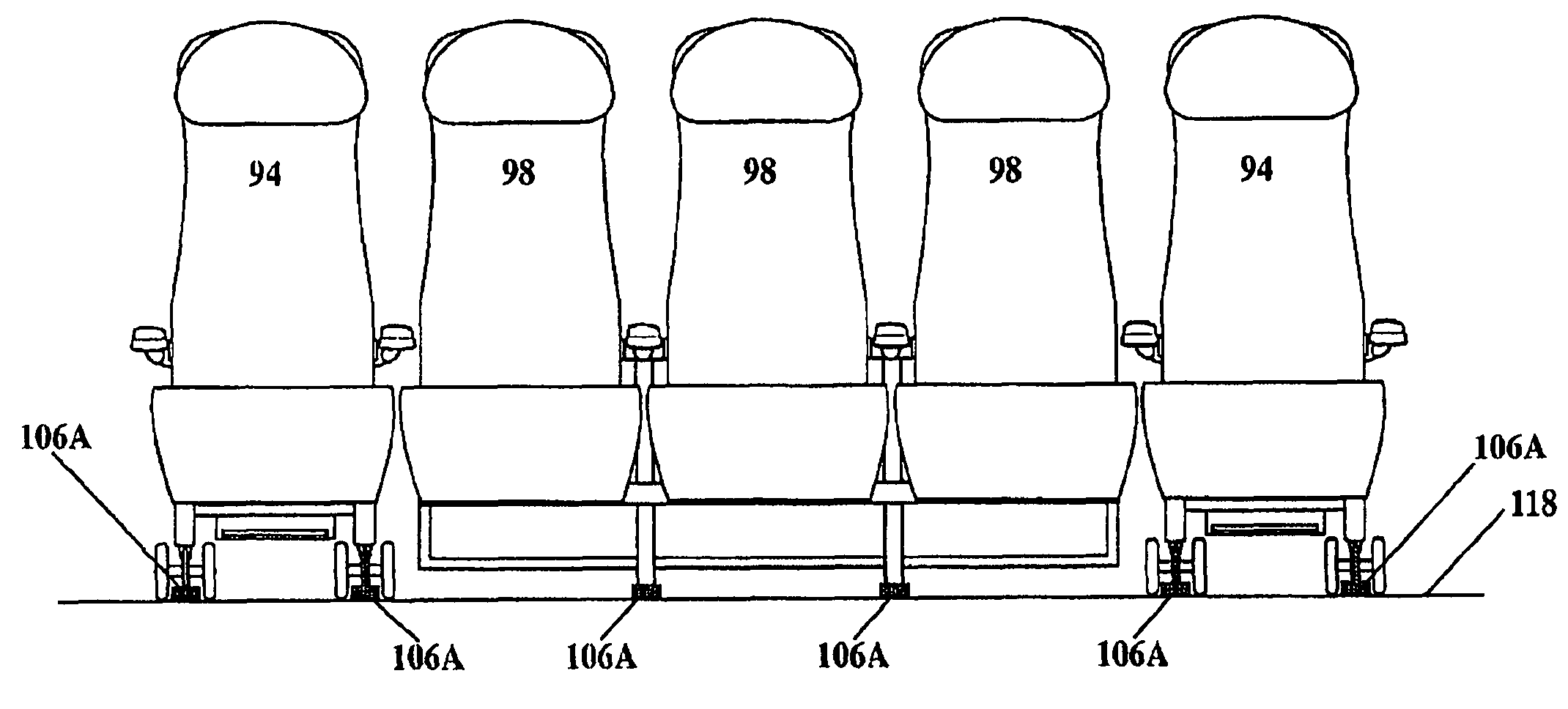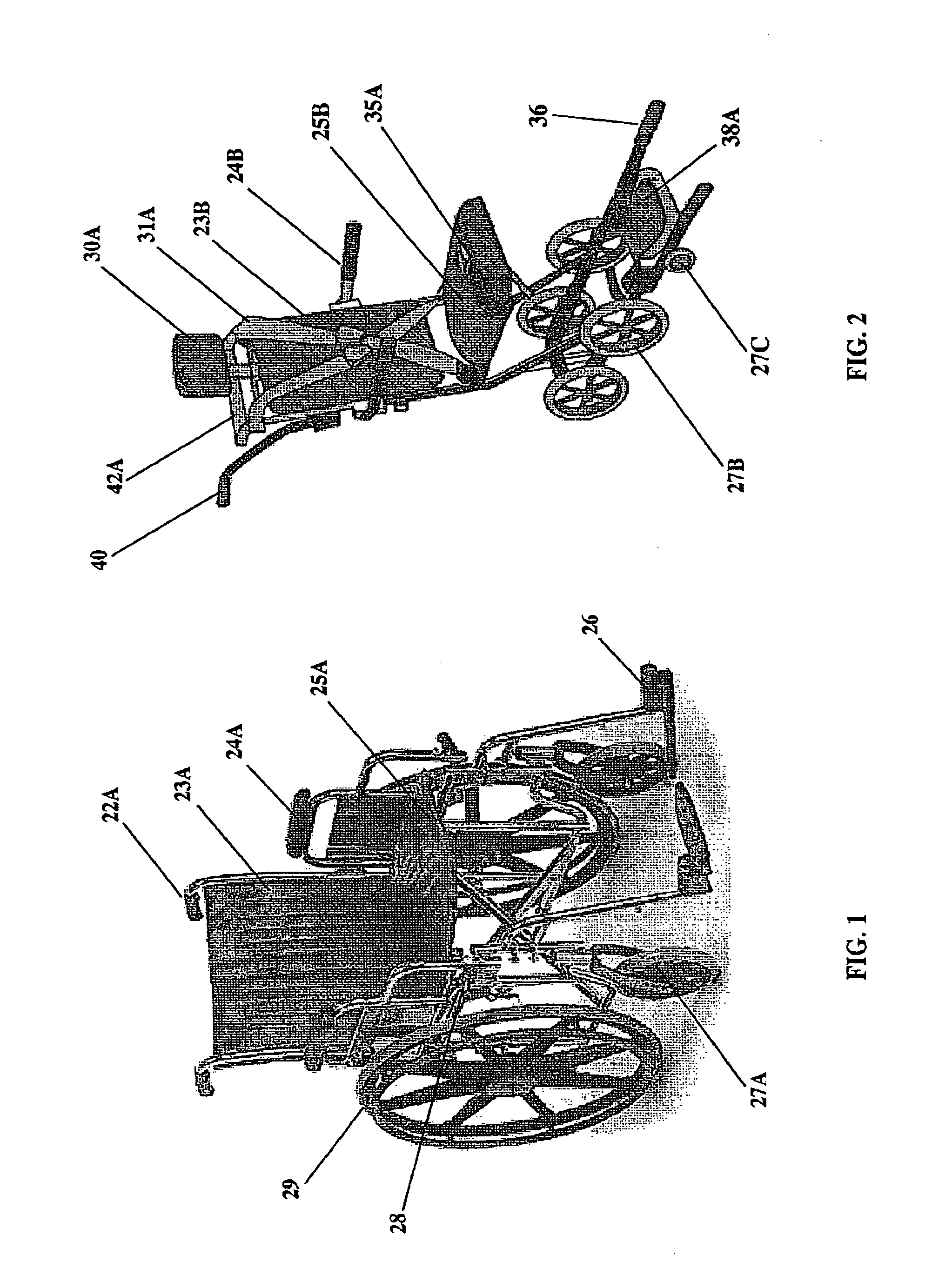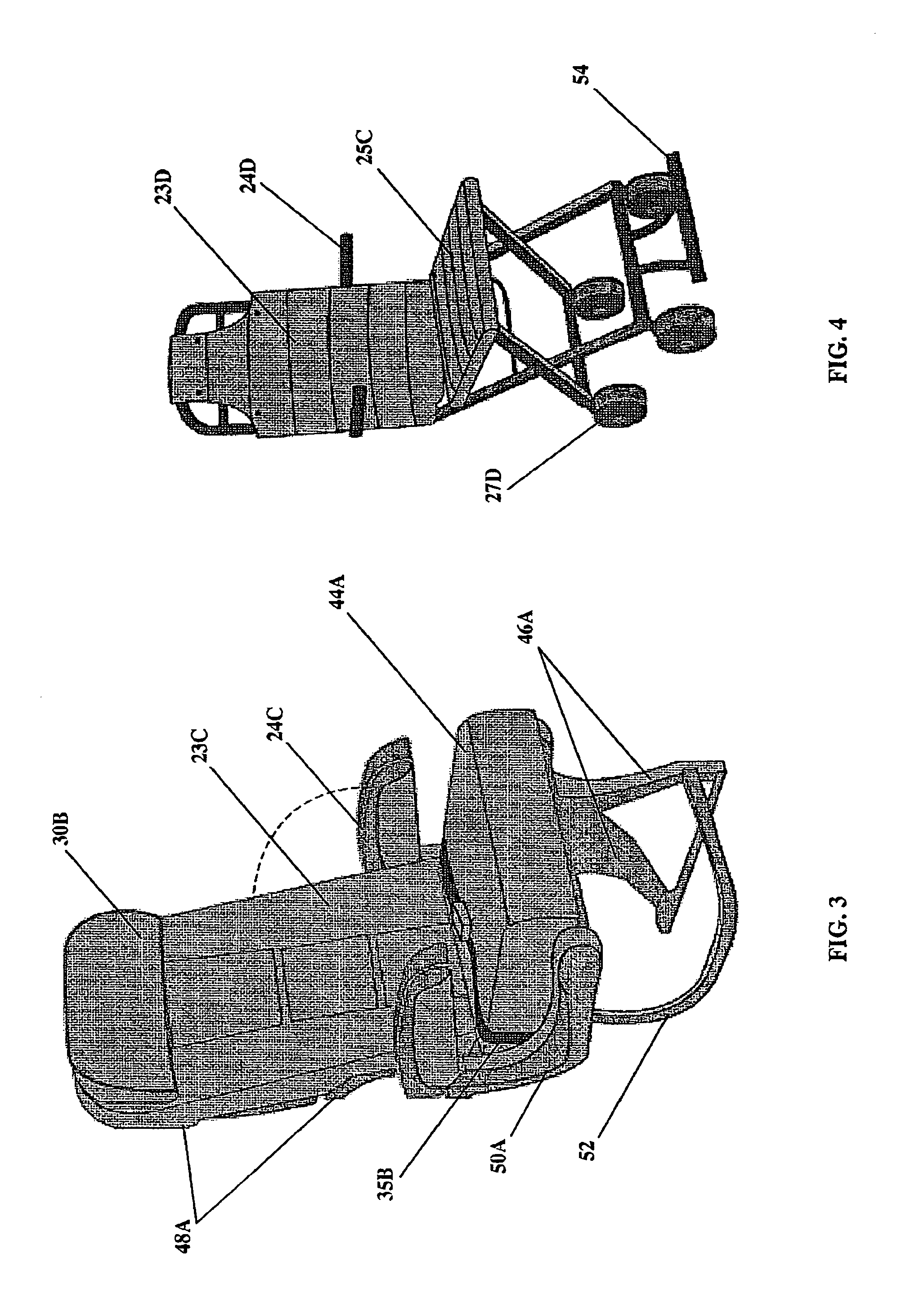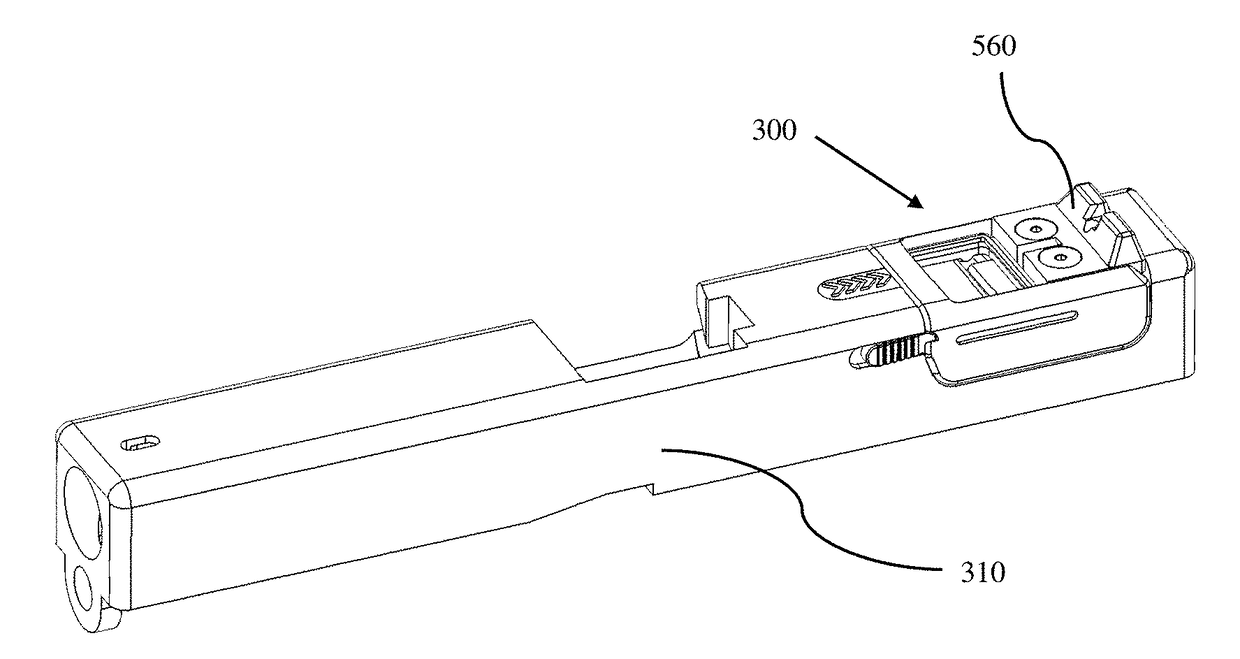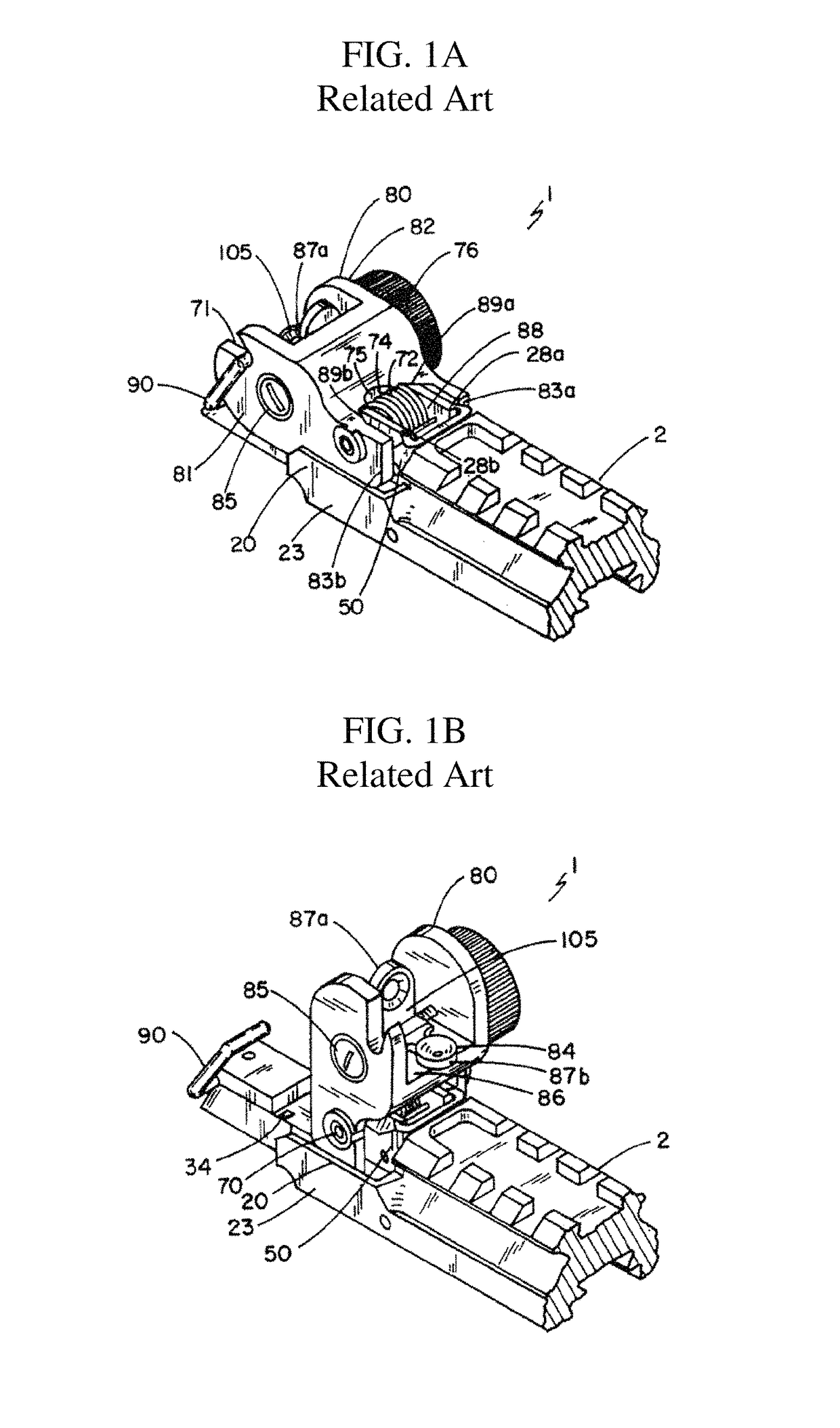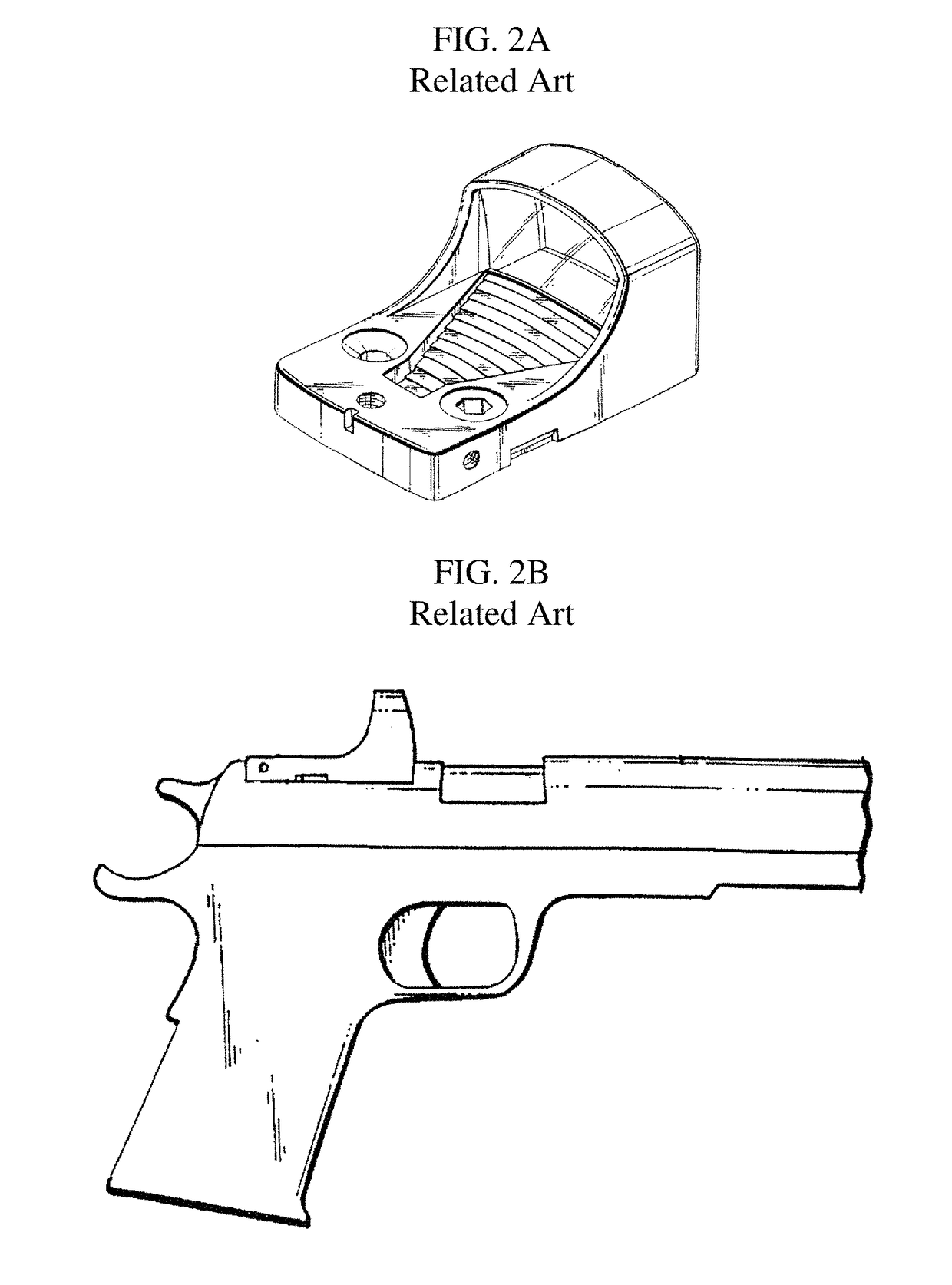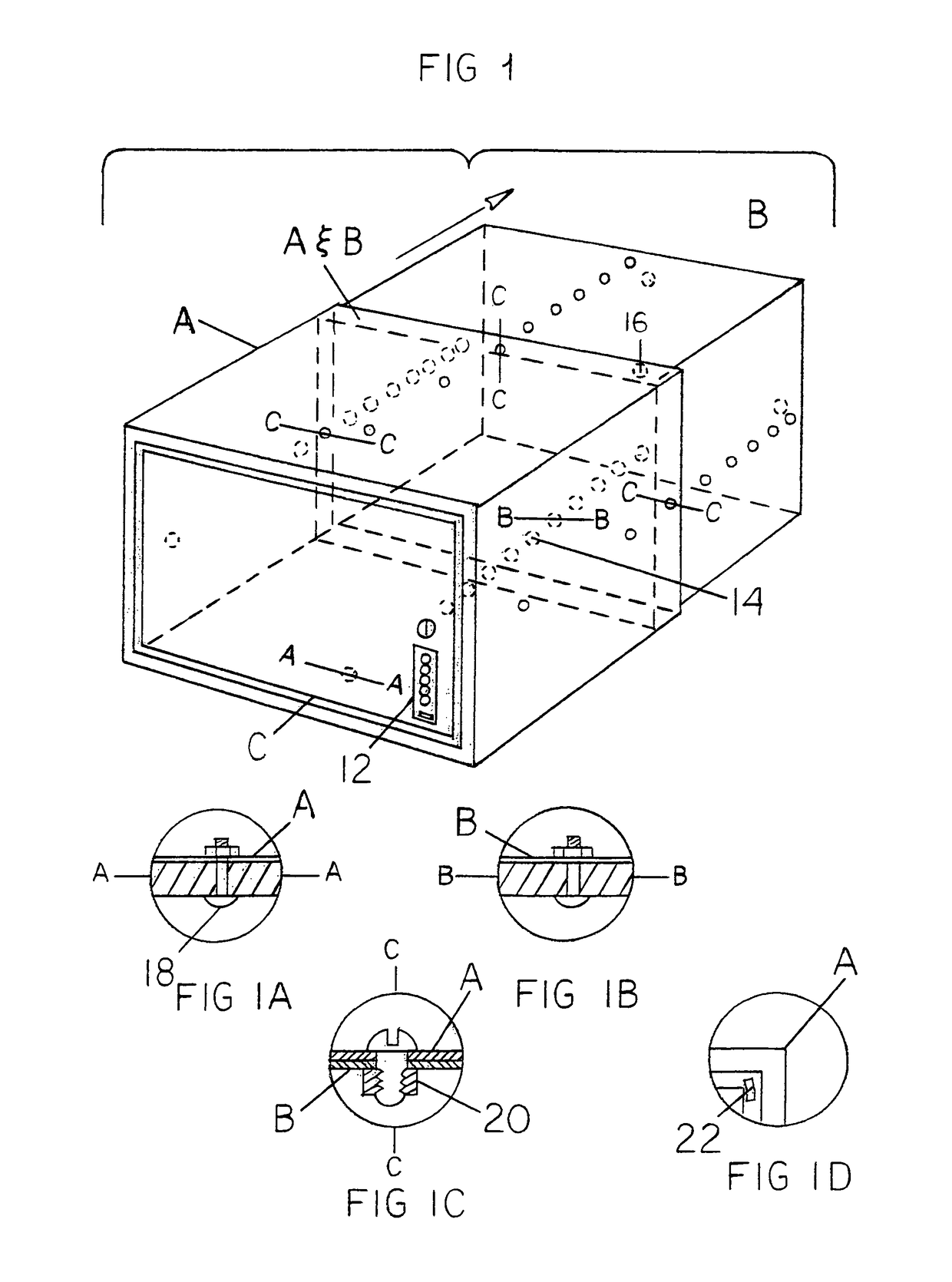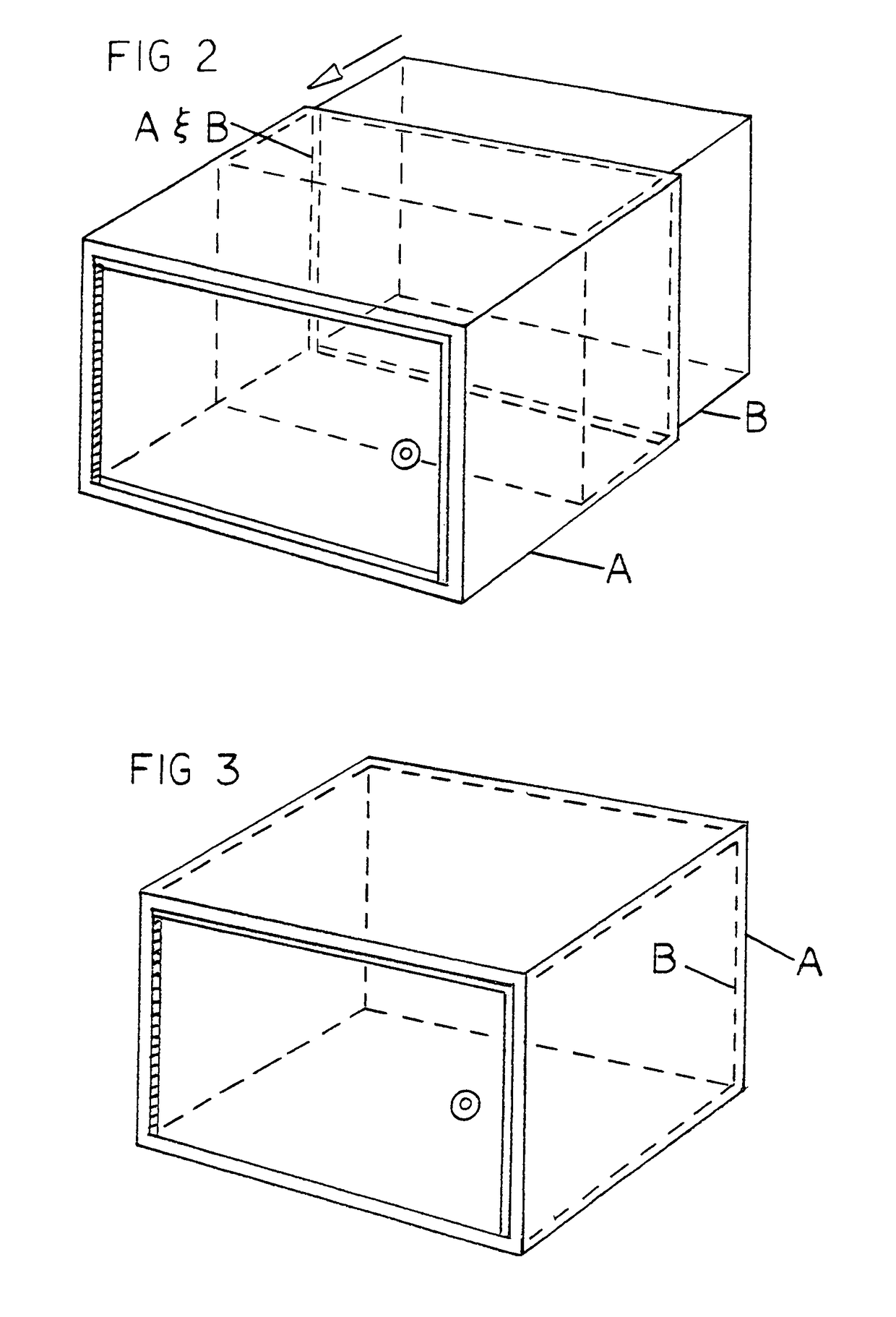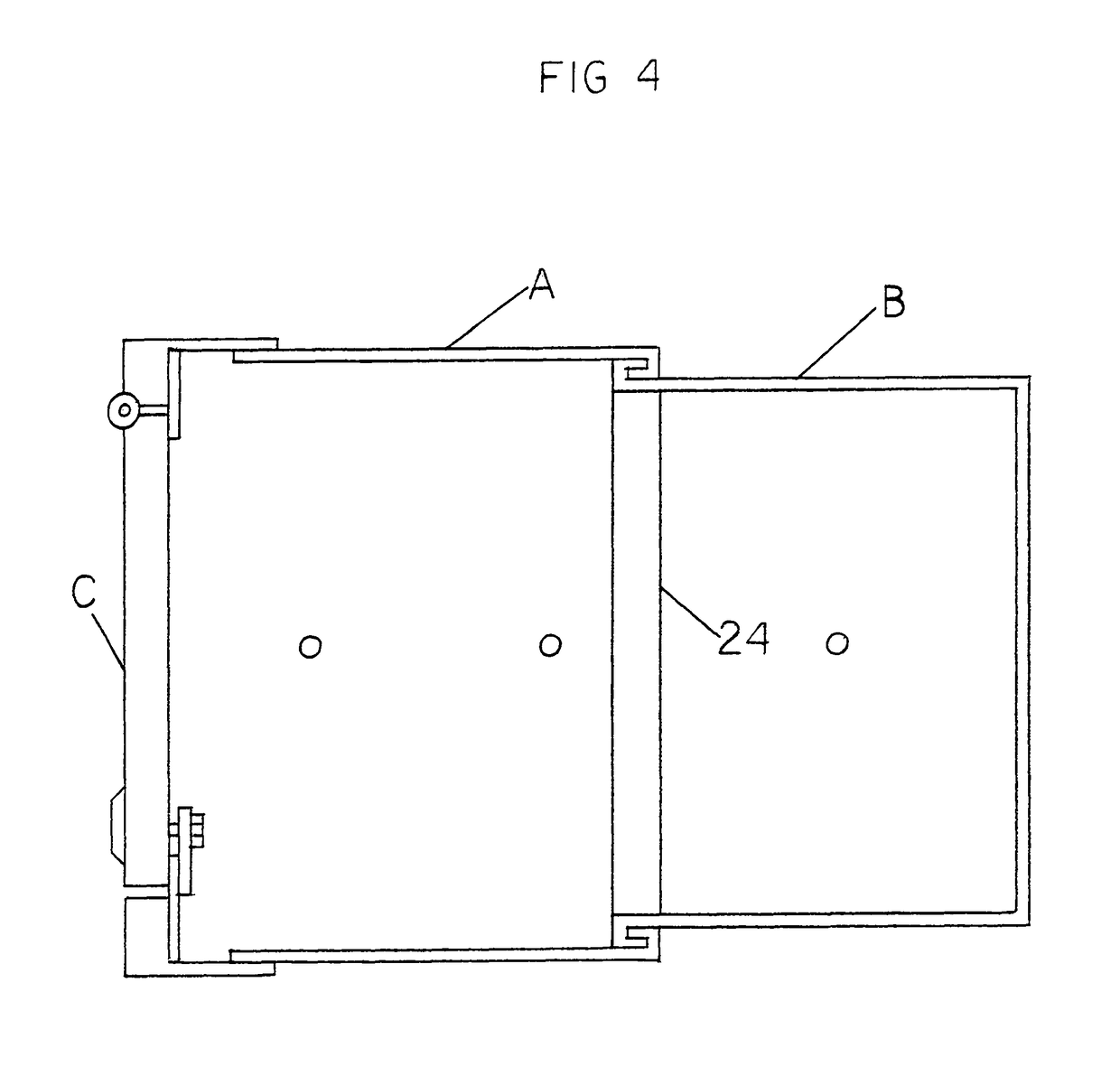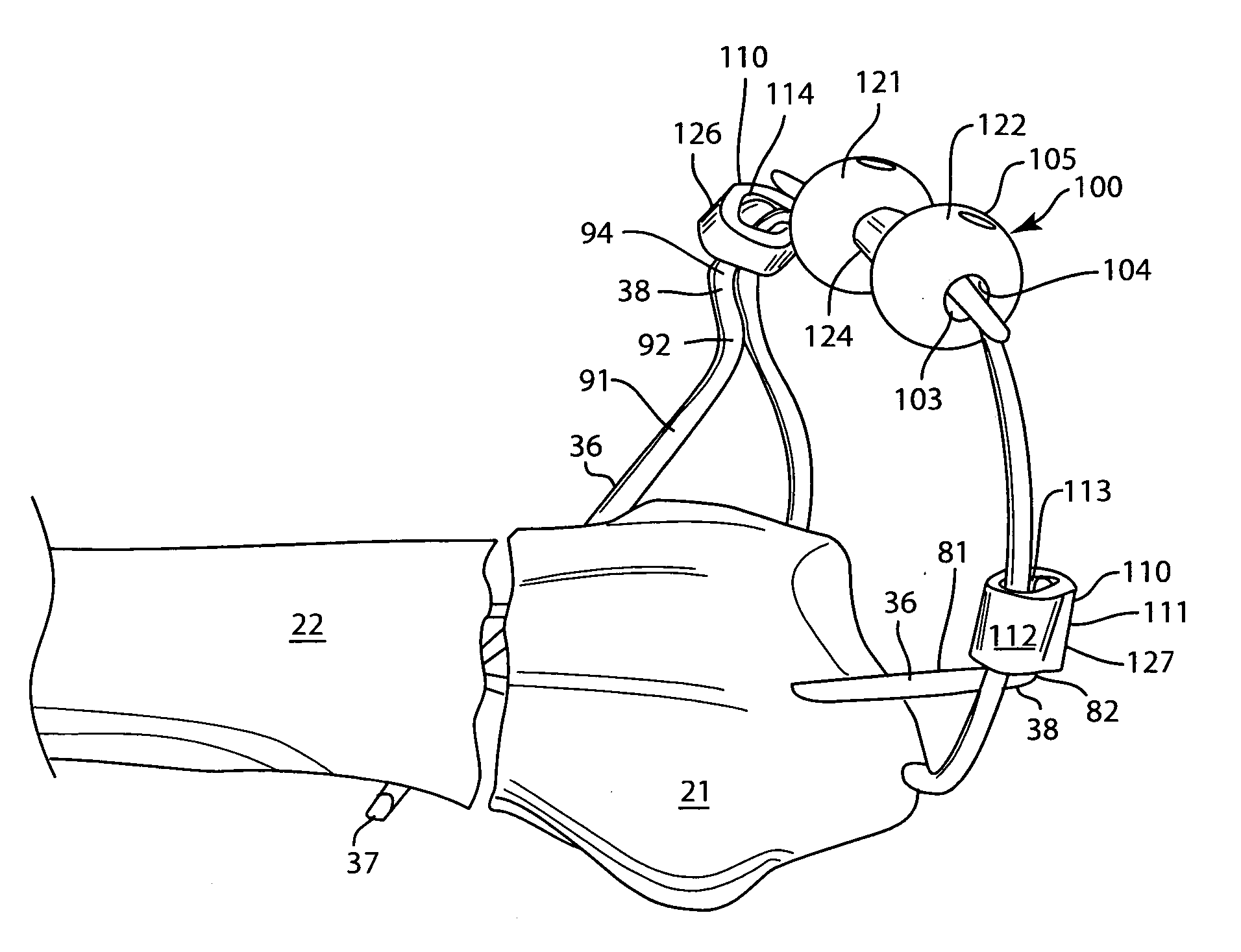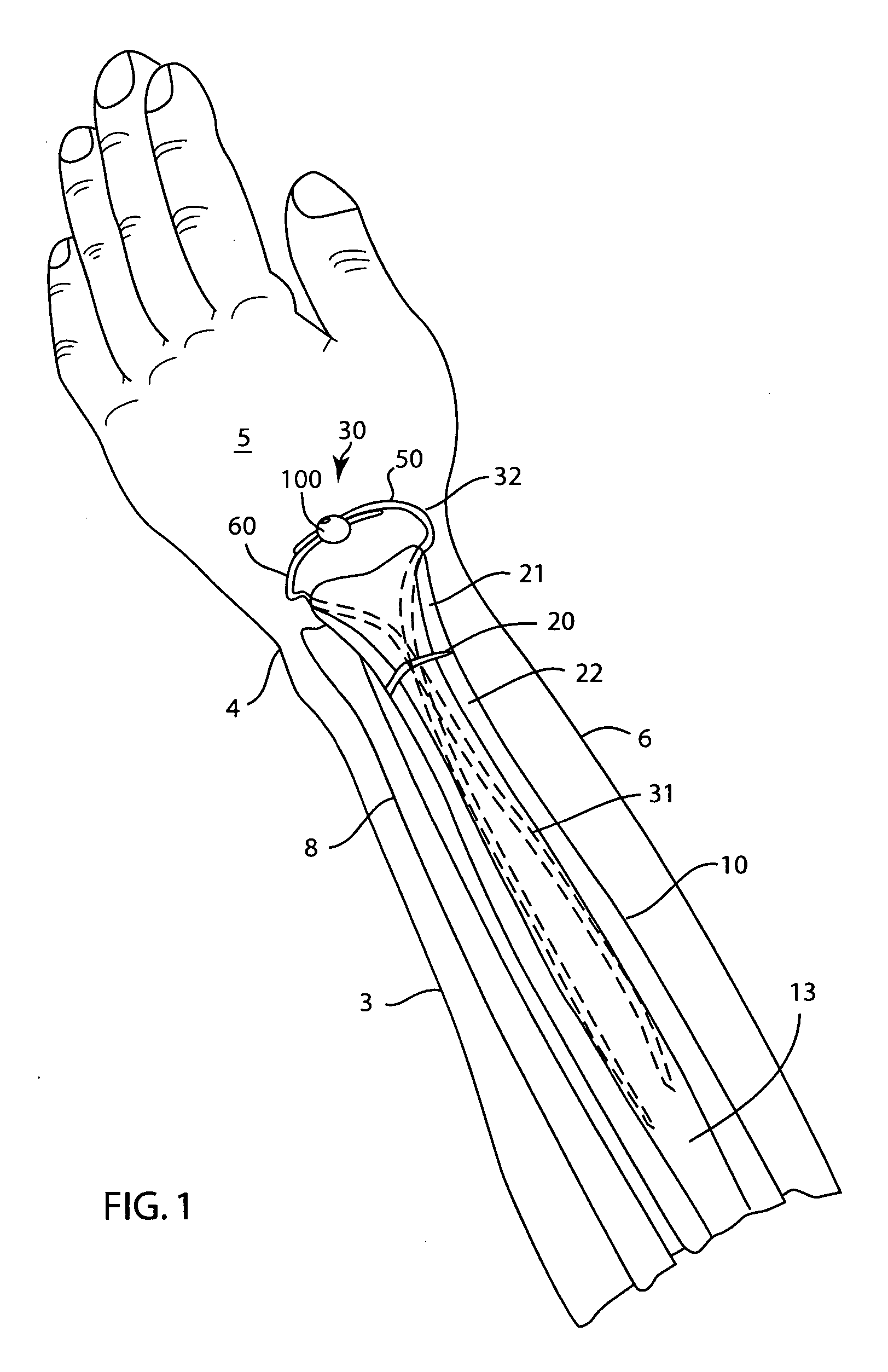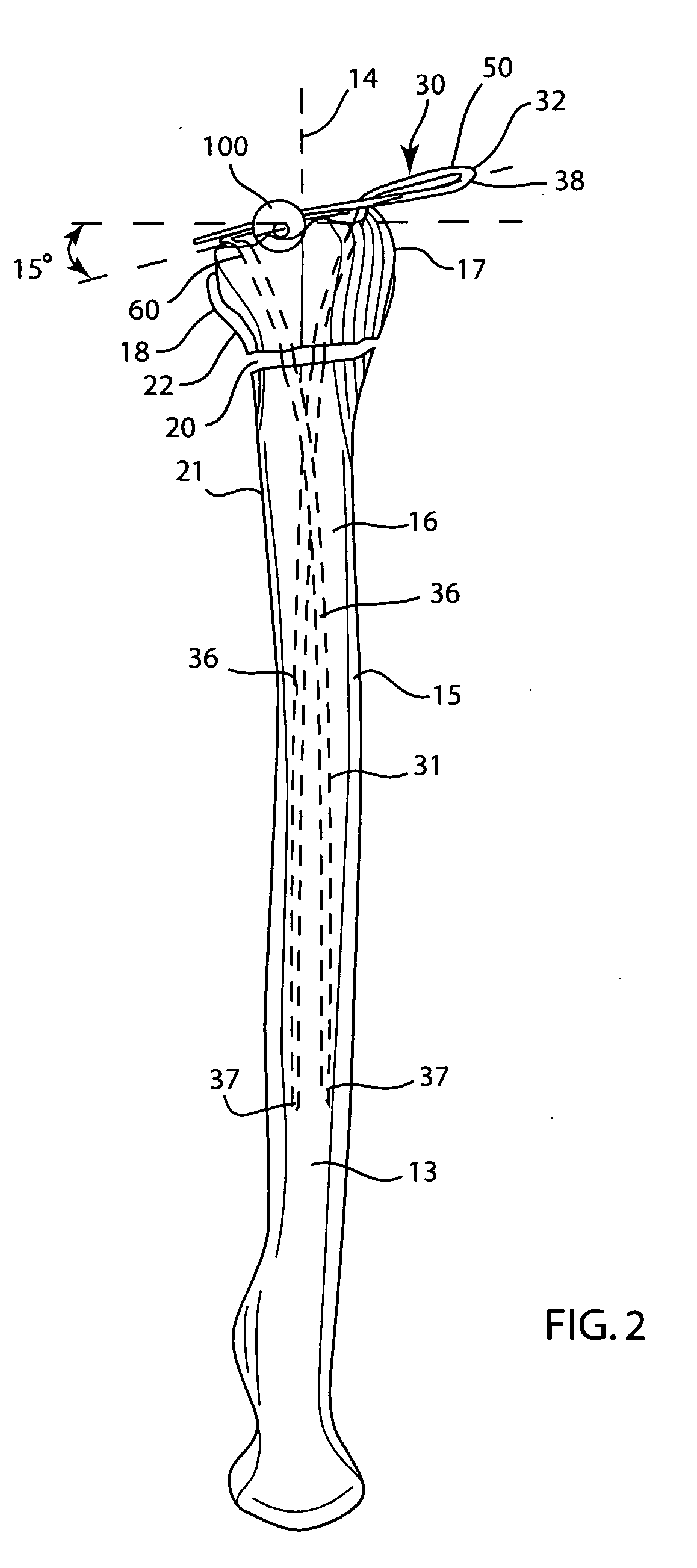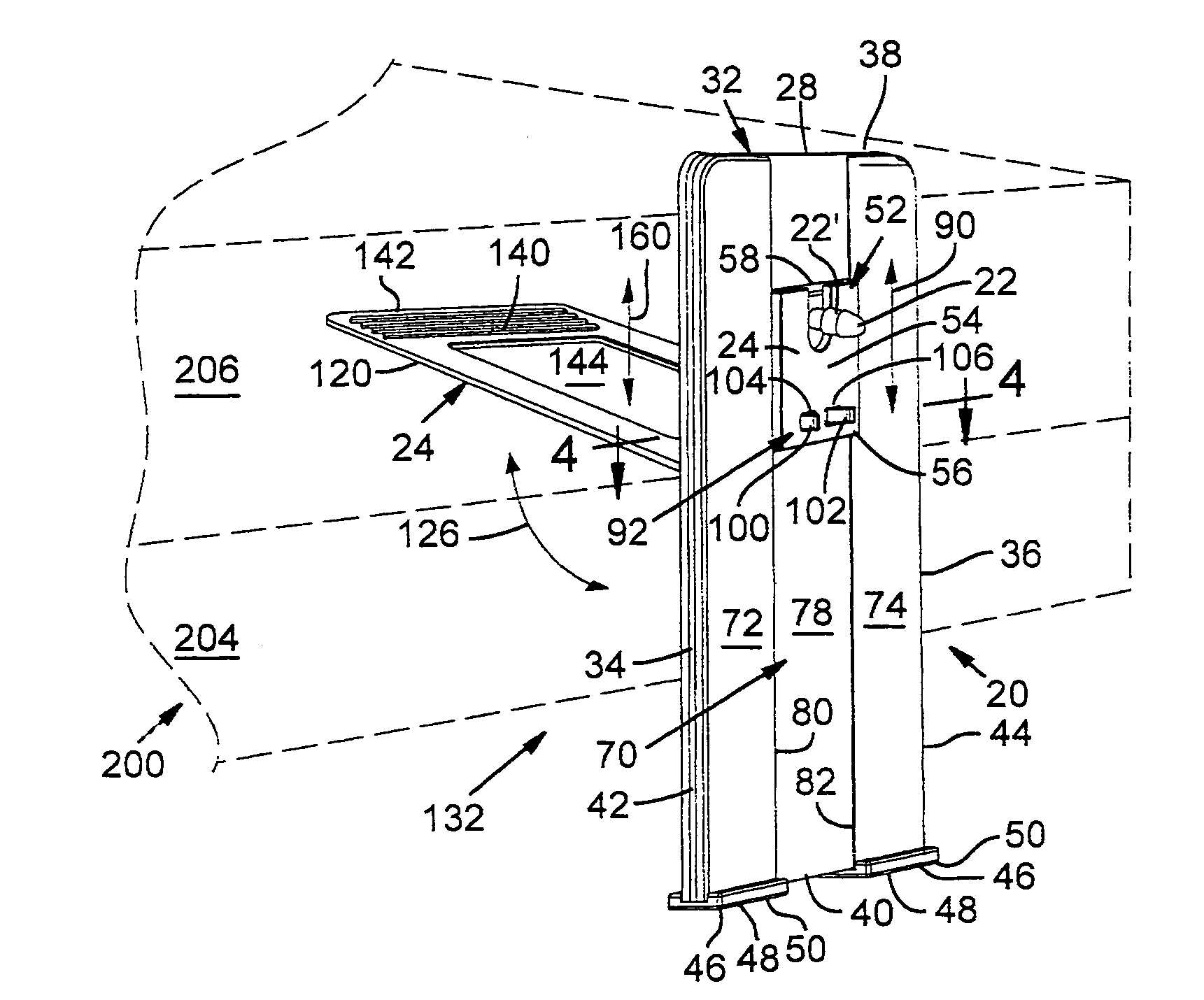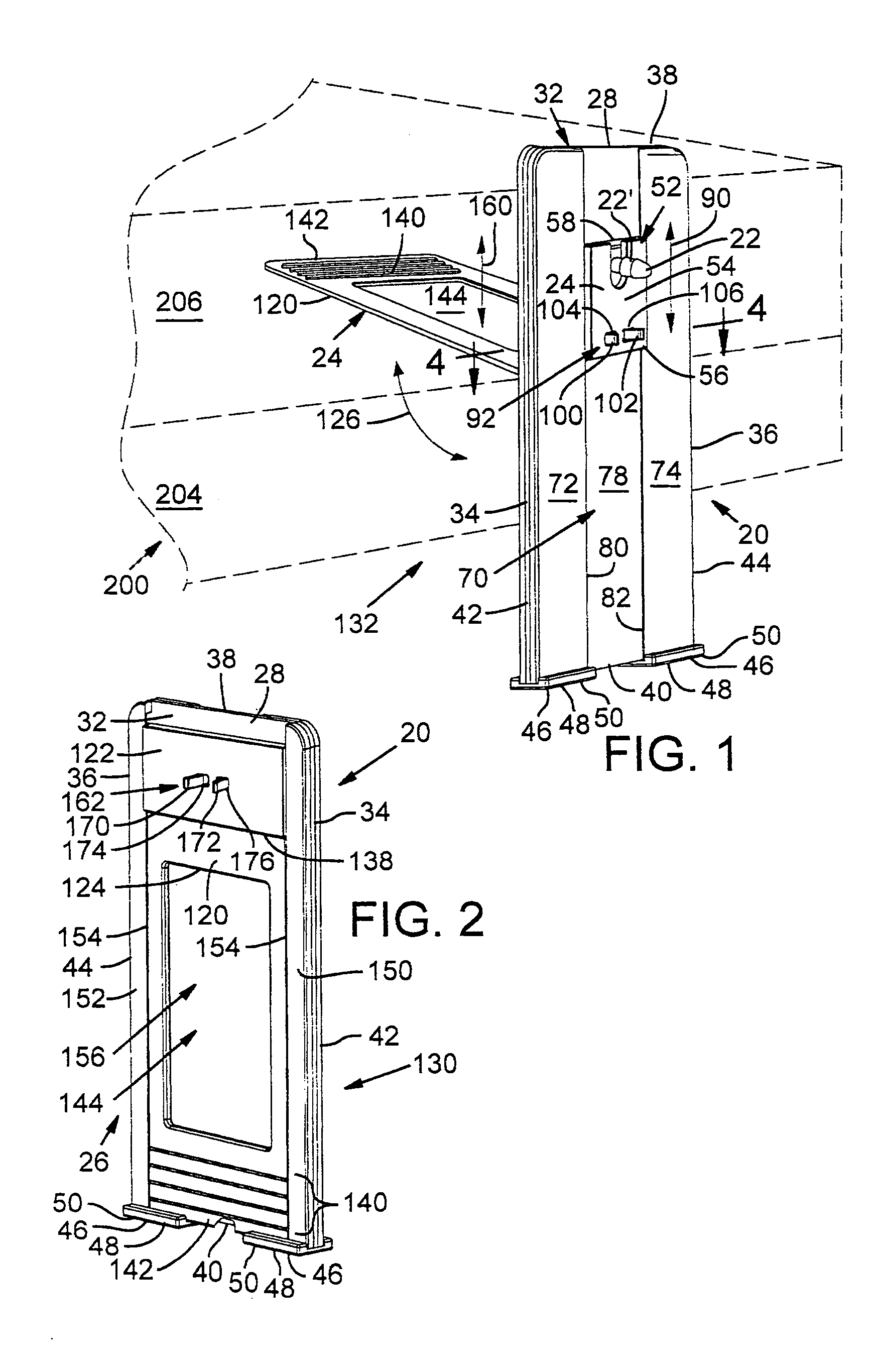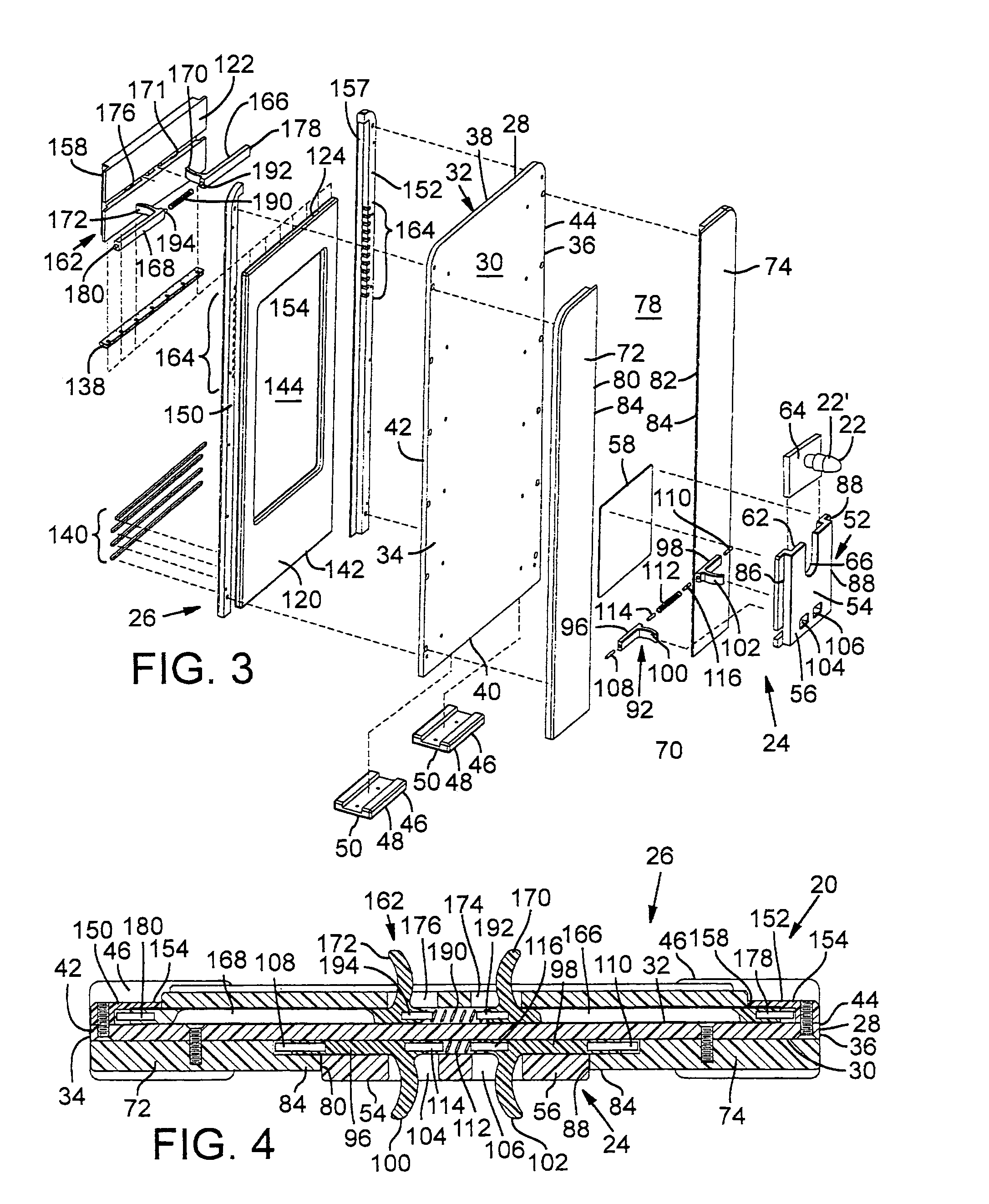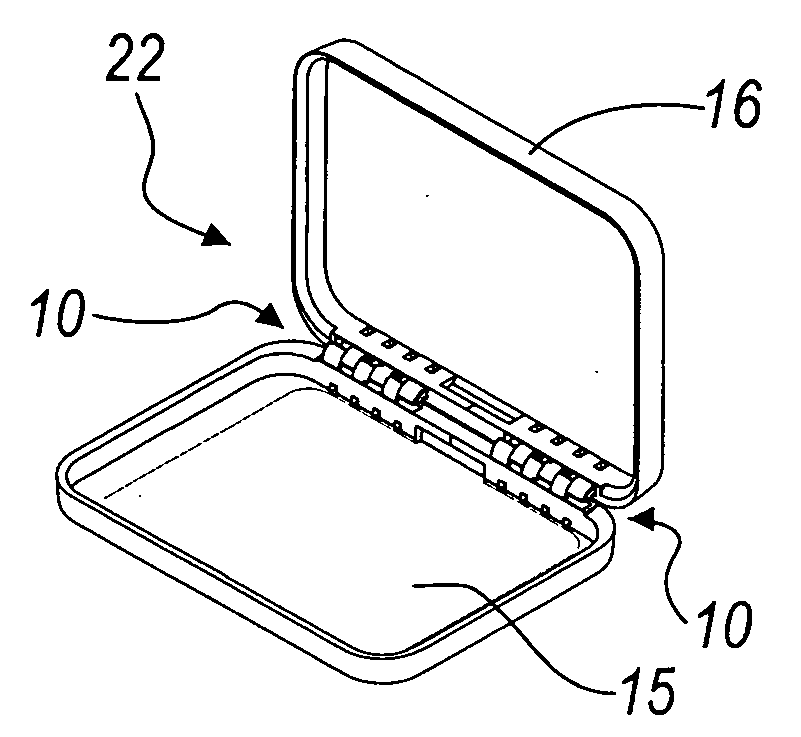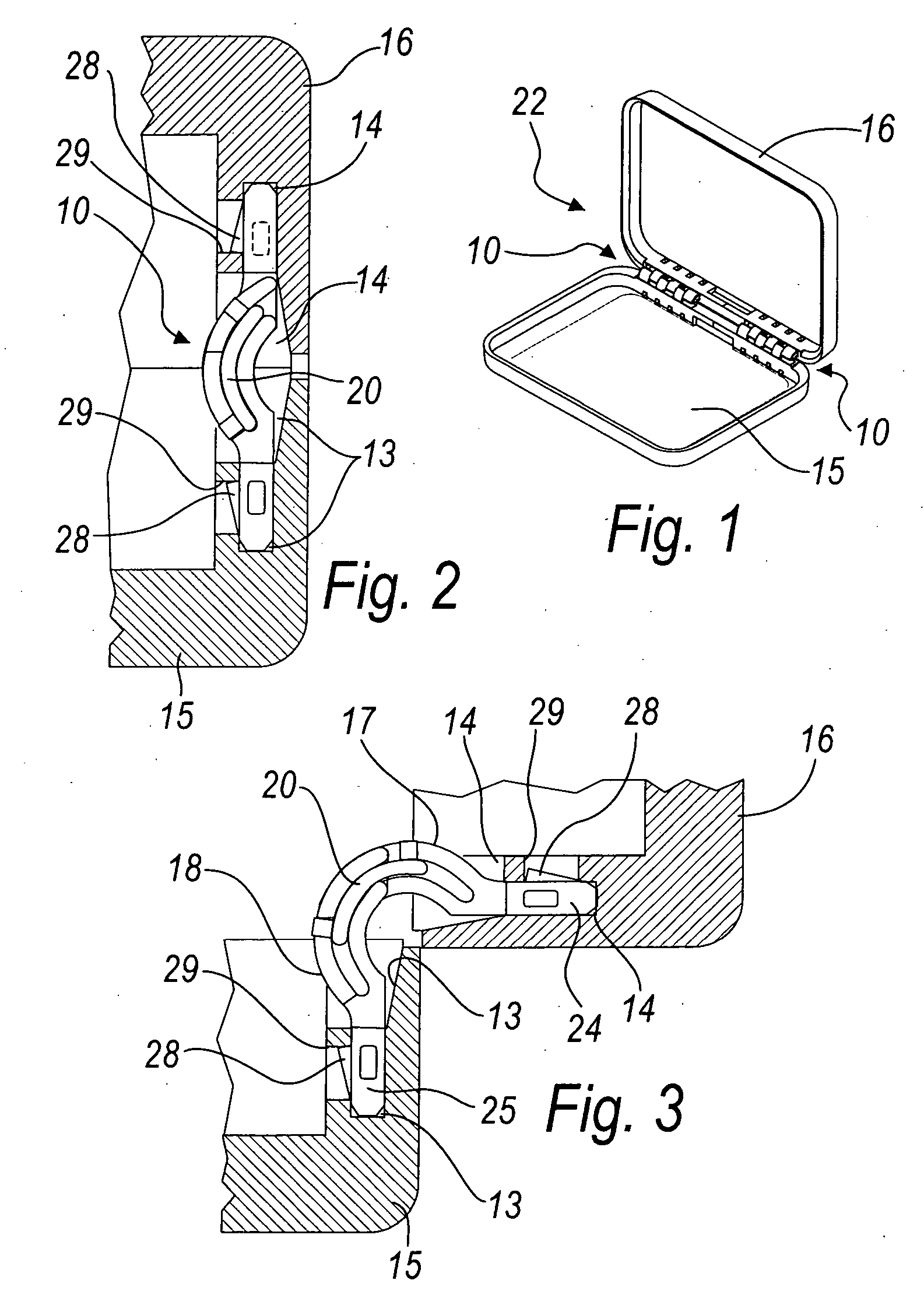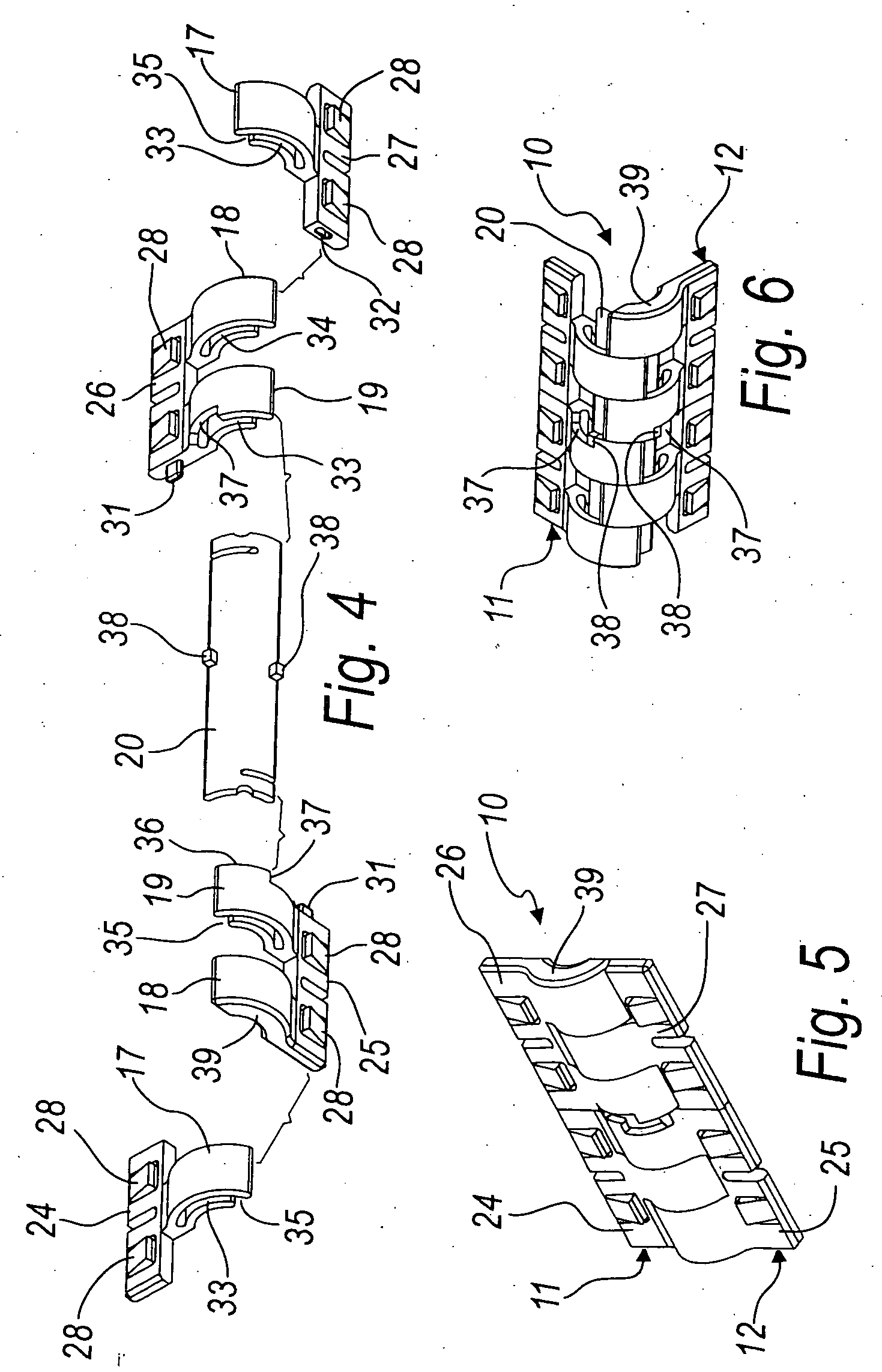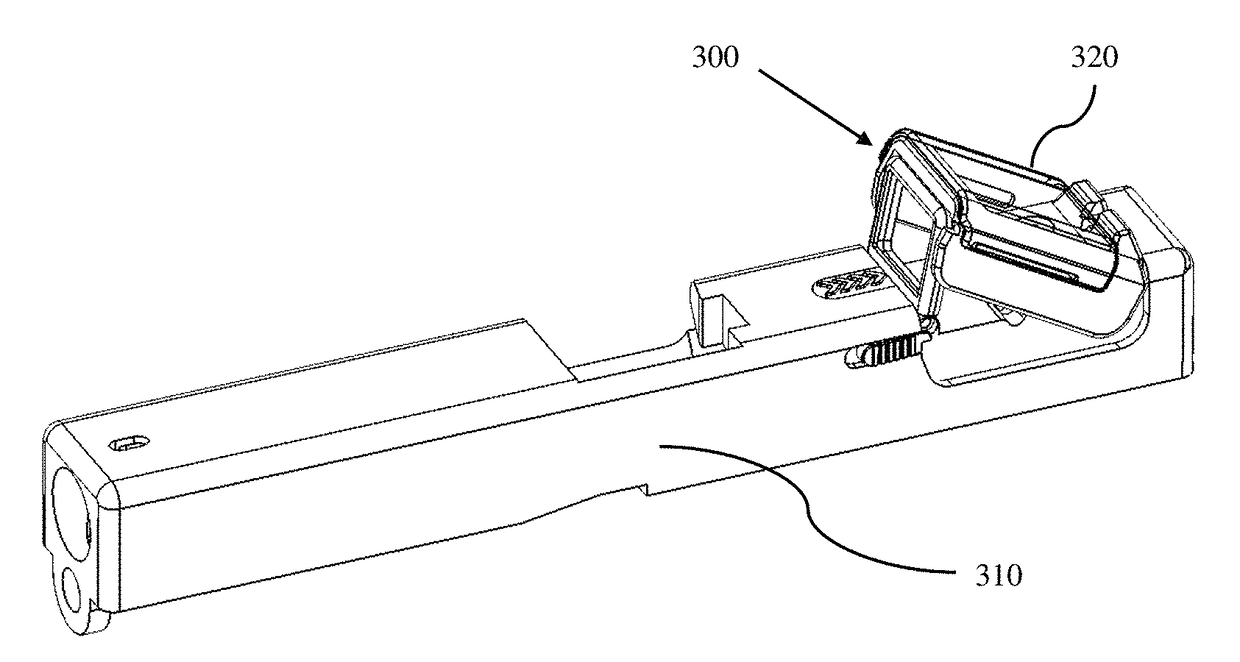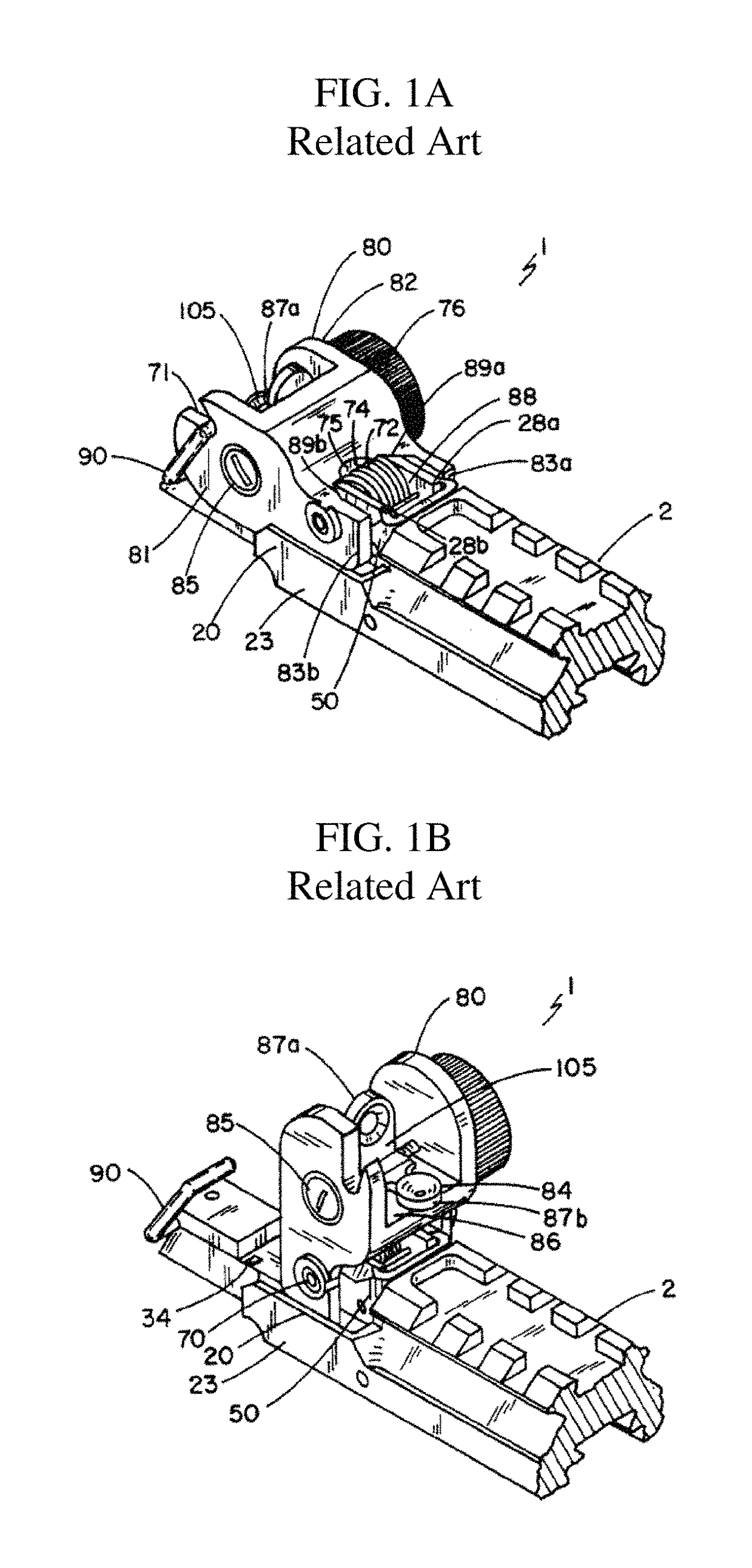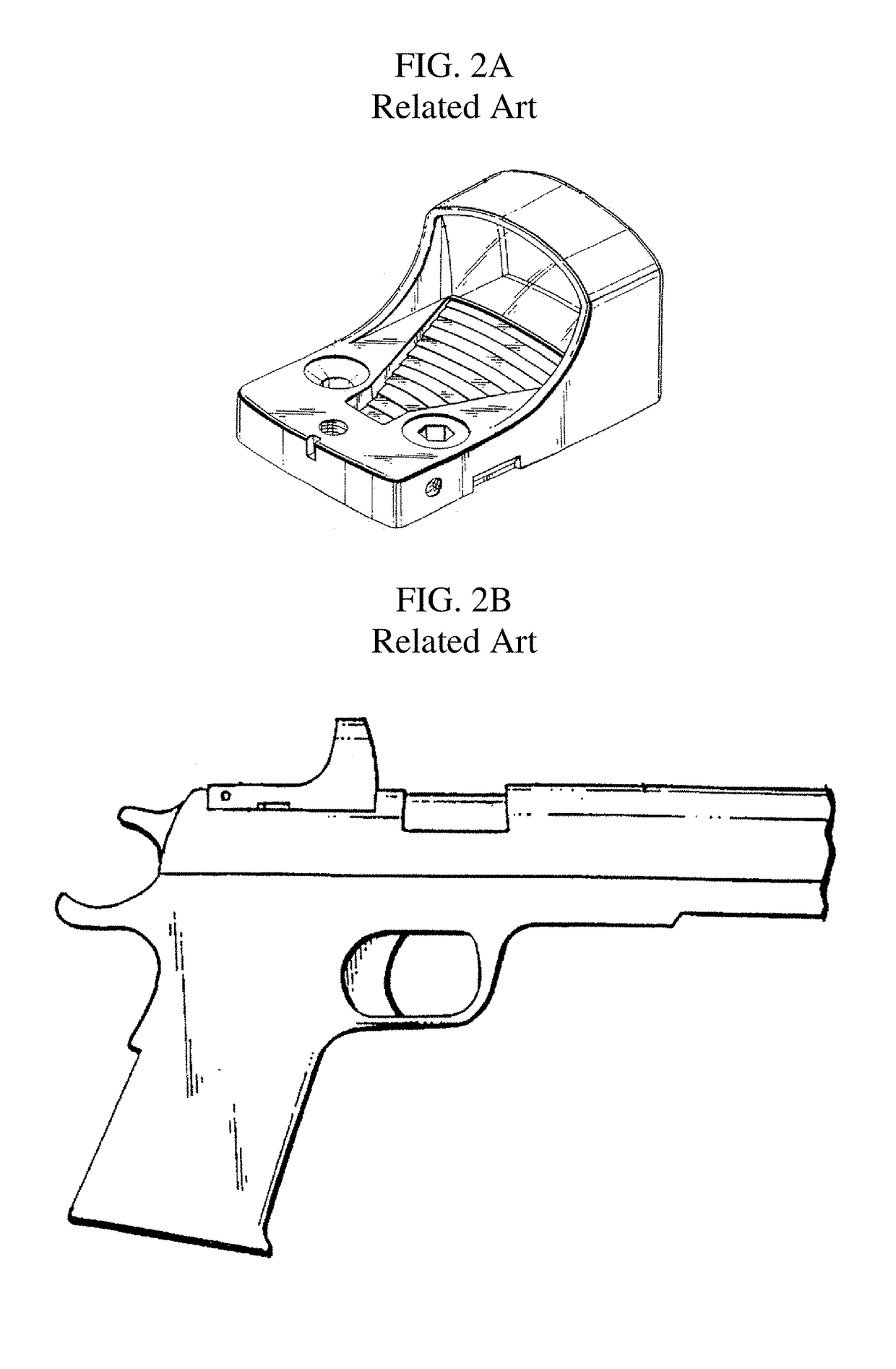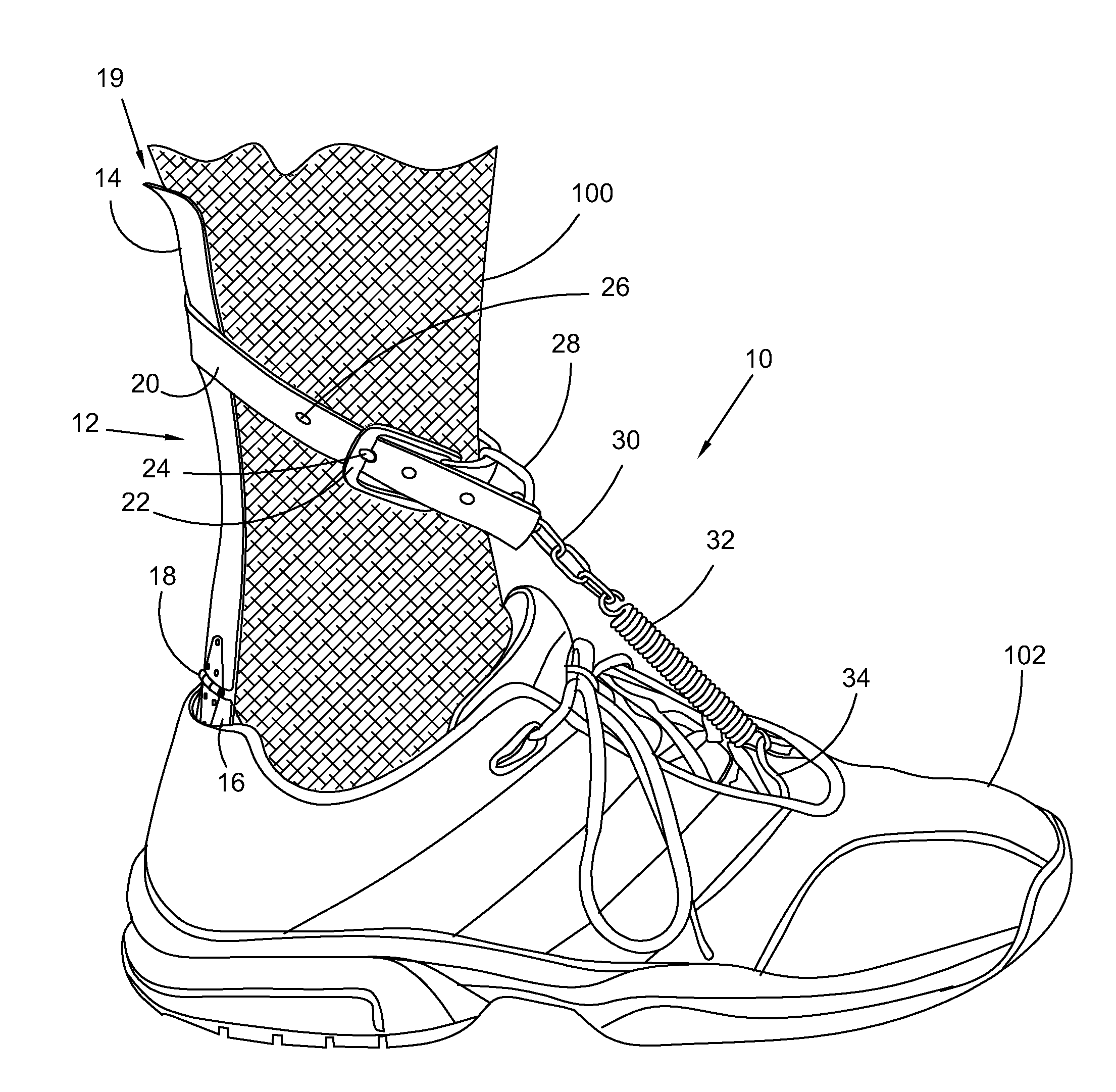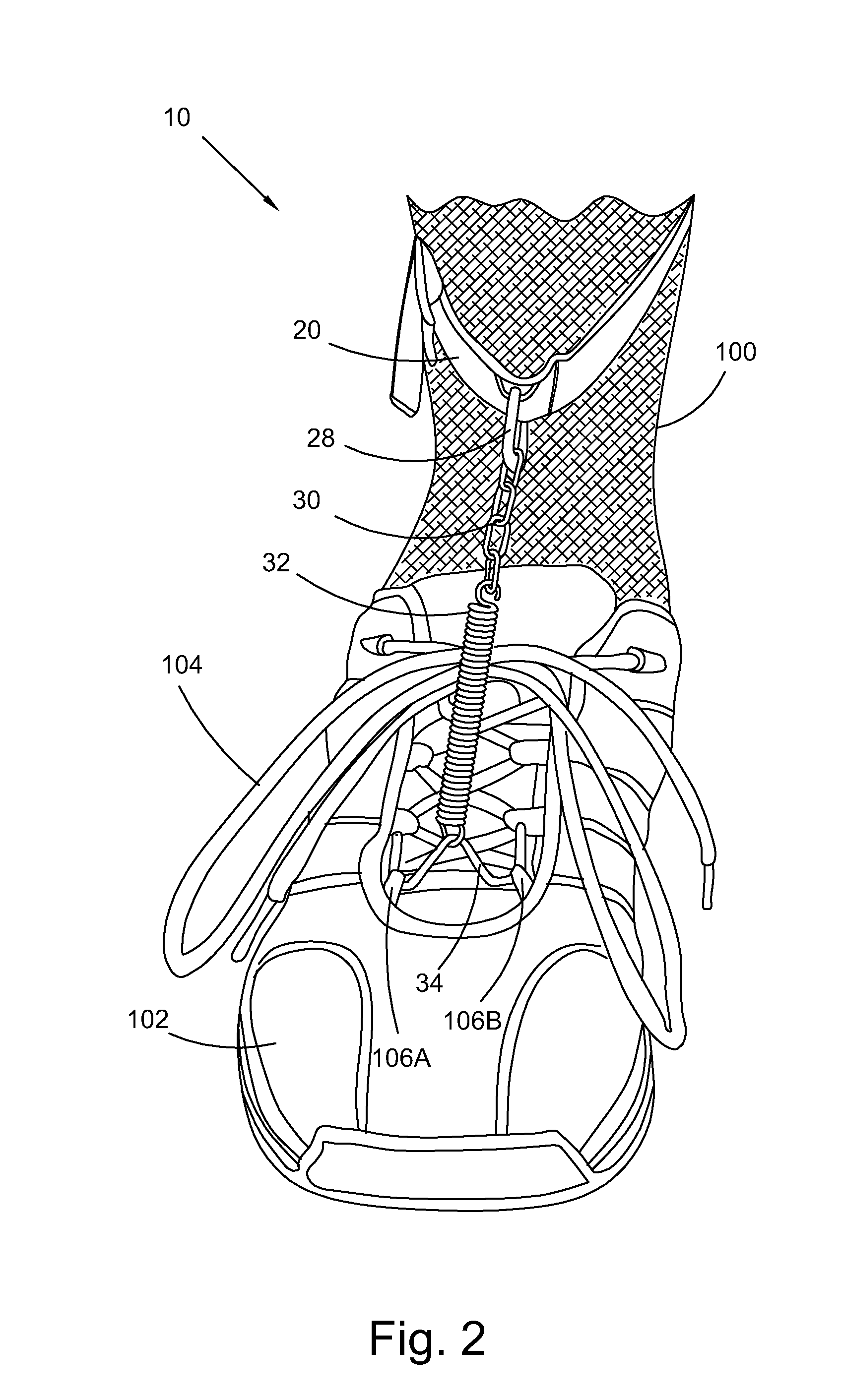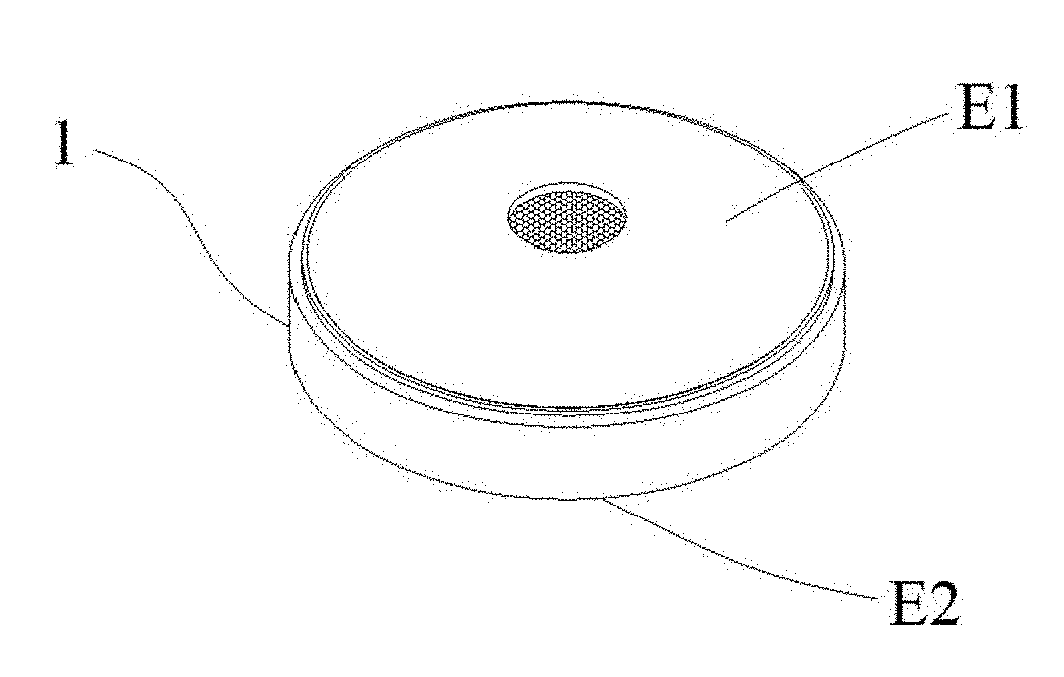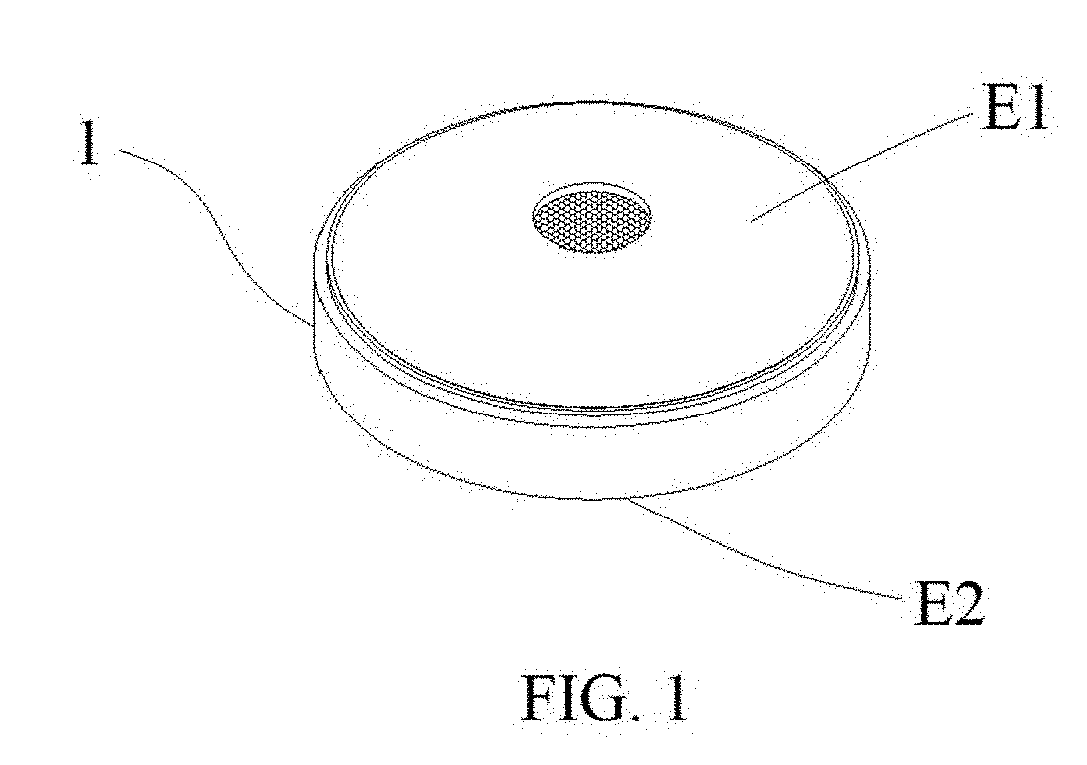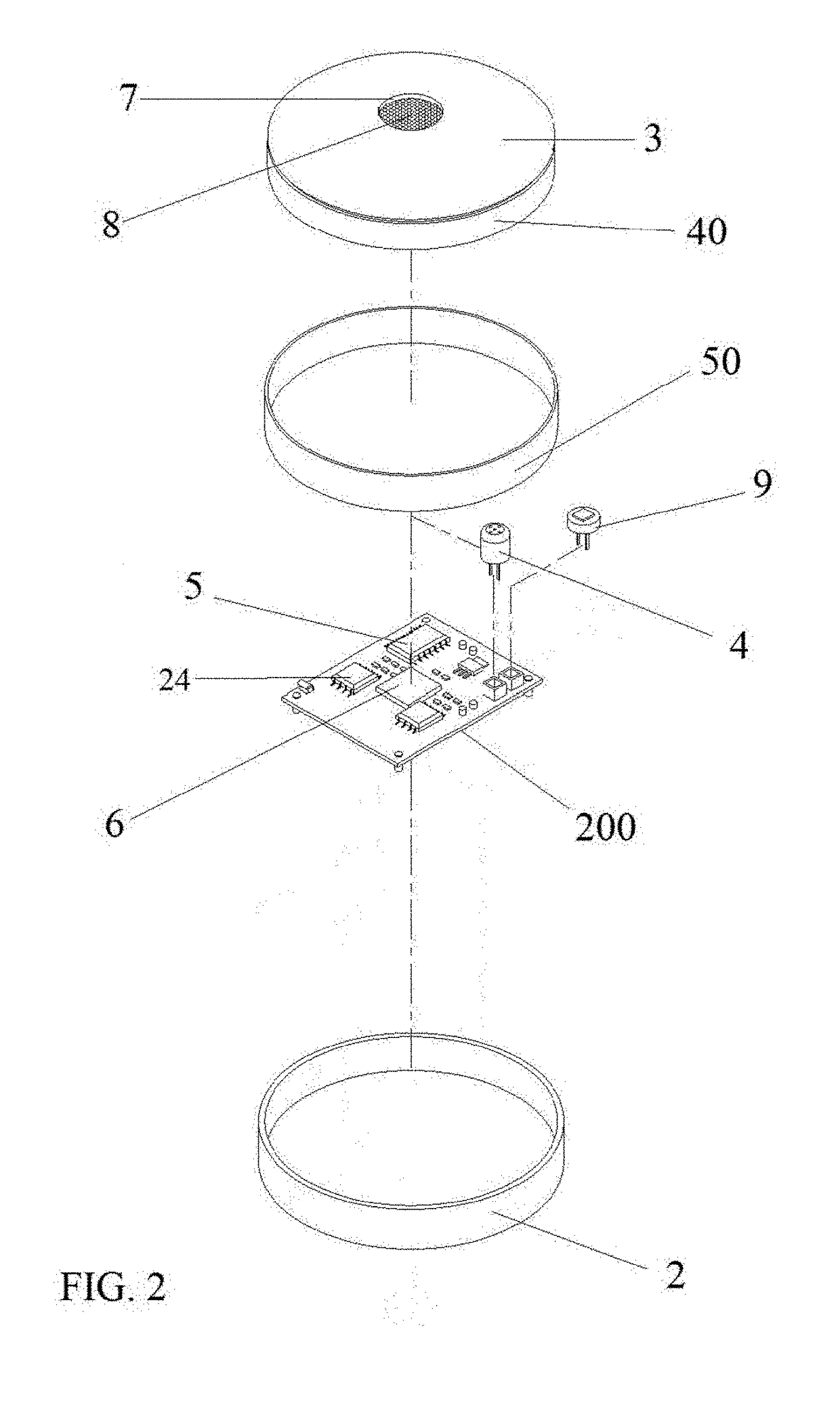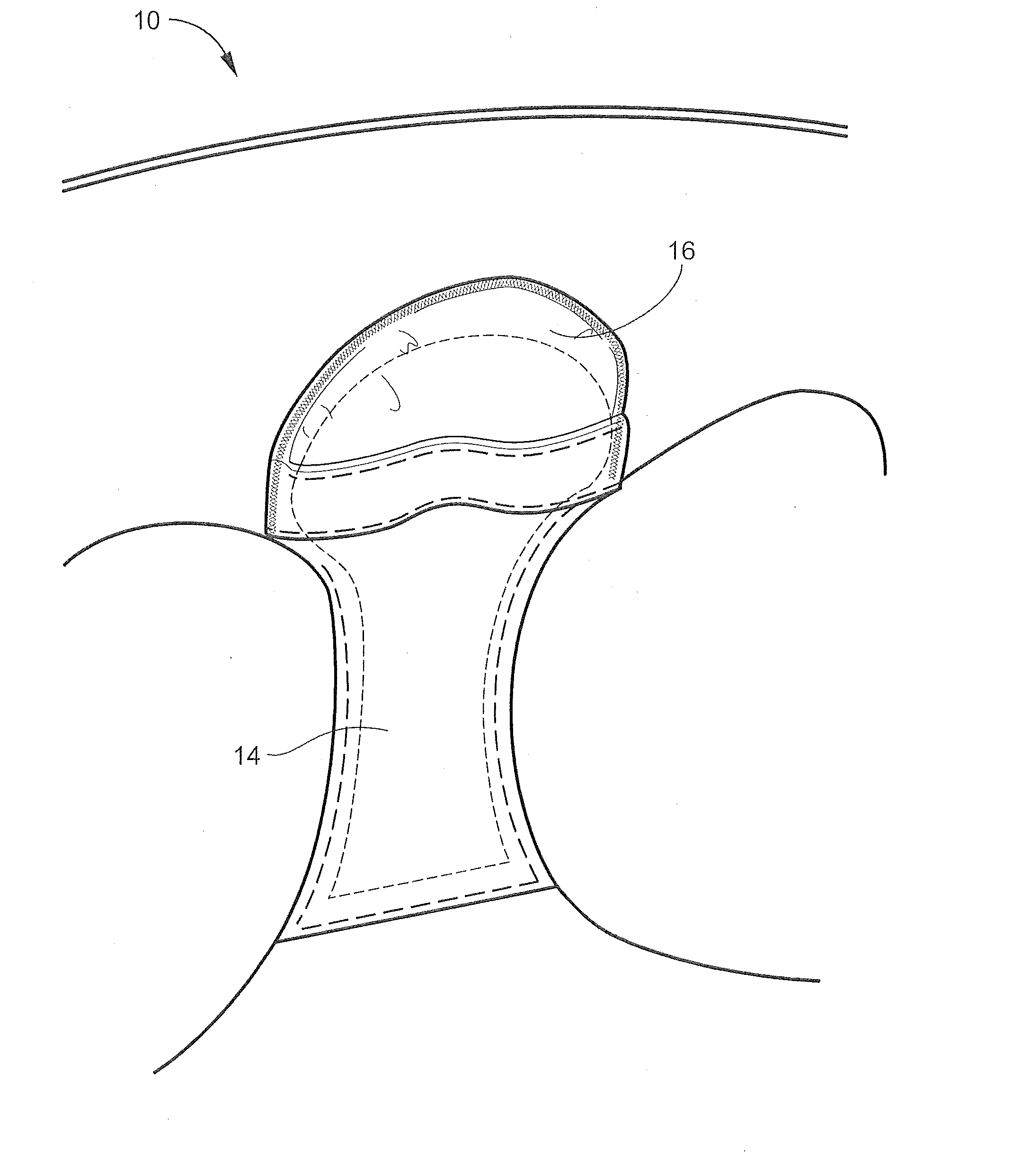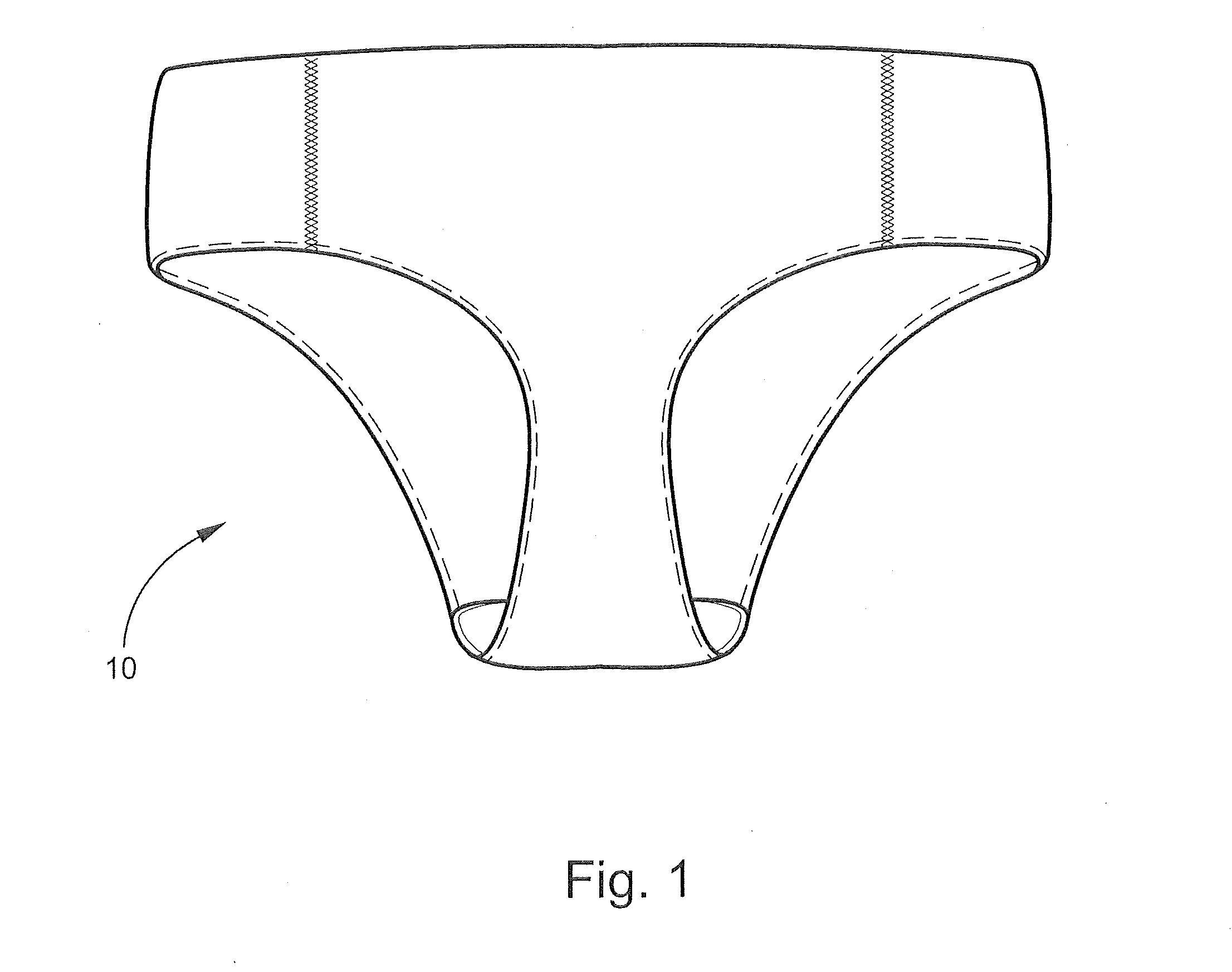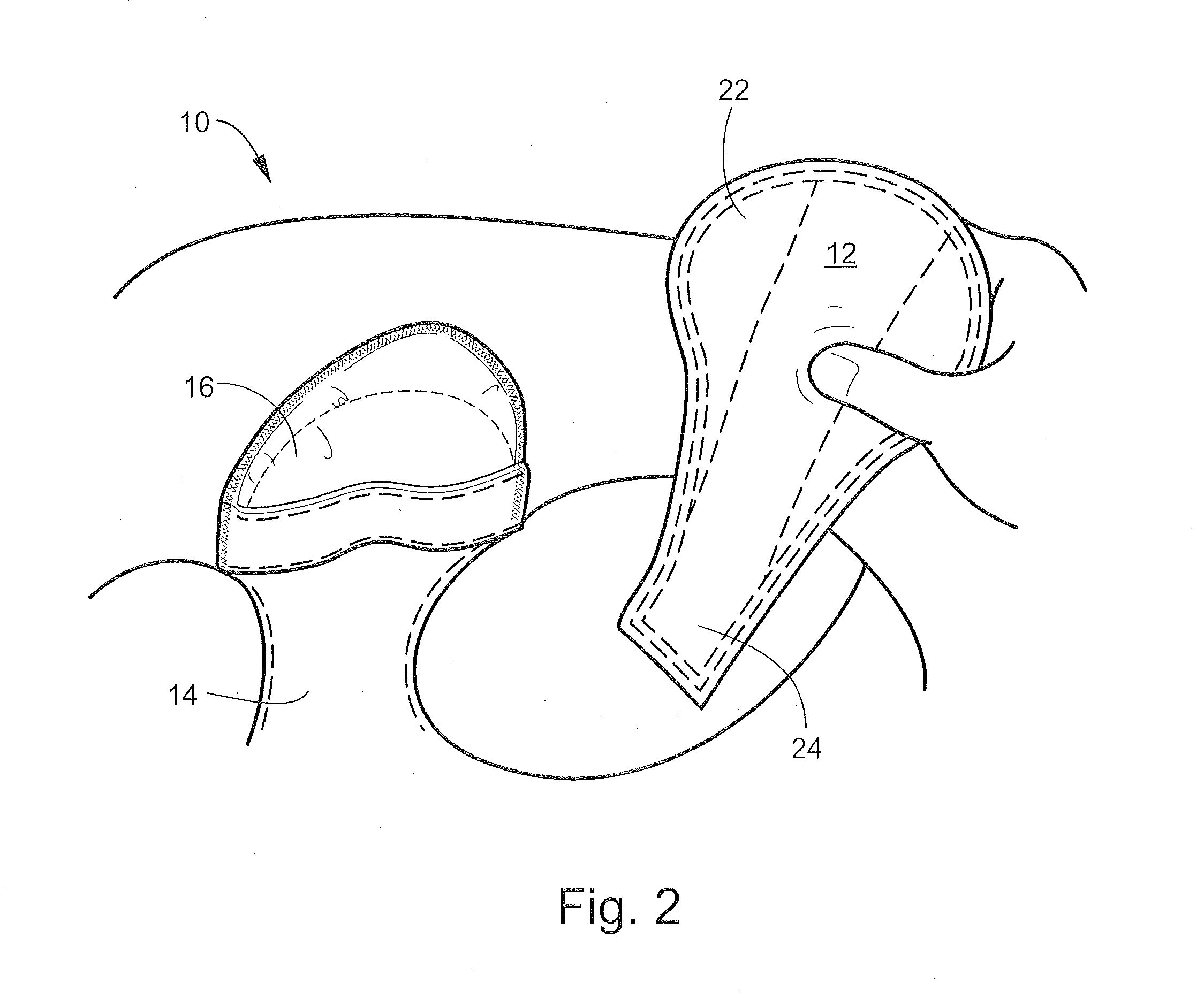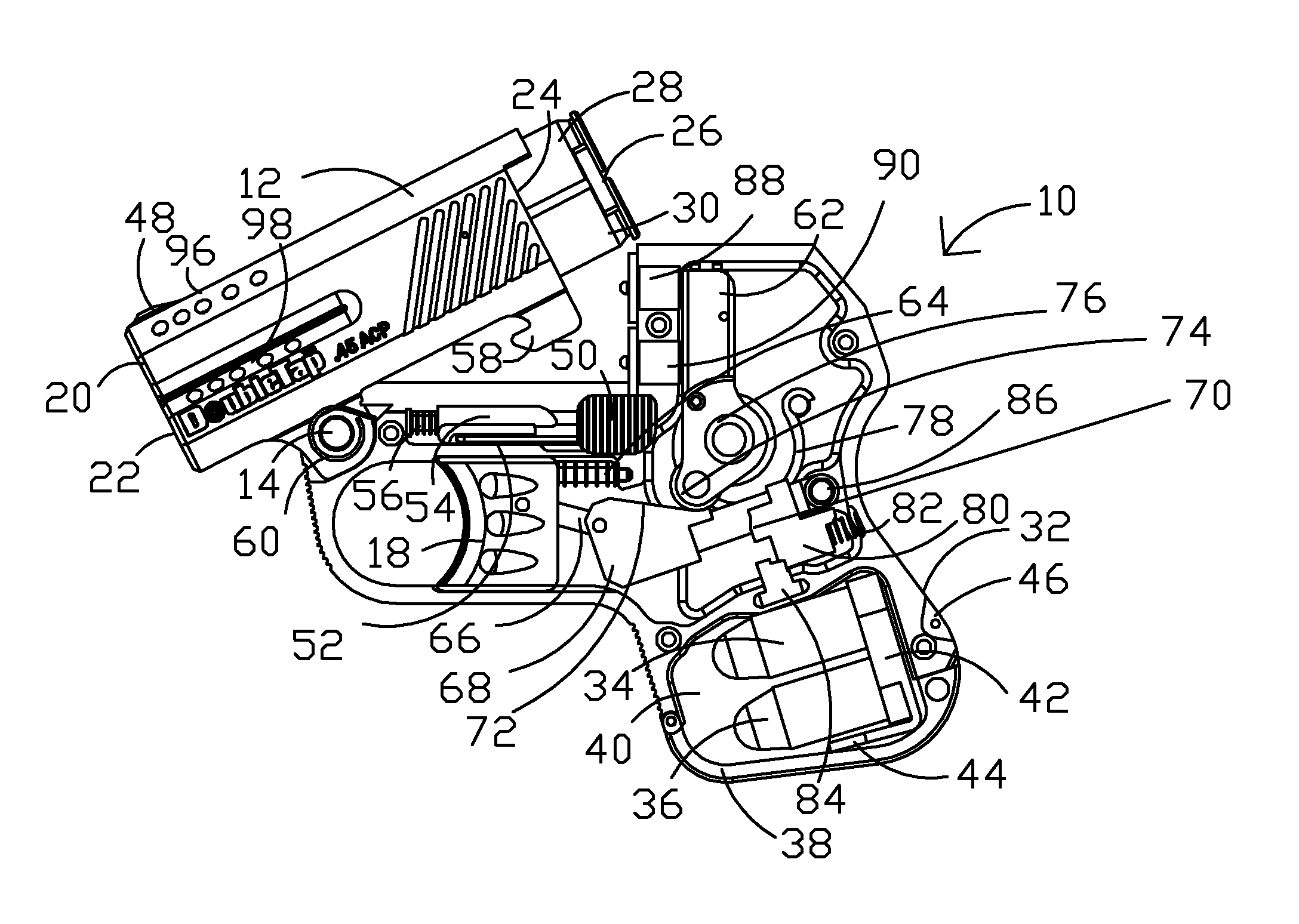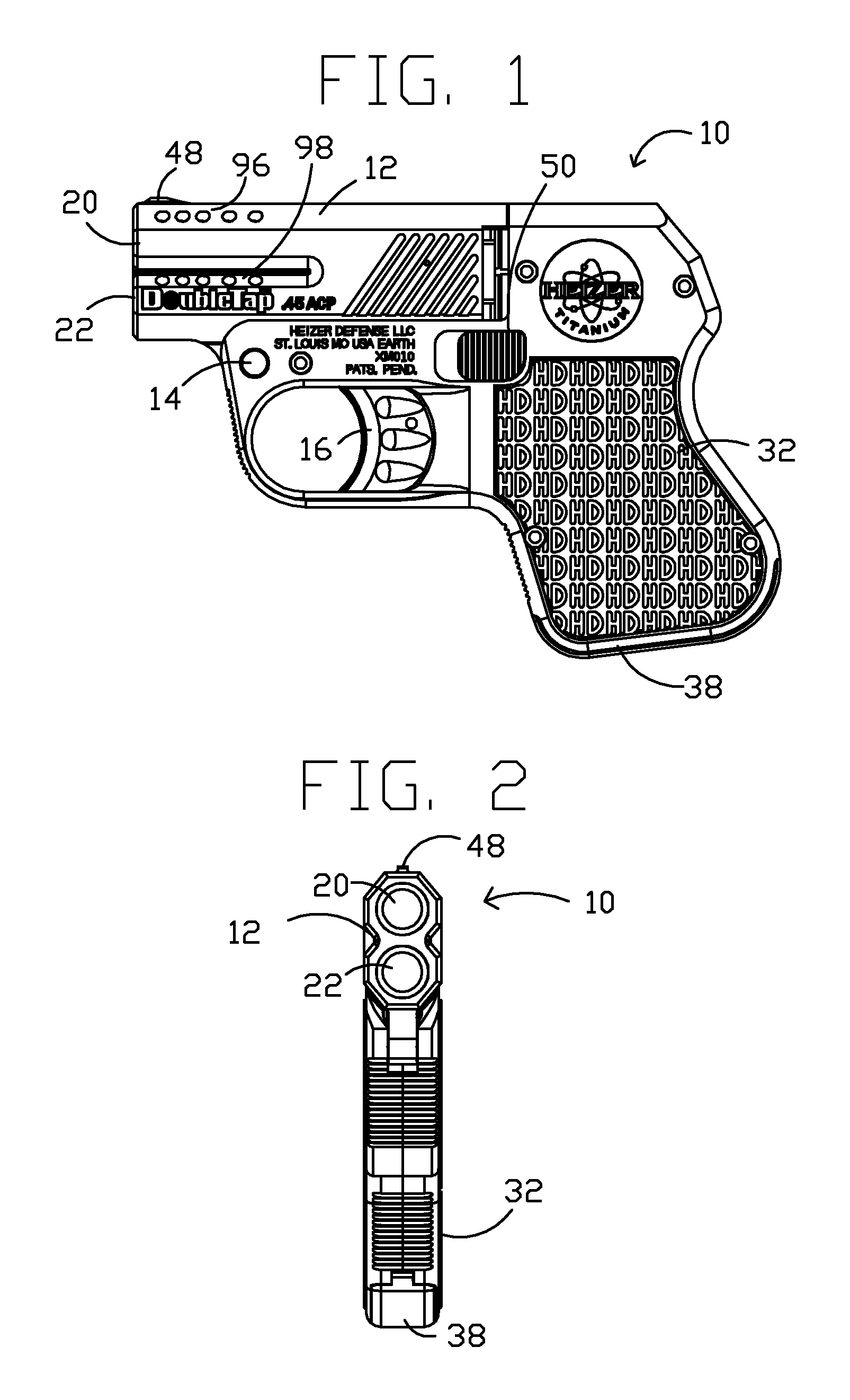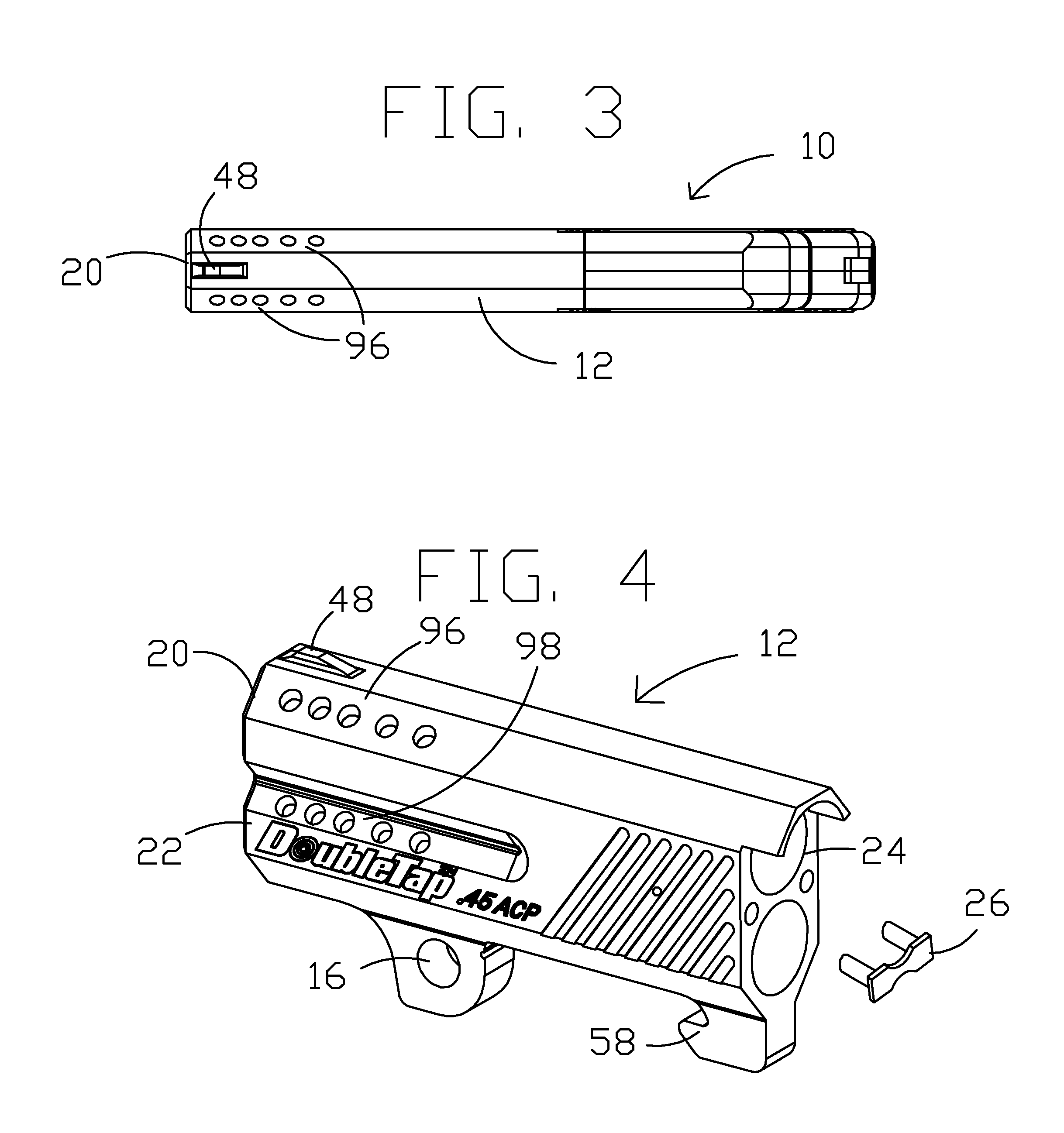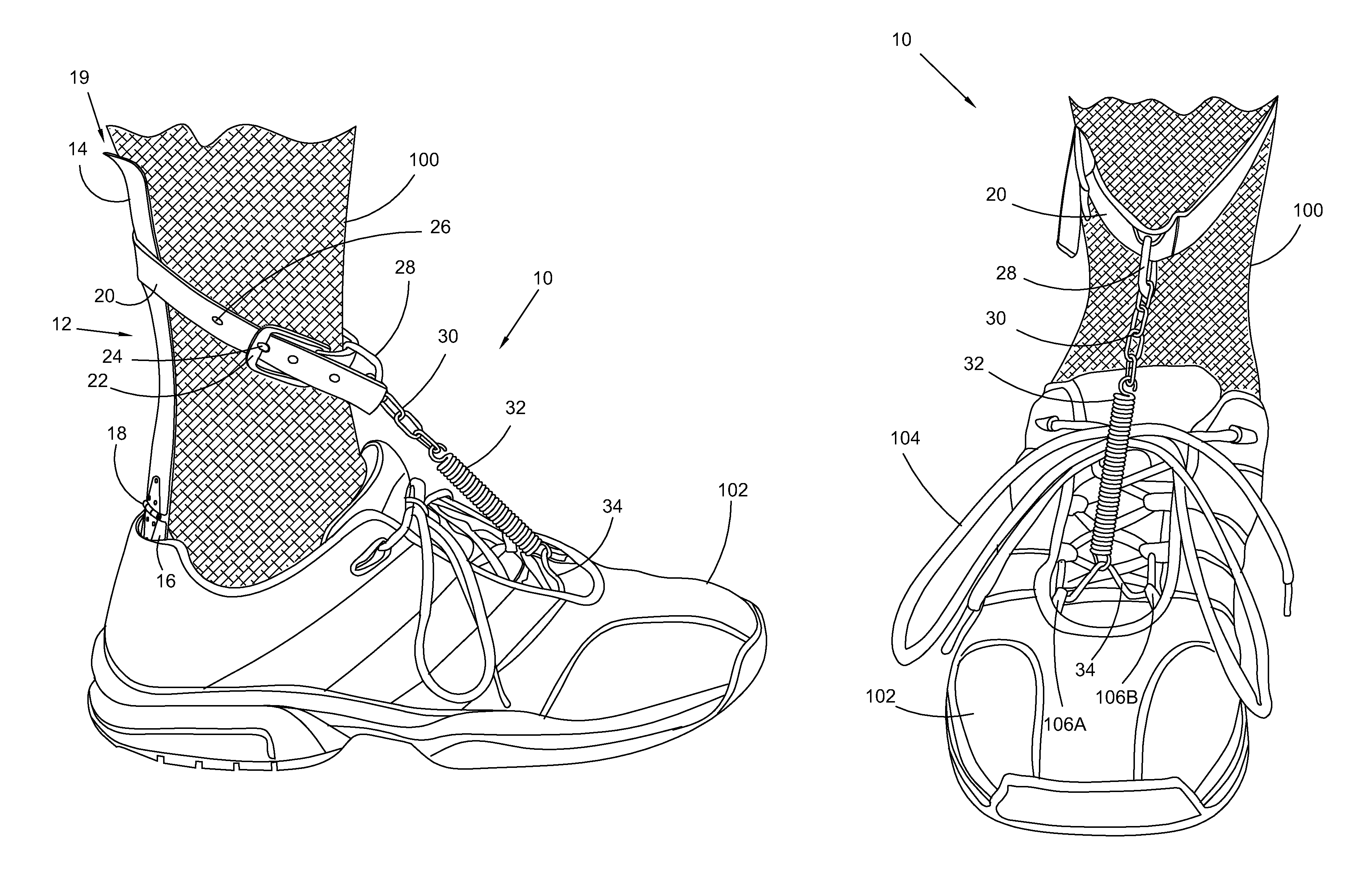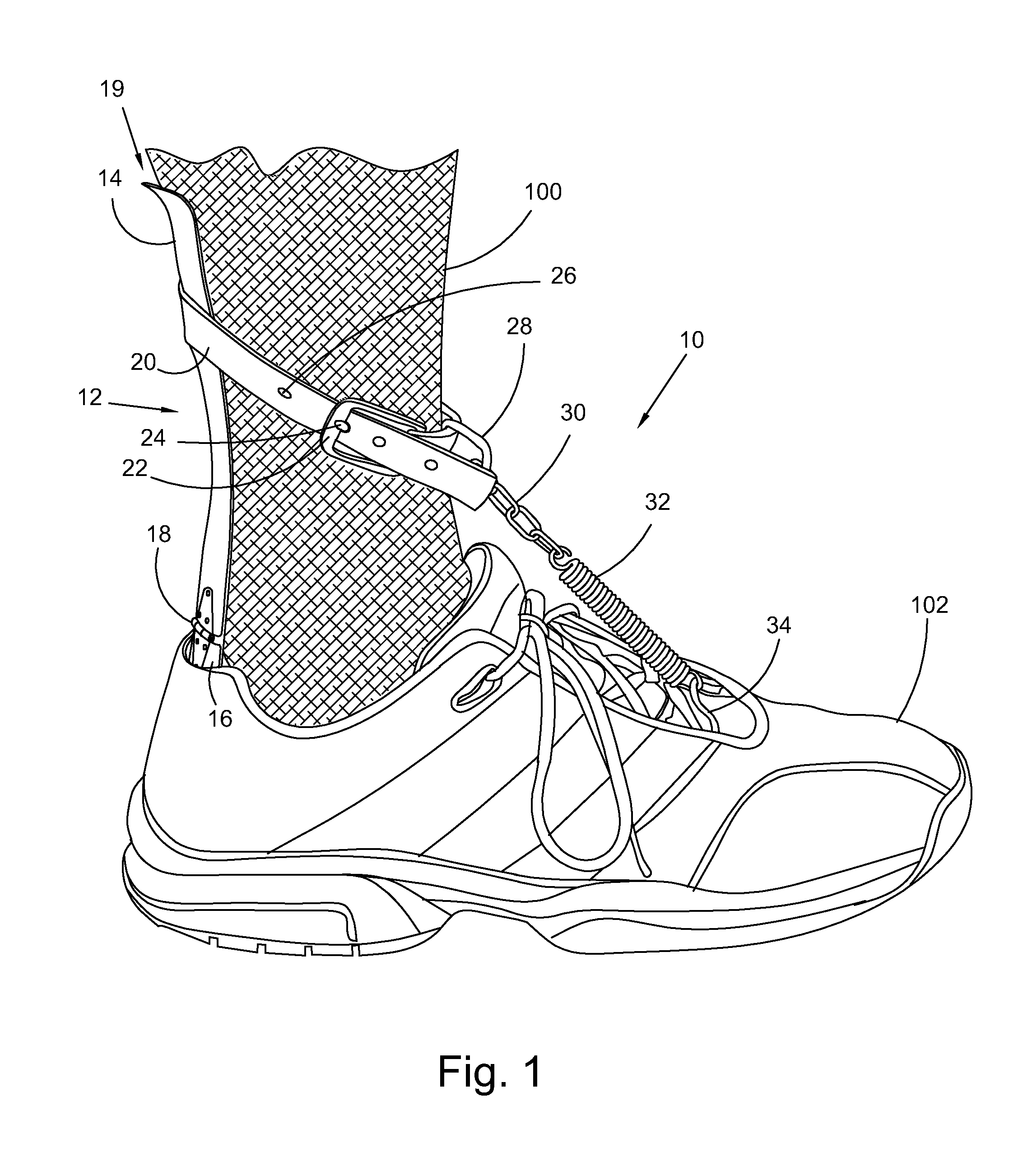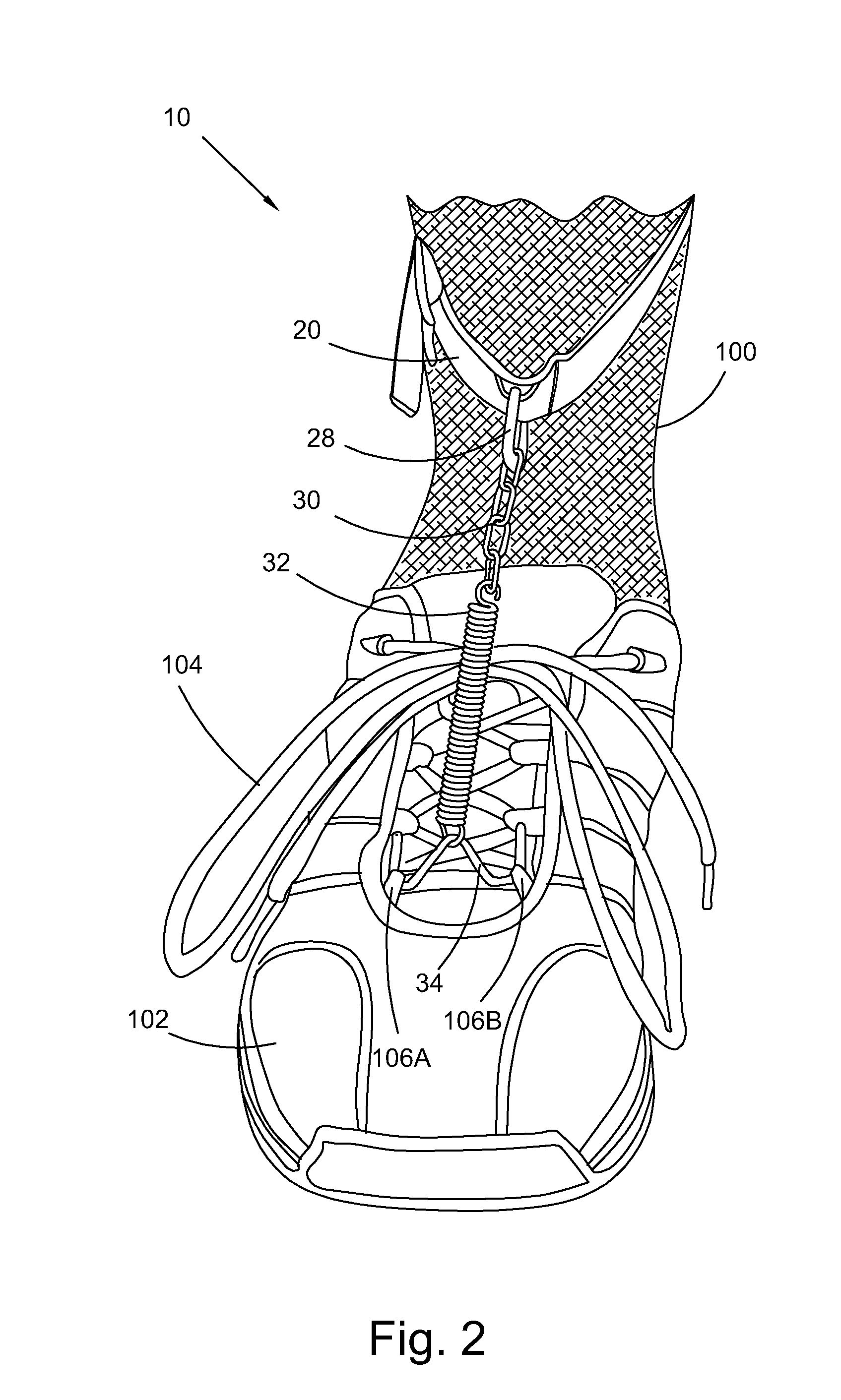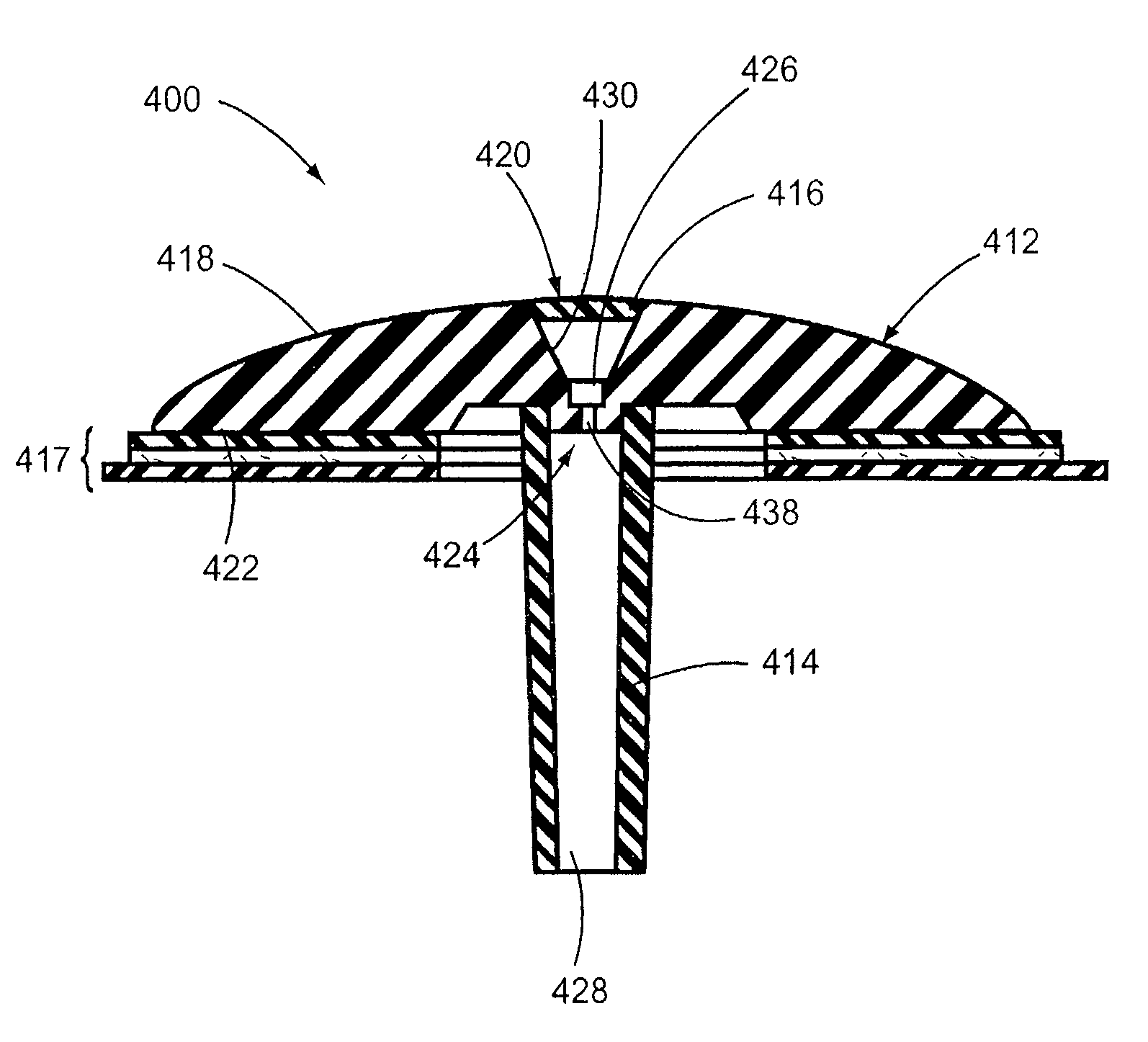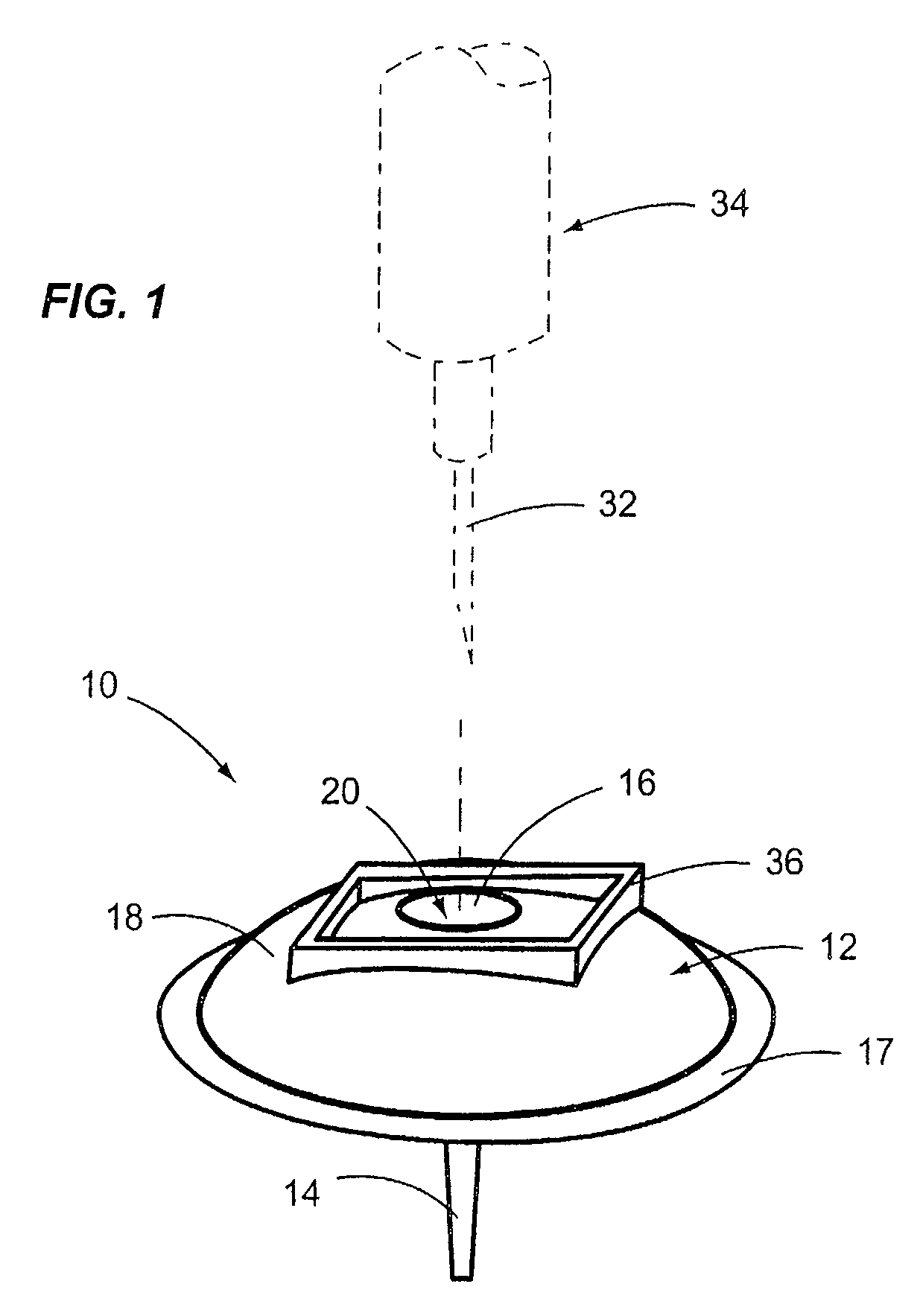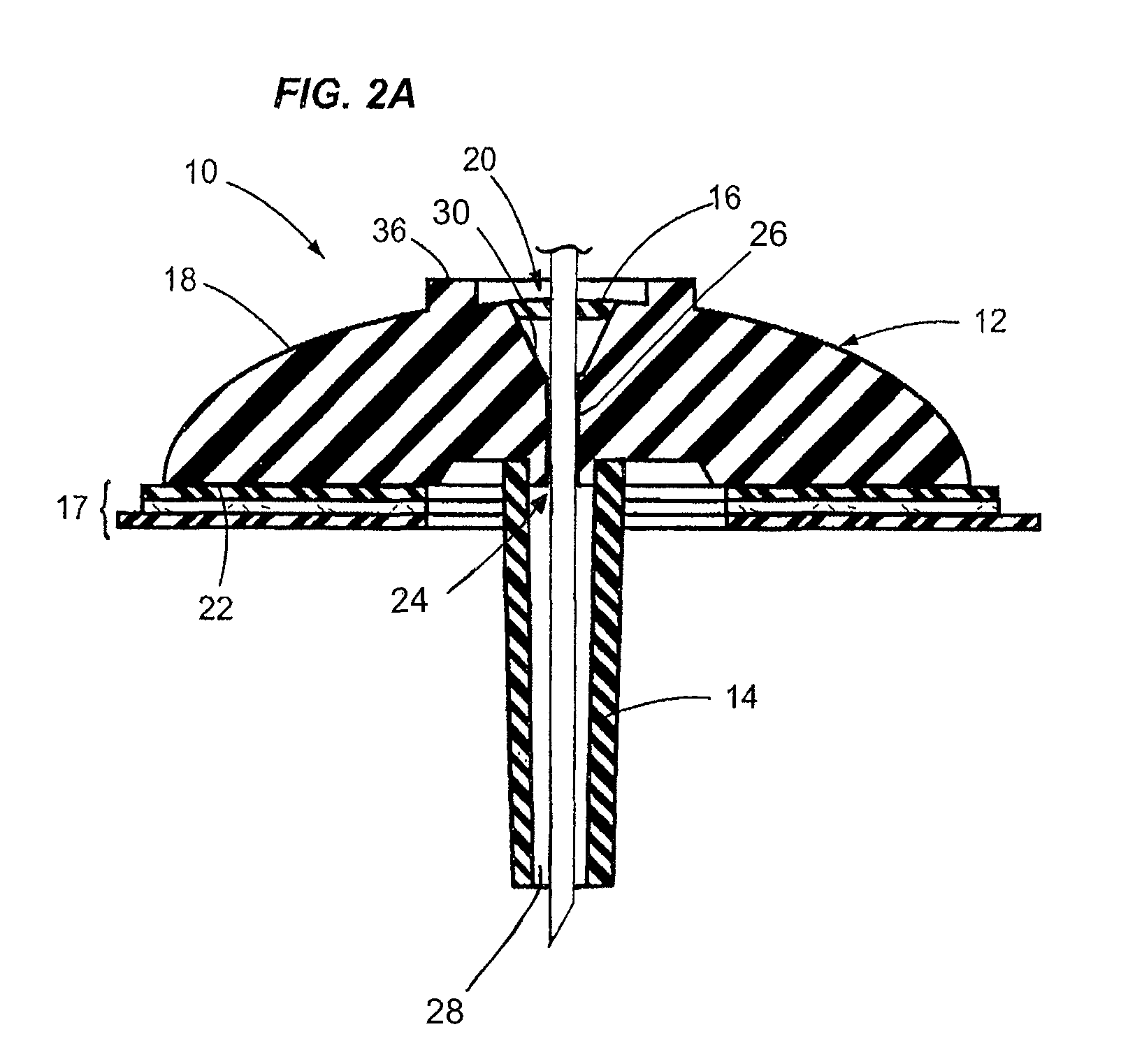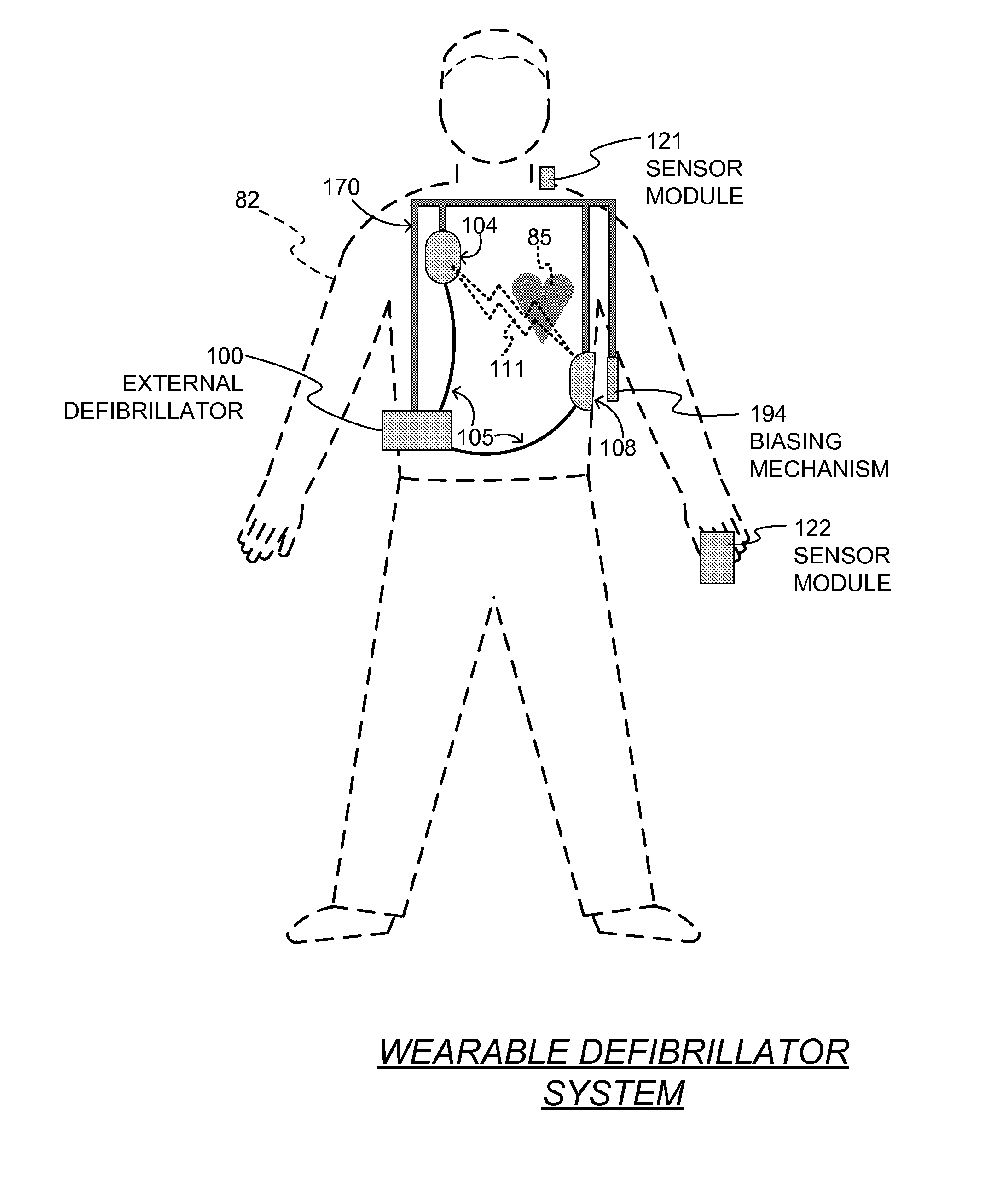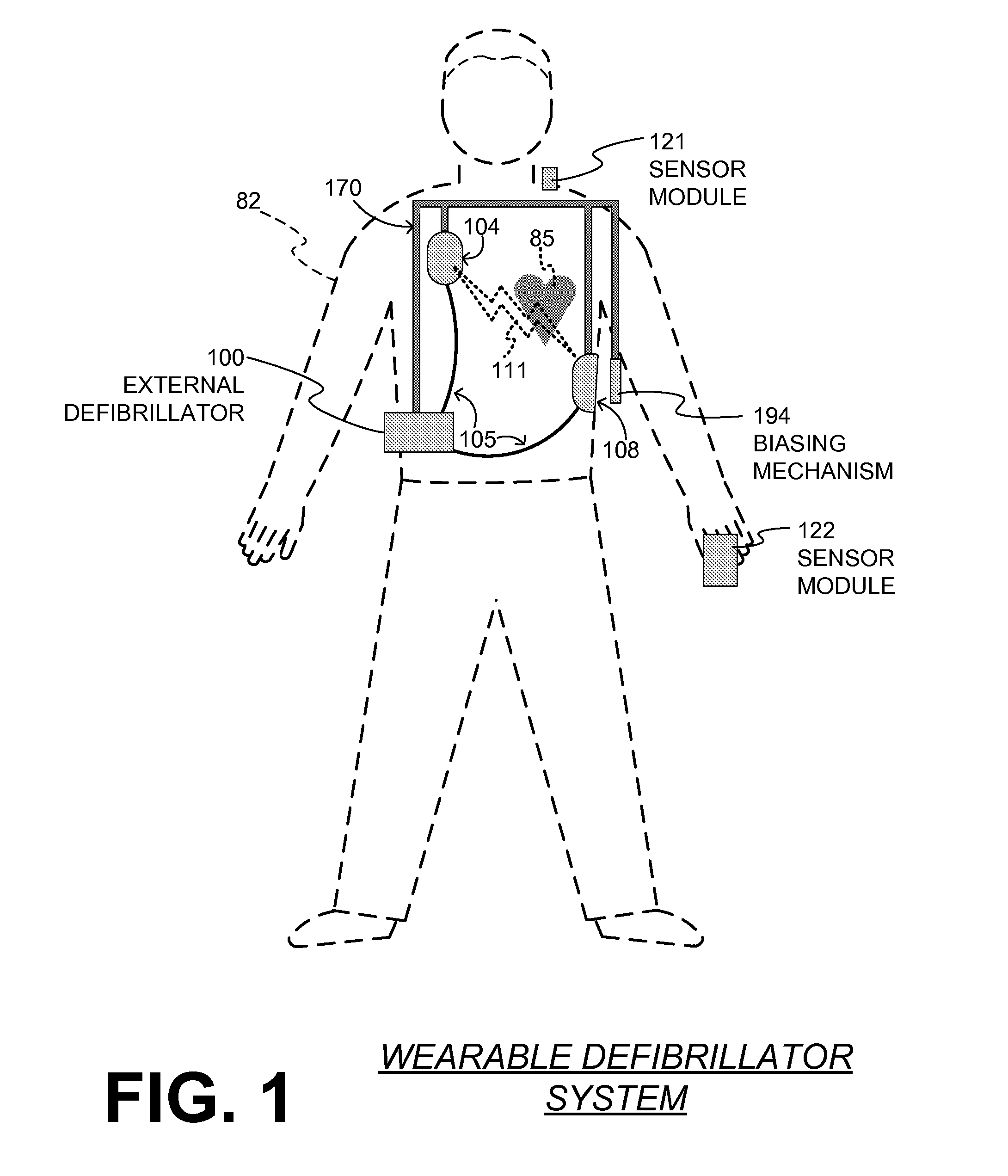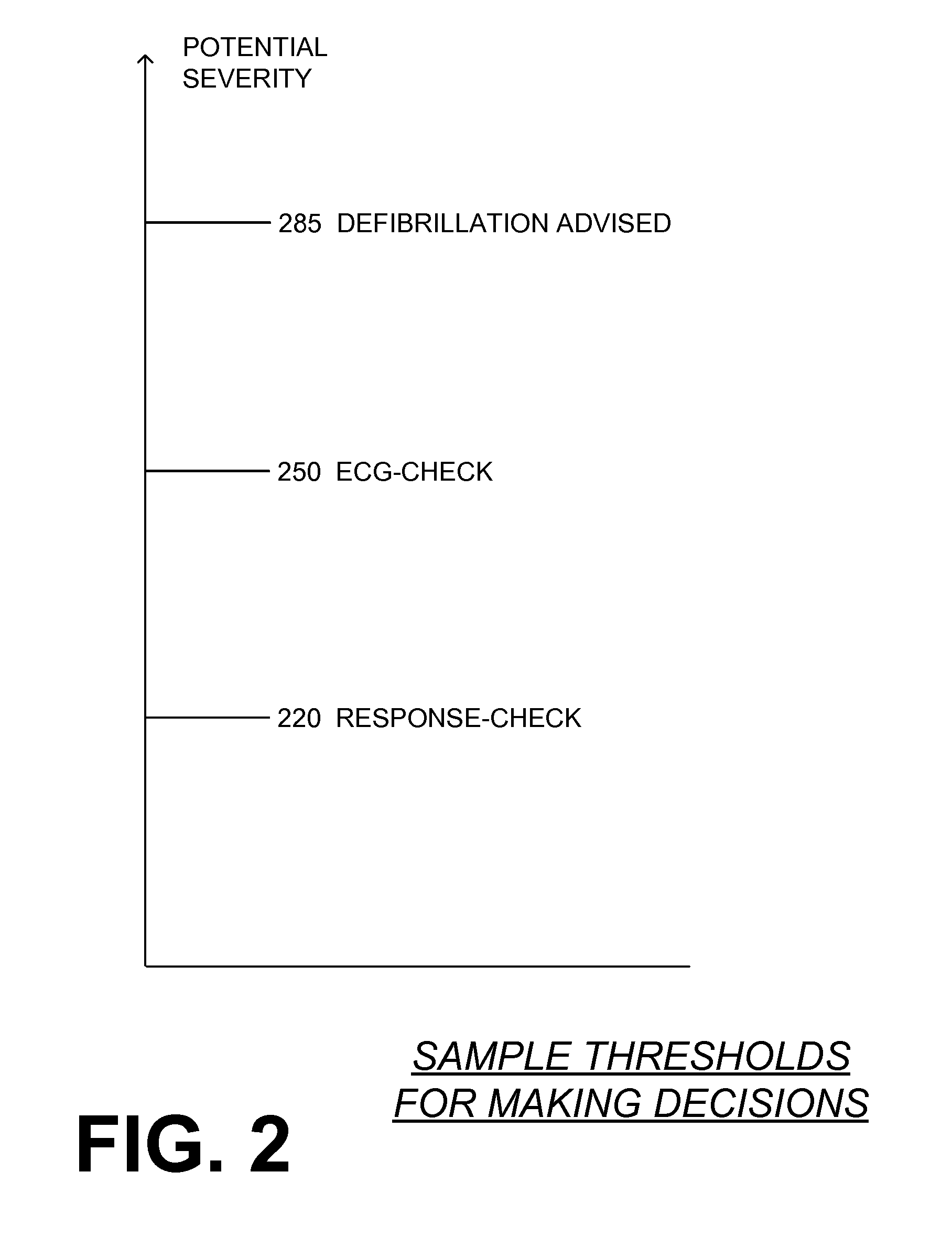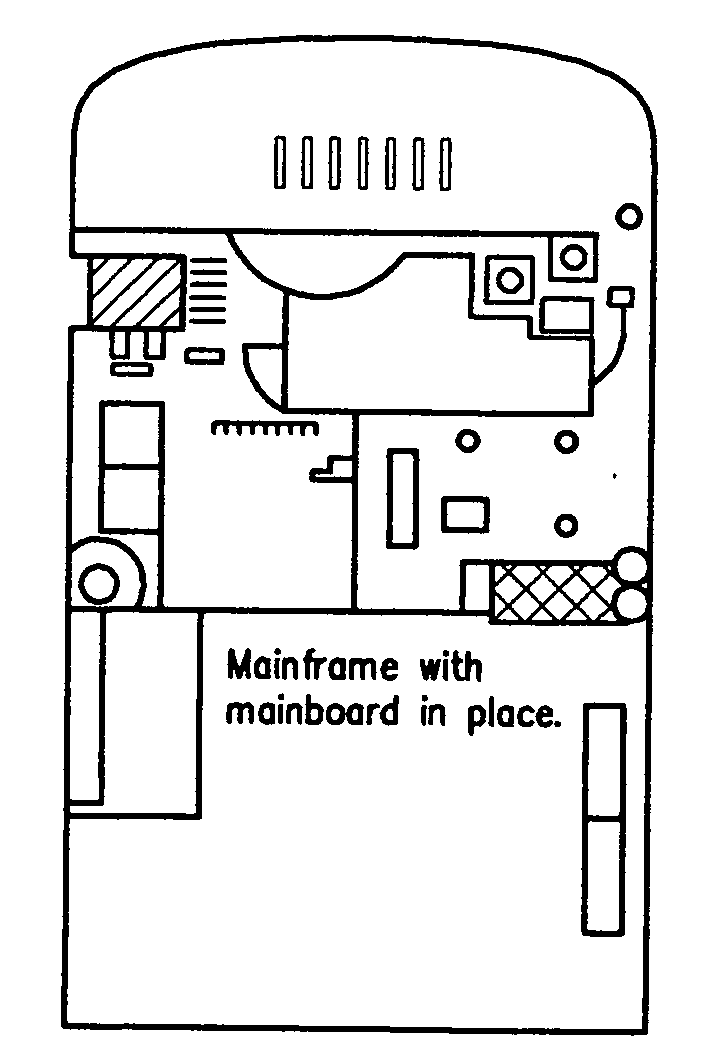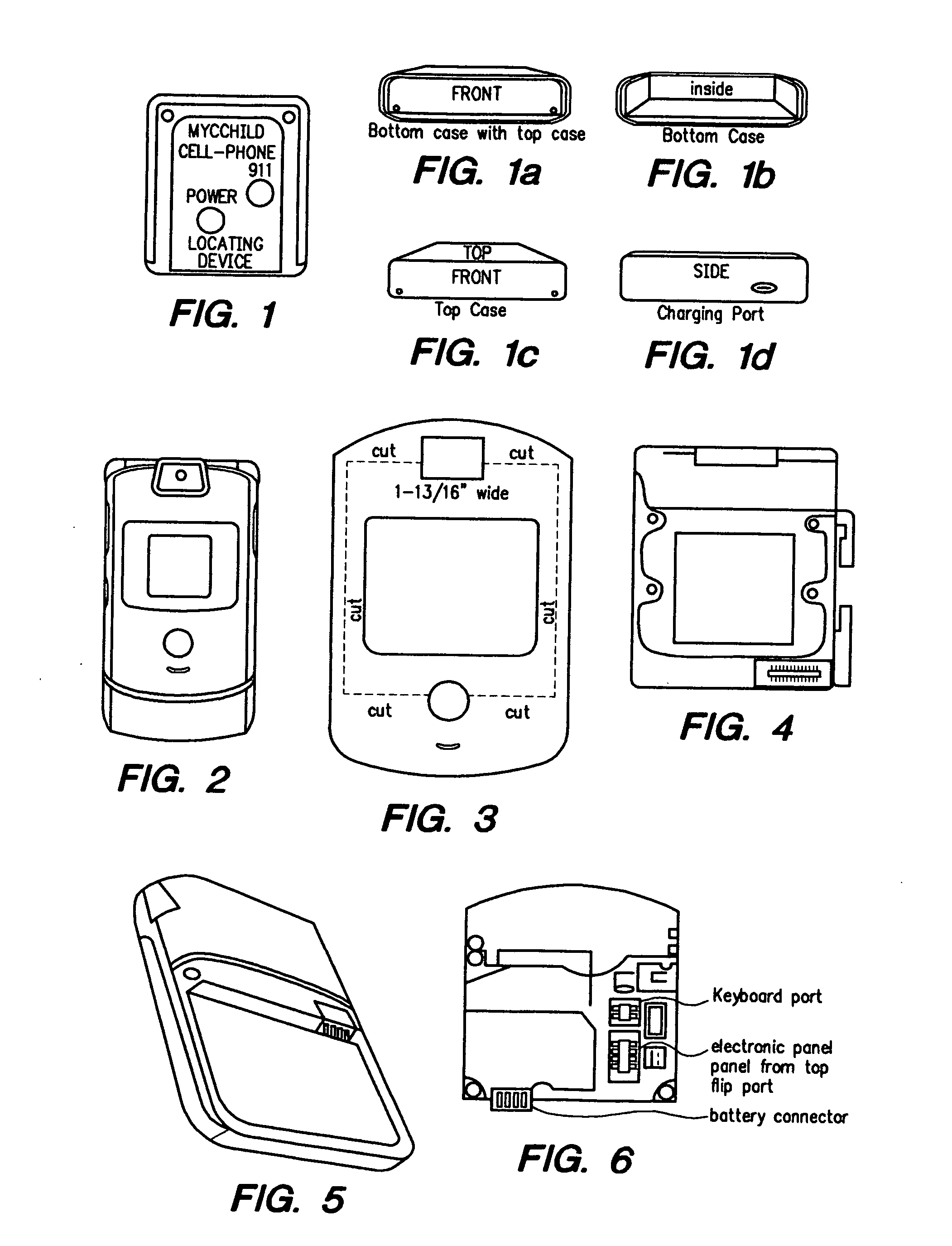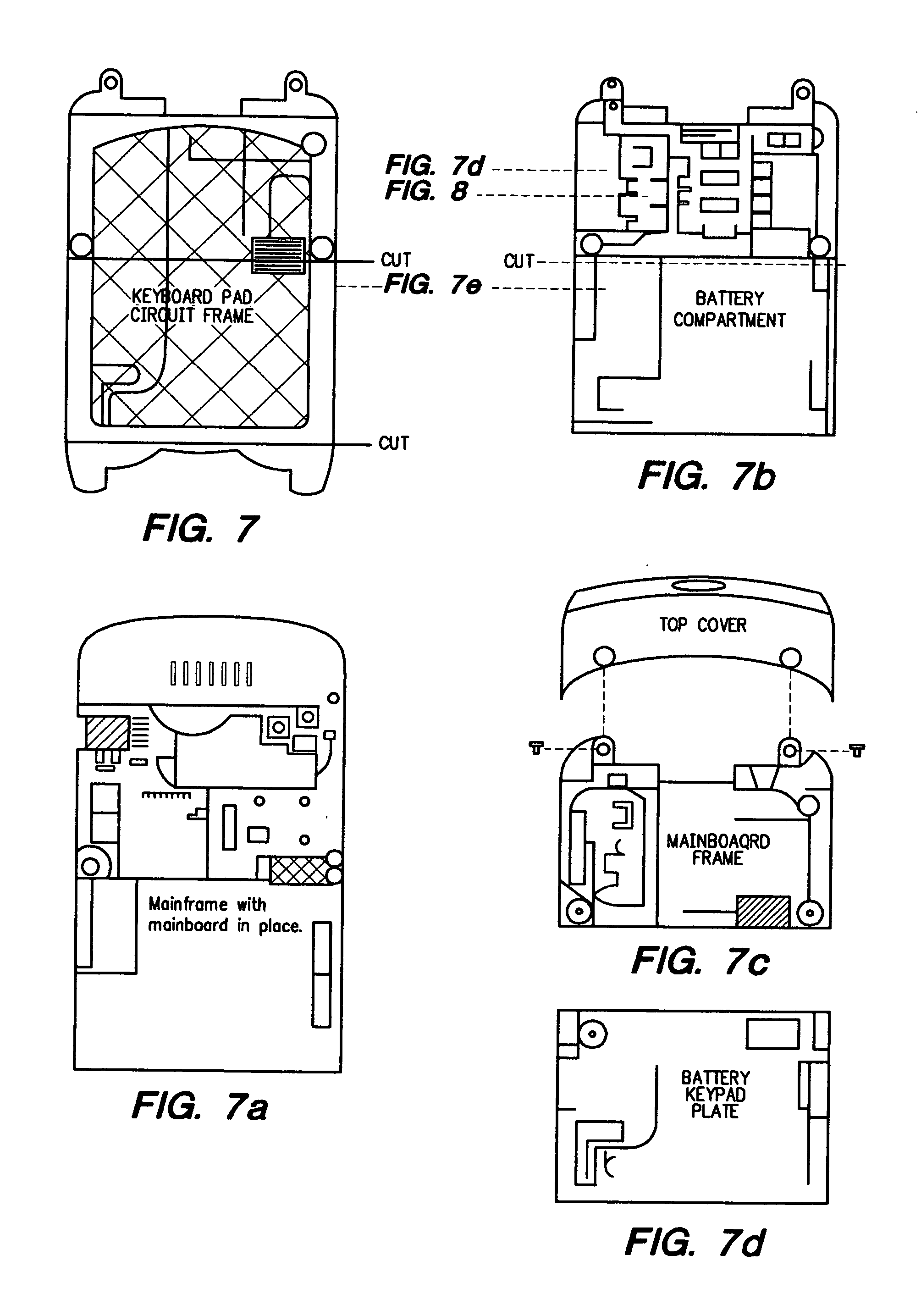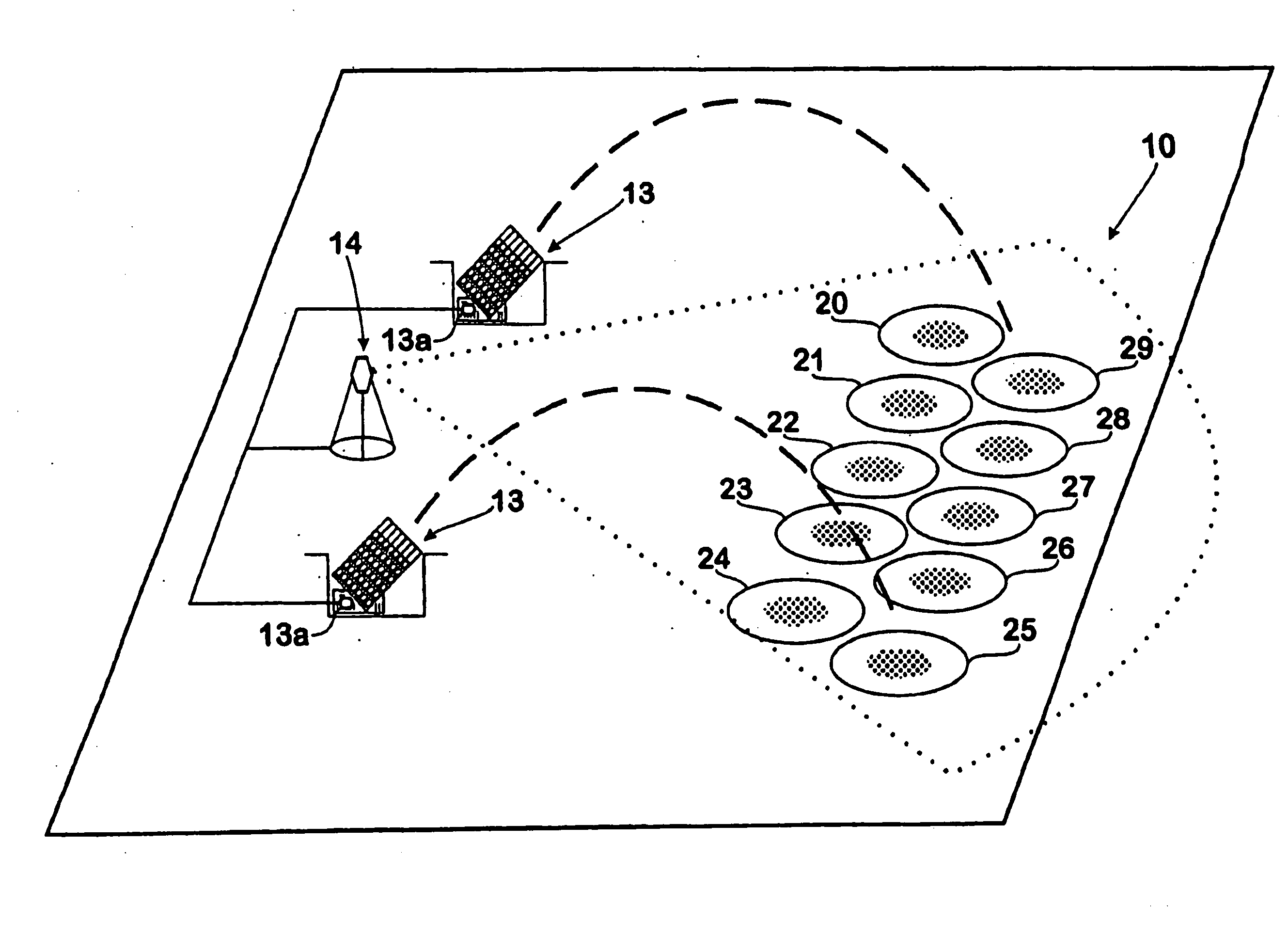Patents
Literature
Hiro is an intelligent assistant for R&D personnel, combined with Patent DNA, to facilitate innovative research.
57results about How to "Easily concealed" patented technology
Efficacy Topic
Property
Owner
Technical Advancement
Application Domain
Technology Topic
Technology Field Word
Patent Country/Region
Patent Type
Patent Status
Application Year
Inventor
Molded semi-universal holster
A receptacle for firearms that comprises a primary receiving cavity for a firearm that is considered to be semi-universal and has multifunctional capabilities. This primary receptacle allows the user to adjust the receiving cavity to fit a plethora of sizes, styles, and calibers within a certain model line. This is accomplished by a series of dual adjustment springs and molded stops that function together to customize tension and squeeze within the receptacle. The compact and ergonomic design allows the receptacle to be easily interchangeable among a variety of carriage or mounting apparatuses.
Owner:OWENS WILLIAM REX
Method and system for controlling an electronic device
InactiveUS7050907B1Reduce power consumptionEasily concealedInstruments for road network navigationRoad vehicles traffic controlControl theoryElectronic equipment
The present invention is a method and system for controlling an electronic device. In one embodiment, a controller is coupled with a position determining component, and a motion detecting component. In one embodiment, the motion detecting component detects motion of the electronic device and generates a signal to the controller indicating the motion. The controller, in response to the signal, causes the position determining component to determine the geographic location of the electronic device. The geographic location is compared with a pre-defined zone and, in response to the comparing, a command is generated for controlling the electronic device.
Owner:TRIMBLE NAVIGATION LTD
LED light bar assembly
InactiveUS7296912B2Increase intensityLight intensityShow cabinetsPoint-like light sourceEngineeringLED lamp
An LED (light emitting diode) light bar assembly is comprised of an elongated casing having an elongated cavity of substantially U-shape cross-section. The casing has a base wall, opposed side walls and an elongated open end between the side walls. One or more elongated heat sink LED modules each having two or more LEDs and electrical component parts thereof are retained in each of the modules. The LEDs are exposed in a spaced-apart relationship in a common wall of the modules. The casing is configured to removably receive and retain one or more of the modules therein in end-to-end relationship. The casing defines in combination with the one or more modules, at least one internal channel for the passage of wiring which is non-visible exteriorly of the module. At least one end connector is detachably securable to an end of the casing for securing the casing to a support structure. The connector has an internal passage for receiving wiring from the modules retained in the casing.
Owner:BEAUCHAMP PIERRE J
Portable motion-activated position reporting device
ActiveUS20060224306A1Promote sportsReduce amountInstruments for road network navigationRoad vehicles traffic controlEngineeringDevice Sensor
The present invention is a portable motion-activated position reporting device. In one embodiment, a controller is coupled with an interrogator component, a position determining component, a wireless communications component, and an initiating component. In one embodiment, the initiating component detects motion of the position reporting device and generates a signal to the controller indicating the motion. The controller, in response to the signal, activates the interrogator component and the position reporting device.
Owner:TRIMBLE NAVIGATION LTD
Portable motion-activated position reporting device
ActiveUS7398153B2Minimal installation and maintenanceEasy to moveRoad vehicles traffic controlPosition fixationEngineeringDevice Sensor
The present invention is a portable motion-activated position reporting device. In one embodiment, a controller is coupled with an interrogator component, a position determining component, a wireless communications component, and an initiating component. In one embodiment, the initiating component detects motion of the position reporting device and generates a signal to the controller indicating the motion. The controller, in response to the signal, activates the interrogator component and the position reporting device.
Owner:TRIMBLE NAVIGATION LTD
LED light bar assembly
InactiveUS20070064428A1Increase intensityLight intensityShow cabinetsPoint-like light sourceEngineeringLED lamp
An LED (light emitting diode) light bar assembly is comprised of an elongated casing having an elongated cavity of substantially U-shape cross-section. The casing has a base wall, opposed side walls and an elongated open end between the side walls. One or more elongated heat sink LED modules each having two or more LEDs and electrical component parts thereof are retained in each of the modules. The LEDs are exposed in a spaced-apart relationship in a common wall of the modules. The casing is configured to removably receive and retain one or more of the modules therein in end-to-end relationship. The casing defines in combination with the one or more modules, at least one internal channel for the passage of wiring which is non-visible exteriorly of the module. At least one end connector is detachably securable to an end of the casing for securing the casing to a support structure. The connector has an internal passage for receiving wiring from the modules retained in the casing.
Owner:BEAUCHAMP PIERRE J
Temperature control case for medicines
InactiveUS6935133B2Maintain temperatureEasily concealedLighting and heating apparatusPharmaceutical containersTemperature controlMedical device
A temperature control medicine carrying case having an insulated housing, a plurality of interior compartments, an interior pouch, a cooling mechanism and a fastening mechanism, e.g., a zipper closure. The interior surface of the insulated housing comprises two separate portions that are separated along a central axis. The interior pouch is located on a first portion of the interior surface of the insulated housing. The interior pouch is adapted to receive the cooling mechanism. At least one of the interior compartments is located on the exterior surface of the interior pouch and is adapted to receive a container of medicine. A plurality of interior compartments is located on the second portion of the interior surface. These compartments are adapted to receive medical devices that are used for administration of the medicine.
Owner:KEETER ESTELLE +1
Easy adjusting hair extension device
InactiveUS20100065078A1Eliminate needAvoid the needHair accessoriesToupeesEngineeringElectrical and Electronics engineering
A hair extension device is made easily adjustable and convenient to use by providing attached adjustment mechanisms which are inconspicuous and easy to hide. The hair extension device is generally formed as a headband, including a supporting base panel and a connection strand. The supporting base panel can accommodate extension hair in various patterns, and has adjustment mechanisms attached thereto. The size adjustment mechanisms are specifically configured to cooperate with the connection strand to effectively shorten the length of the headband structure and thereby adjust the size of the device.
Owner:REECE ELLE
Baton scabbard belt plate
A scabbard and method of using, for a baton used by security and police-personnel is provided. The scabbard includes a baton holding element and means to attach the scabbard to a user's belt. The attachment means permits the user to adjust the angle at which the baton is held and permits the angle to be fixed so that the user need not readjust the position each time that the scabbard is worn. The scabbard also can adjusted for use with belts of different widths; and uses deep socket hex screws that provide greater strength in connection and little interference with clothing so that damage does not occur. The method describes the manner in which the provided scabbard can be used.
Owner:ARMAMENT SYST & PROCEDURES
Two shot pistol
ActiveUS8495831B1Easily concealedQuick changeFiring/trigger mechanismsBreech mechanismsEngineeringHolding room
A small, lightweight multi-shot pistol, preferably includes a readily field removable receiver having two barrels in an over / under configuration. The butt of the pistol includes a storage chamber holding two spare cartridges. The single trigger is a double action trigger. The configuration of the pistol is such that two shots may be rapidly fired in a “double tap” manner, and the receiver can then be released using a thumb latch, whereby the receiver will be tilted upward and an auto-ejector will eject the spent cartridges. The spare cartridges are held together using a speed loader device which holds them so that they are properly aligned for speedy insertion into the breach of the tilted receiver.
Owner:DOUBLETAP DEFENSE
Wearable cardiac defibrillator system long-term monitoring alternating patient parameters other than ECG
ActiveUS10016613B2Reduce the patient's aversionSimple processElectrocardiographyHeart defibrillatorsComputer moduleLong term monitoring
A Wearable Cardiac Defibrillator system includes a support structure with one or more electrodes in an unbiased state. Different sensor modules may monitor, for the long-term, different patient parameters such as the patient's motion, a physiological parameter, etc., other than the patient's ECG. The sensor modules can be worn by the patient concurrently, or only one at a time as convenient, and may provide respective sensor signals. The system may determine from one or more of the available received signals whether a certain threshold has been reached, such as when the patient is having an actionable episode. If so, at least one electrode may become mechanically biased against the patient's body, for making good electrical contact. Then, an ECG reading may be taken and / or electrical therapy may be administered. Since good electrical contact with the skin is not required, the patient's discomfort may be reduced and compliance may be increased.
Owner:WEST AFFUM HLDG DAC
Restraint system and lockable fastener
A restraint system includes a wrist restraint system and an ankle restraint system that allow the limbs of a detainee to be restrained. The lockable wrist restraint system includes a waist belt and wrist restraints that are rotatably mounted to the waist belt. The wrist restraints can be positioned anywhere around the waist belt. The lockable ankle restraint system includes a strap and two buckles that form the strap into two loops. Each loop is used to restrain a leg of the detainee. A lockable buckle includes a housing that creates a tortuous path that traps a strap to which the buckle is mounted and prevents the strap from being adjusted or removed from the detainee.
Owner:PENN UNITED TECH
Surface Treatment Agent
InactiveUS20080076883A1Easy to disassembleSatisfactory applicabilityPolyurea/polyurethane coatingsPolishing compositionsPolymer scienceSilylene
The present invention discloses a surface treatment agent comprising: (A) an acrylic resin having a hydrolysable silyl group, a hydroxyl group and a polysiloxane chain; (B) an organopolysiloxane having a hydrolysable silyl group; and (C) an organopolysiloxane not having a hydrolysable silyl group.
Owner:KANSAI PAINT CO LTD
System and method for integrating handicapped accessible seats into aircraft interior configurations
ActiveUS8152101B2Simple working processEasily concealedFuselage framesSeating arrangementsJet aeroplaneCounterbore
Owner:LAW SONDRA F
Collapsible reflective sight for a firearm
A collapsible reflective optical sight for a firearm includes a base that mounts the optical sight to the firearm, a lens attached to and rotatable with respect to the base, wherein the lens includes a first optic with a reflective surface and the lens is folded with respect to the base for storage in a collapsed configuration and is angled with respect to the base in a deployed configuration for use in aiming the firearm, a light source on the base that reflects light off the reflective surface of the first optic to a user for aiming the firearm, and a mechanical sight on the base for aiming the firearm when the lens is in the collapsed configuration.
Owner:CENT FIREARMS CO
Telescopic security box system
InactiveUS8117973B1Easy and efficient to manufactureDurable and reliable constructionBuilding locksVariable dimension cabinetsMechanical engineeringLimiter
A front component has top and bottom panels separated by a height. Left and right side panels are separated by a width. A rear opening and parallel front openings are separated by a depth. A rear component has top and bottom panels separated by a height. Left and right side panels are separated by a width. A rear panel and a parallel front opening are separated by a depth. The rear component is slidable between a forward contracted orientation and a rearward extended orientation. A door with a hinge pivotally couples the door to the front opening of the front component. A lock is adapted to selectively lock the door in the closed orientation. A size limiter precludes the rear component from moving rearwardly and separating from the front component.
Owner:FR DONALD E
Fixator for a fractured bone
InactiveUS20060122613A1Maintain alignmentMaintain positionInternal osteosythesisDiagnosticsMedicineRight ulna
The present invention relates to a fixator for aligning and setting a fractured bone with an internal canal, such as a Colles' fracture of the radius. The fixator includes two positioning wires and at least one pinball fastener. An elongated portion of each wire is inserted through either the radial styloid process or the dorso-ulnar cortex and into the intramedullary canal. A shaped portion of each wire extends from the wrist. The lateral portion of the shaped portions are coplanar when viewed from above and their overlapping portions are in side-by-side relation when viewed from the side. The external portions are also preferably curved with concentric overlapping portions so that the fixator resembles a bracelet. When necessary, the fixator includes additional interfragmentary stabilizing wires that are securely joined to the positioning wires. Crimp sleeves can be used in conjunction with the pinballs to securely join the wires.
Owner:KIRSCH JOHN M
Phallic device mount and method of use
InactiveUS7056281B2Easy to assembleEasy to adjustNon-surgical orthopedic devicesGenitals massageEngineeringMechanical engineering
A phallic device mount for operably securing a phallic device thereto and a method of use are disclosed. The mount is positioned adjacent to and supported by a bed. A substantially planar bed-engaging portion is positioned below the mattress of the bed and extends to the mount thereby holding the mount in place during use. Preferably, the substantially planar bed-engaging portion is retractable within the mount for easy concealment of the mount when not in use, and it is slideably secured between a box spring and mattress of the bed during use of the mount. In a preferred embodiment, the height of the planar bed-engaging portion and the height of the phallic device are both independently adjustable by a user.
Owner:BOOKWALTER DALE M +1
Hinge particularly for box-like bodies
InactiveUS20060283869A1Drawback can be obviatedEasily concealedOther accessoriesContainer/bottle contructionEngineeringFuselage
Owner:SONCINI FULVIO
Magnification/writing instrument
InactiveUS6113295AReduce manufacturing costEasy to useWriting implementsLensOff the shelfEngineering
A writing instrument, such as an ink pen or the like, having a body having first and second ends, with a ball point or other writing tip associated with the first end. The body has a slot formed along its length to accommodate a flexible magnification lens configured to slidingly engage the slot so as to allow the user to urge a portion of the lens outside of the body of the pen via a button or the like mounted adjacent to an end of the lens. The lens may be formed in a fresnel configuration, and is mounted such that the second end of the lens remains in the slot so as to support the portion of the lens removed from the slot. The removed portion is configured to suspend from the writing utensil body, in the vicinity of the first end, so as to allow the user to view written indicia on a surface adjacent to the first end of the utensil. An alternative embodiment of the invention contemplates an adapter for an off-the-shelf writing utensil in the form of an enveloping sheath configured to convert the writing utensil to include the magnification system of the present invention. An alternative embodiment of the invention contemplates an adapter for an off-the-shelf writing utensil in the form of an enveloping sheath configured to convert the writing utensil to include the magnification system of the present invention.
Owner:BORDELON LEWIS O
Collapsible reflective sight for a firearm including a locking mechanism
A collapsible reflective optical sight for a firearm includes a base that mounts the optical sight to the firearm, a lens attached to and rotatable with respect to the base, wherein the lens includes a first optic with a reflective surface and the lens is folded with respect to the base for storage in a collapsed configuration and is angled with respect to the base in a deployed configuration for use in aiming the firearm, a light source on the base that reflects light off the reflective surface of the first optic to a user for use in aiming the firearm, a mechanical sight on the base for use in aiming the firearm when the lens is in the collapsed configuration, and a self-contained locking mechanism to mount the collapsible reflective optical sight to the firearm.
Owner:CENT FIREARMS CO
Walking device for remedying drop foot
InactiveUS20120029401A1Easy to removeEasily be securedNon-surgical orthopedic devicesDropping footDropped foot
Owner:CALDWELL PROD
Phono-Electro-Cardiogram Monitoring Unit
InactiveUS20170319082A1Increase accuracyIncrease usefulnessElectrocardiographyStethoscopeVIT signalsMultiple function
A Phono-Electro-Cardiogram Monitoring Unit that detects and monitors ECG and PCG signal comprising a phono-electro-cardiogram sensor button capable of electrical conduction of the electrical potential changes arising from the heart activity of a user or a patient. The sensor button includes a microphone which allows detection of electrocardiography signal and phonocardiogram signal simultaneously and the detected electrocardiography signal and phonocardiogram signal are processed by a multifunction microprocessor and the processed electrocardiography signal and phonocardiogram signal data are stored in a memory or be transmitted to a work station or a personal cloud for further processing and storing where the data can be forwarded to authorized individuals via wireless connectivity for communication, interpretation, service and help.
Owner:CORBIT INC +1
Undergarment with removable liner
InactiveUS20140378936A1Easily concealEasily concealedAbsorbent padsBaby linensAbsorbent PadsMechanical engineering
An undergarment including a pocket extending from an anterior crotch portion of the undergarment to a posterior crotch portion of the undergarment, the pocket closed along three sides and opening in a direction of the anterior crotch, a hood arranged on the anterior crotch portion concealing the opening of the pocket, and an absorbent pad removable from the pocket, wherein the hood is configured to be pulled aside to expose the opening of the pocket to remove and insert the absorbent pad from the pocket.
Owner:TAILORED TECH
Two shot pistol
InactiveUS20130205632A1Easily concealedQuick changeFiring/trigger mechanismsBreech mechanismsEngineeringHolding room
A small, lightweight multi-shot pistol, preferably includes a readily field removable receiver having two barrels in an over / under configuration. The butt of the pistol includes a storage chamber holding two spare cartridges. The single trigger is a double action trigger. The configuration of the pistol is such that two shots may be rapidly fired in a “double tap” manner, and the receiver can then be released using a thumb latch, whereby the receiver will be tilted upward and an auto-ejector will eject the spent cartridges. The spare cartridges are held together using a speed loader device which holds them so that they are properly aligned for speedy insertion into the breach of the tilted receiver.
Owner:DOUBLETAP DEFENSE
Walking device for remedying drop foot
InactiveUS8556839B2Compact formEasily concealedNon-surgical orthopedic devicesDropping footDropped foot
Owner:CALDWELL PROD
Infusion device
InactiveUS8221362B2Easily concealedHindering accessMedical devicesInfusion needlesDrug deliverySyringe
Owner:MEDTRONIC MIMIMED INC
Wearable cardiac defibrillator system long-term monitoring alternating patient parameters other than ECG
ActiveUS20150297904A1Reduce the patient's aversionSimple processHeart defibrillatorsAuscultation instrumentsComputer moduleLong term monitoring
A Wearable Cardiac Defibrillator system includes a support structure with one or more electrodes in an unbiased state. Different sensor modules may monitor, for the long-term, different patient parameters such as the patient's motion, a physiological parameter, etc., other than the patient's ECG. The sensor modules can be worn by the patient concurrently, or only one at a time as convenient, and may provide respective sensor signals. The system may determine from one or more of the available received signals whether a certain threshold has been reached, such as when the patient is having an actionable episode. If so, at least one electrode may become mechanically biased against the patient's body, for making good electrical contact. Then, an ECG reading may be taken and / or electrical therapy may be administered. Since good electrical contact with the skin is not required, the patient's discomfort may be reduced and compliance may be increased.
Owner:WEST AFFUM HLDG DAC
Mycchild modified cellphone locating devices
InactiveUS20120135703A1Quick and inexpensiveEasily concealedEmergency connection handlingTelephonic communicationEngineeringLocation Equipment
The present invention is a new process (method) of making, manufacturing, operating, locating, and providing service for a Child Emergency Locating Device (CELD). The invention uses the resources of technology the cell phone industry uses to operate and locate cell phones. This technology is used to provide the operational and locating capabilities in the invention. It's used in a new method that is different from cell phones. The invention is made small and is used in a strategically concealed and silent manner so when in use, no one knows the child is using the device. The purpose of the invention is to provide mankind the best means of locating lost / abducted children quickly and inexpensively. Since the cell phone industry has such vast resources to locate their phones, they can make the CELDs inexpensively. The savings means parents can afford to protect their children should they become lost or abducted.
Owner:HARTT JESSE BRYAN
Set defence means
InactiveUS20080148925A1Easily concealedShorter spacingDefence devicesLand minesEngineeringBiological activation
A set defence means for defending a designated area including, at least one monitor for monitoring the designated area to detect anyone therein in which a new presence appears, defence capable of debilitating personnel present anywhere in a remote designated area and communication means providing communication between the monitoring means and the defence means for triggering selective activation of the defence means for delivering a debilitating attack to the detected zone.
Owner:DEFENDTEX
Features
- R&D
- Intellectual Property
- Life Sciences
- Materials
- Tech Scout
Why Patsnap Eureka
- Unparalleled Data Quality
- Higher Quality Content
- 60% Fewer Hallucinations
Social media
Patsnap Eureka Blog
Learn More Browse by: Latest US Patents, China's latest patents, Technical Efficacy Thesaurus, Application Domain, Technology Topic, Popular Technical Reports.
© 2025 PatSnap. All rights reserved.Legal|Privacy policy|Modern Slavery Act Transparency Statement|Sitemap|About US| Contact US: help@patsnap.com



